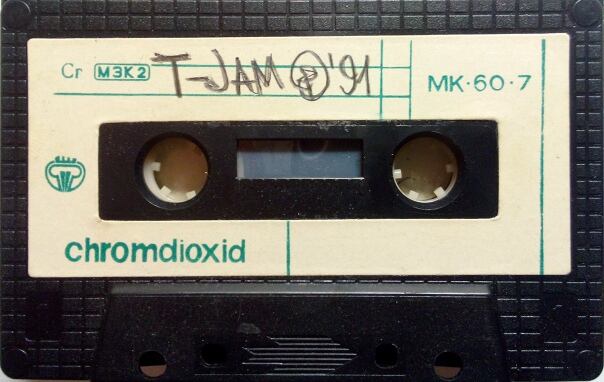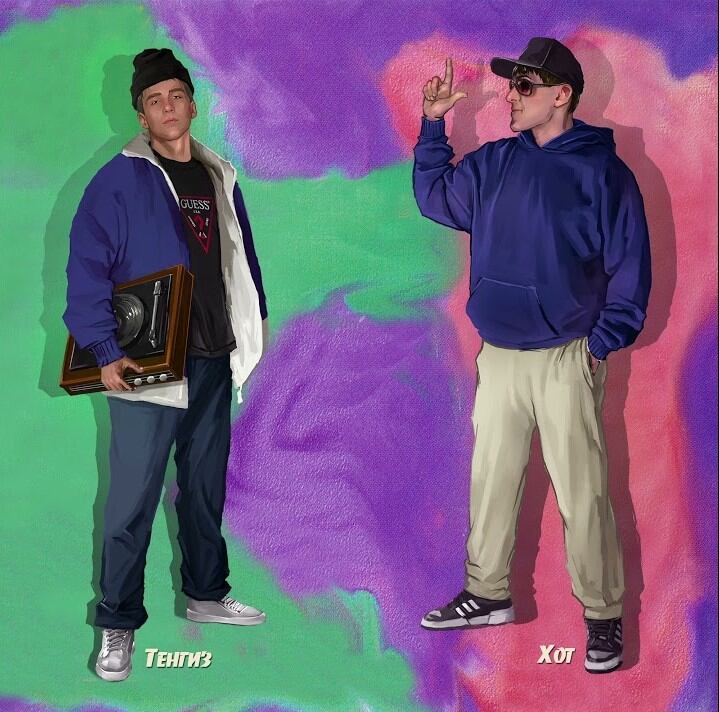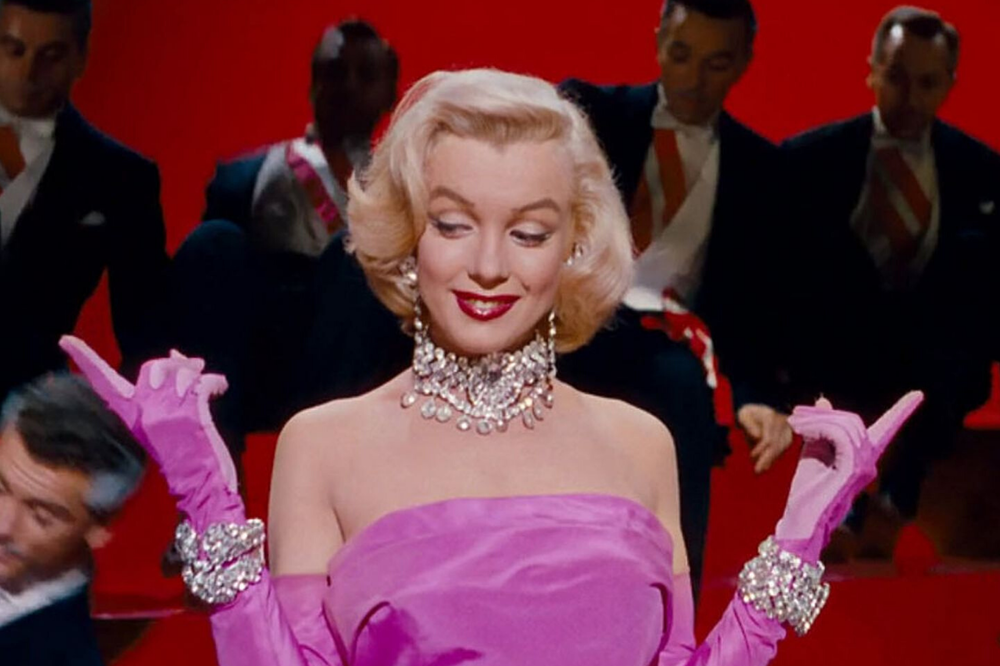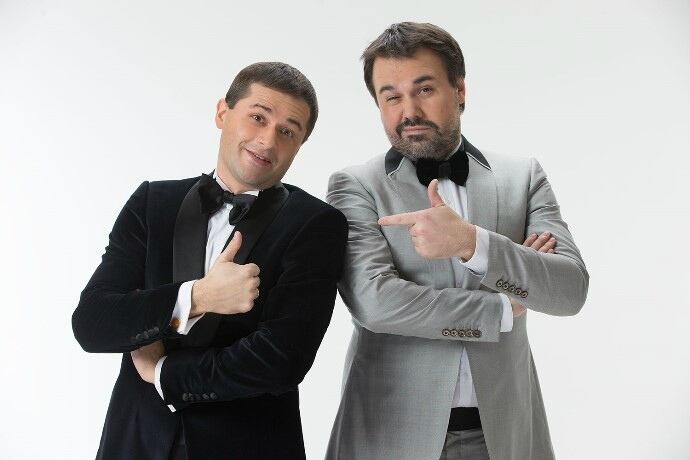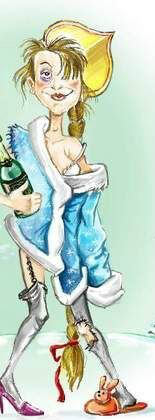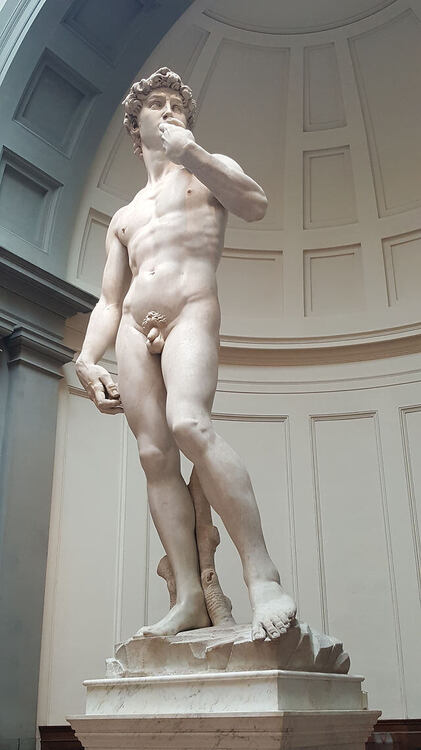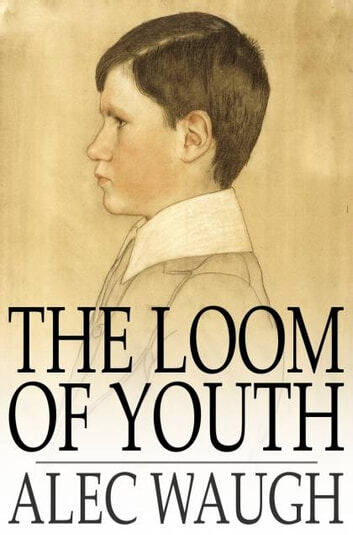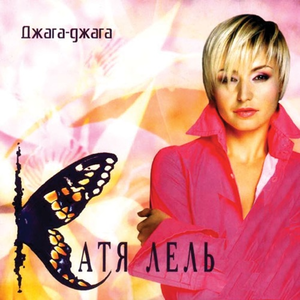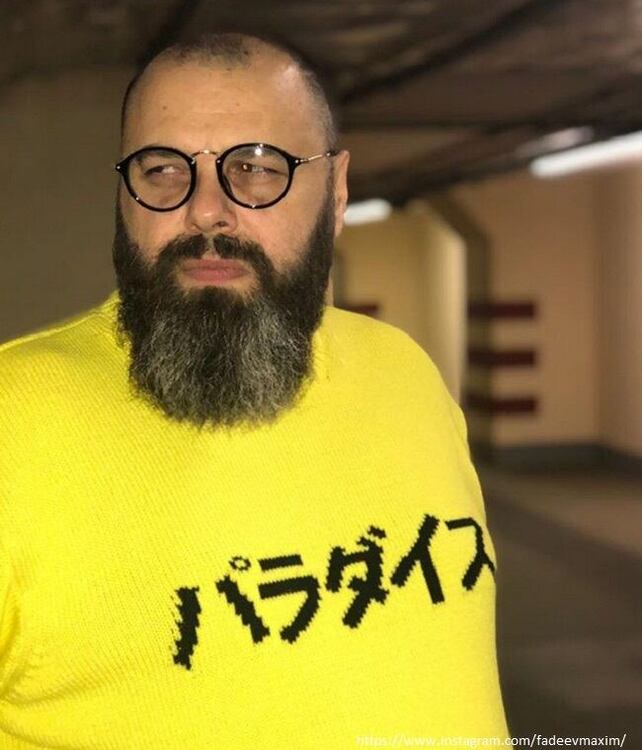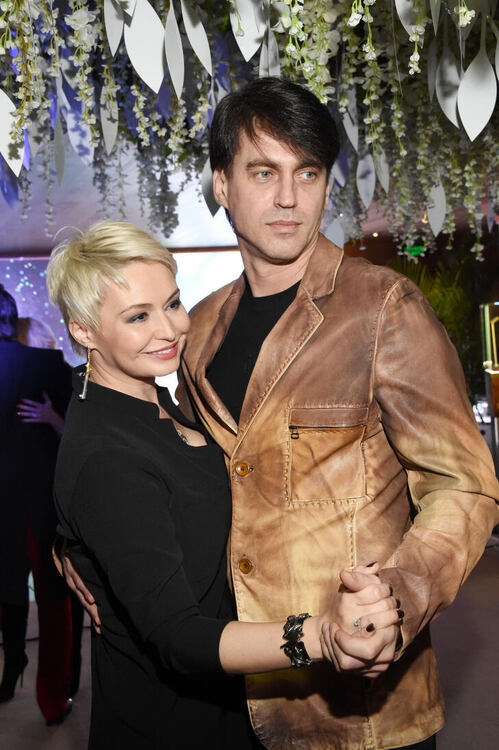-
Postów
1 409 -
Dołączył
-
Ostatnia wizyta
Treść opublikowana przez Andrew Alexandre Owie
-

鬼は外! DEVILS OUT!鬼は外! ODEJDŻ, DIABLE! 恶魔, 出去!
Andrew Alexandre Owie odpowiedział(a) na Andrew Alexandre Owie utwór w Poezja śpiewana
Yukio Mishima przypomina mi Włodzimierza Wysockiego. Dlaczego nie wiem. Ale istnieje nieuchwytne podobieństwo (an elusive similarity). -

鬼は外! DEVILS OUT!鬼は外! ODEJDŻ, DIABLE! 恶魔, 出去!
Andrew Alexandre Owie opublikował(a) utwór w Poezja śpiewana
鬼は外! DEVILS OUT!, OR THE STORY ABOUT THE DELIGHTFUL YOUNG OLD NARCISSUS (A `DIE EASY` SAGA IN A JAPANESE WAY) 鬼は外! 恶魔, 出去!,或者一个关于 年轻的水仙老人的令人愉快的故事(黄梅不落青梅落的按日本方式)! 鬼は外! ODEJDŻ, DIABLE!, CZYLI HISTORIA CUDOWNEGO MŁODEGO STARUSZKA NARCYZA ("BĘDĘ UMIERAĆ MŁODO" po japońsku) Yukio Mishima's ghost haunts me! I`m kidding! After browsing the WWW, I`ve suddenly realized that everyone who writes about him - and they all keep writing the same things - always mentions the homonymy of his name with the expression `demon enchanted by death`(or `the devil obsessed with death`). But this does not align with his personality. In this regard, I made up my mind to conduct a little philological study, and this is what its outcome is. 三岛由纪夫的鬼魂困扰着我! 我开玩笑的! 浏览完WWW后,我突然意识到,每个写关于他的人——而且他们都在写同样的东西——总是提到他的名字与“被死亡迷住的恶魔”同音。 但这并不符合他的性格。 对此,我下定决心进行一点文献学研究,结果是这样的。 Cień Yukio Mishimy mnie prześladuje! To był żart! Przeglądając WWW, nagle uświadomiłem sobie, że każdy, kto o nim pisze – a wszyscy piszą to samo – zawsze wspomina homonimię jego imienia z wyrażeniem "demon zaczarowany (lub "opętany") przez śmierć". W związku z tym zdecydowałem się przeprowadzić małe studia filologiczne, i oto, jaki jest ich wynik. Yasunari Kawabata, Yukio Mishima, Sei Ito in 1968 三島由紀夫 is the way Mishima Yukio is written in Japanese. In this case, we are talking about the creative pen name of a Japanese aristocrat 平岡公威 Hiraoka Kimitake from a very noble, though not rich family. His social status is evidenced by the fact that his former girlfriend Michiko, with whom he broke up, married Akihito (!), and Yukio himself - it was this name that stuck to him even in the family, having ceased to be just his pen name - went to school, which as the students was also gone by the Ruling Dynasty members; he was patronized by Yasunari Kawabata himself, and before that, after his graduation from the prestigious law faculty, he had had no problems to get a job at the Ministry of Finance. 三岛由纪夫是来自一个非常贵族但并不富裕的家庭的平岡公威的创意笔名。他的社会地位可以从与他分手的前女友美智子与明仁结婚(!)的证明; 以及由纪夫 — 正是这个名字甚至在家庭中也牢牢地贴在他身上,而不再只是了他的笔名 — 他在上学倒过时候有过从王廷成员同学; 他受到了川端康成本人的赞助,在此之前,从著名的法学院毕业了后,他在财务省找到了一份工作没有任何问题。 三島由紀夫 to sposób, w jaki Mishima Yukio jest napisany po japońsku. W tym przypadku mówimy o twórczym pseudonimie japońskiego arystokraty 平岡公威 Hiraoka Kimitake pochodzącego z bardzo szlacheckiej, choć niezbyt bogatej rodziny. O jego statusie społecznym świadczy fakt, że jego była dziewczyna Michiko, z którą zerwał, poślubiła Akihito (!), a sam Yukio - to imię utkwiło mu nawet w rodzinie i przestało być tylko jego pseudonimem - uczęszczał do szkoły, do której jako uczniowie uczęszczali także członkowie dynastii panującej; patronował mu sam Yasunari Kawabata, a wcześniej, po ukończeniu prestiżowego wydziału prawa, bez problemu dostał pracę w Ministerstwie Finansów. The surname Mishima in his pen name comes from the name of the Japanese townlet 三島市 in the foothills of Mount Fuji. 三島 translates to "three islands". "Shima" is an island. For example, Hiroshima - Wide Island 広島, Nagasaki - Long Cape 長崎. (And the Russian differ from the Japanese in that they have as yet failed to forgive America the atomic bombing of those cities (a joke of a Japanese person!)). 笔名中的“三岛”姓氏源自日本富士山麓的三岛市。 広岛翻译为 广岛, 宽岛,长崎翻译为长的海岬。 (俄罗斯人与日本人的不同之处在于,俄罗斯人尚未原谅美国对这些城市的原子弹轰炸(一个日本人的笑话!))。 Nazwisko Mishima w jego pseudonimie pochodzi od nazwy japońskiego miasta 三島市 u podnóża Fuji. 三島 oznacza "trzy wyspy". "Shima" to wyspa. Na przykład Hiroshima to szeroka wyspa 広島, Nagasaki to długi przylądek I 長崎. (A Rosjanin różni się od Japończyka tylko tym, że nie może wybaczyć Stanom Zjednoczonym ich bombardowania atomowego (żart jednego Japończyka!)). 三島 sounds like 魅死魔, these are homophones, they sound the same way as `mishima`, but the meaning of the Chinese characters is different. It is 魅死魔 that is translated everywhere as `death-enchanted demon`. But is this right? Sooner this is supposed to be wrong. Otherwise, this discovery would not have delighted Yukio so much. This combination of characters should have been correctly translated as "enchanted by the Demon of Death", since 死魔 is the strict Buddhist term for `Demon of Death`. “三岛”与“魅死魔”同音,与“三岛”读音相同,但汉字的含义不同。 “魅死魔”到处都被翻译为“被死亡附魔的恶魔”。但这是对吗? 这就是非常 不对!否则这一发现不会让由纪夫如此高兴。 这个汉字符组 — 魅死魔 — 合应该被正确地翻译为“被死亡恶魔所着迷”,因为"死魔"是严格的佛教术语“死亡恶魔”。 三島 brzmi jak 魅死魔, są to homofony, brzmią tak samo jak "mishima”", ale znaczenie hieroglifów jest inne. To 魅死魔 jest wszędzie tłumaczone jako "demon zaczarowany śmiercią". Ale czy to właściwe? Chyba nie. W przeciwnym razie to odkrycie nie zachwyciłoby Yukio tak bardzo. Ta kombinacja znaków jest poprawnie tłumaczona jako "zaczarowany przez Demona Śmierci", gdzie 死魔 jest ścisłym buddyjskim określeniem "Demon Śmierci". Mishima Yu. Fountains in the rain: stories 雨中的喷泉:短篇小说集 Fontanny w deszczu: historie. Mishima`s short stories in Russian 俄语三岛故事集 Zbiór opowiadań Mishima w języku rosyjskim The Demon of Death is one of the four Buddhist Demonic Deities 四魔 including 煩悩魔 the demon of vicious desires, passions, 陰魔 the demon of the various torments, 死魔 the demon of death, 天魔 the demon of heaven (the lord of the 6th heavenly level of the carnal world, the Buddha`s worst enemy). All of those demons seduce sentient beings, but can only control them, if the latter ones give them permission. Step by step Yukio Mishima permitted them all and all the way. He tried everything in his life, but was at the same time afraid of living, because he wanted to live forever and to remain always handsome and young. In general, as you know, he believed that the handsome and beautiful should die young, while the rest ones should live as long as possible! 死魔是佛教四大魔神之一,包括烦悩魔 (叫麻烦,烦恼的恶鬼)、陰魔 (阴魔, 扰乱身心的恶鬼)、死魔、天魔 (在天的第六层的恶鬼, 佛陀最大的敌人)。 所有这些恶魔都会引诱有意识的生物,但只有在后者允许的情况下才能控制它们。 三岛由纪夫允一步一步地许了他们一切并到终。 他尝试了一生中的一切,但同时又害怕生活,因为他想不老不死, 永生 (永远活着并保持永远年轻)。总的来说,如你所知,他认为美丽的人应该英年早逝,而其余的人应该尽可能长寿! Demon śmierci to jeden z czterech demonów, czyli Demonicznych Bóstw 四魔 w buddyzmie - 煩悩魔 demon chorych pragnień, namiętności, 陰魔 demon różnych udręk, 死魔 demon śmierci, 天魔 demon niebios (pan szóstego nieba świata zmysłów, najgorszy wróg Buddy). Wszystkie te demony dręczą inteligentne stworzenia, jednak mają nad nimi władzę tylko na tyle, na ile im ludzi pozwalają. Co do Yukio Mishimy, krok po kroku pozwolił im wszystko i do końca. Próbował w życiu wszystkiego, ale jednocześnie bał się życia, bo chciał żyć wiecznie i zawsze pozostać przystojny i młody. Ogólnie rzecz biorąc, jak wiadomo, wierzył, że przystojniaki oraz piękności powinny umrzeć młodo, a reszta osób powinna żyć jak najdłużej! It was death by which Yukio Mishima was fascinated, it was for what he had been striving, longing and craving for all his life since young years, and when his mother heard over the radio that he had committed suicide, she summed up: `This is exactly what he always wanted to do!` Interestingly that the Chinese character `enchanted, bewitched, captivated, fascinated, obsessed, infatuated with` 魅, includes the radical of `devil` 鬼 , which only emphasizes its infernal shade of meaning. 三岛由纪夫所着迷的就是死亡,是他从小就一生向往, 稀求和渴望的东西,当他的母亲从广播中听到他自杀的消息时,她终归了一句:“这正是他一直想做的事!” 有趣的是,“魅”的汉字包含“鬼”的旁儿,只强调其恶魔的,地狱的义意味。 To właśnie śmierć fascynowała Yukio Mishimę, to było to, do czego dążył przez całe życie od dzieciństwa, a kiedy popełnił samobójstwo, jego matka podsumowała całe jego życie w taki sposób: "To jest dokładnie to, co zawsze chciał zrobić!" Co ciekawe, kluczem hieroglifa 魅 "zaczarowany, urzeczony, opętany" jest 鬼 "demon", "diabeł" , co dodaje mu jeszcze bardziej "piekielności". I recall one student at our faculty who used to wear the jacket with a scarlet kanji (Chinese character) 鬼, and we, then just the sophomores, were about to swoon over his handsomeness as well as of the scarlet beauty of this Chinese character on his back. That time the senior students seemed like the living gods to us! However, once he died young, fell asleep and never woke up! And this made us remember the English idiom: `Speak of the devil and he doth appear`. 我记得我们外语系学习的穿了那件带有猩红色汉字“鬼”的夹克一个学生,我们当时才大二的学生们都被他的帅气和他背上的那个汉字的猩红色美所迷倒了。 那时候的高年级大学生对我们来说简直就是活神啊! 然而,他英年早逝了: 一旦睡着了但是再也没有醒来! 这让我们想起了一个谚语:“说魔鬼, 魔鬼到”。 Pamiętam, jak jeden student na wydziale filologicznym nosił kurtkę ze szkarłatnym kanji (hieroglifem) 鬼, a my, wówczas studenci drugiego roku, omdlewaliśmy z jego urody i szkarłatnеgo piękna tego hieroglifu na jego plecach. Starsi studenci wydawali się nam bogowie na żywo! Ale pewnego dnia umarł młodo, zasnął i nie obudził się! A to skłania nas do ponownego przemyślenia idiomu: "O diable mowa, a diabel tu!" So, being a human being, Mishima Yukio could not consider himself to be be a demon, though he was one of the human beings who succumbed to the demonic power. He plunged headlong into the carnal world, the world of childhood illnesses, and then adult belated sports torments, the world of sinful desires and, finally, of death. And he had incredible Mozartian talent, he wrote at once clean copies - without erasures or corrections, in final form and amazingly quickly. 所以,作为一个人类,三岛由纪夫不能认为自己是恶魔,尽管他是屈服于恶魔力量的人类之一。 他一头扎进了肉界: 童年疾病,成人的迟来运动的折磨,然后是罪恶欲望,最后是死亡。 他拥有令人难以置信的莫扎特式才华,他会立即写得整齐不用再誊清 - 没有删除或更正,其文的最终形式是写得速度惊人地快呀! Zatem Mishima Yukio nie uważał się siebie za demona, i będąc człowiekiem, nie mógł być demonem, ale był człowiekiem, który oddał się ich mocy. Pogrążył się na oślep w świat materialny, świat chorób dziecięcych, a potem spóźnionych udręk sportowych dorosłych, świat grzesznych pragnień i wreszcie śmierci. Ale miał niesamowity talent w rodzaju Mozarta, pisał zaraz na czysto i zadziwiająco szybko. By the way, he was considered an ultra-rightist, but it was just a child’s play, the real ultra-rightists repeatedly threatened him with violence, and he feared them like fire! Literature, cinema, reality are the stages of his own path. As his contemporary Ulrike Meinhoff of the Rote Armee Fraktion (the Red Army Faction) he also could have proclaimed at the time: `A-rattling while jumping out of a car and firing automatic weapons is much more interesting than a-rattling typing on a typewriter`. Yukio Mishima could have `lost his mind` in this way too: a year after his death, Japan witnessed its own youth `Red Army` (赤軍派). 顺便说一句,他被认为了是极右分子,但这只是儿戏,真正的极右分子屡屡以暴力威胁了他,他对他们畏惧如火了! 文学、电影、现实是他自己道路的舞台。 正如他同时代的红军派系的乌尔里克·迈因霍夫(Ulrike Meinhoff)那样,他当时也可以宣称:“跳出汽车并开枪时发出的嘎嘎声比在打字机上打字的嘎嘎声更有趣。三岛由纪夫可能也恨不得“吃了这种迷魂汤”: 但是日本见证了自己的青年“赤军派” (红军派)只在他去世一年后。 Swoją drogą uchodził za ultraprawicowca, ale to była dziecinna zabawa, prawdziwi ultraprawicowcy wielokrotnie grozili mu przemocą, a on bał się ich jak ognia! Literatura, kino, rzeczywistość – etapy jego drogi. Jak głosiła wówczas jego współczesna Ulrike Meinhoff z Frakcji Czerwonej Armii: "Bardziej interesująco jest wyskoczyć z samochodu i terkotać z karabinu maszynowego, niż terkotać na maszynie do pisania". Yukio Mishima również mógłby w ten samy sposób "stracić rozum", ale Japonia miała własną młodzieżową "Armię Czerwoną" (赤軍派) tylko za rok po jego śmierci . The medical and biological, genetic background could also have played some part in the genesis of Mishima’s lust of voluntary premature death. His grandmother developed cerebral neuralgia having been infected with syphilis by her husband, and was always creative, yet a little bit strange individual. However, she not only passed on to the boy some of her genes, a penchant for creativity and her easy madness, but also raised him since his birth. As a child, he had been sleeping with her in the same room for many years, inhaling the smell of her old body. And as a young man, he was terribly afraid of participating in the war that was ending by that time. At that time, he was not yet raving about the samurai glory, the Imperial Army, and was far from being patriotic. 医学、生物学、遗传背景也可能在三岛由纪夫自愿过早死亡的欲望的起源中发挥了一定作用。他奶奶因被丈夫感染梅毒而患上脑的神经痛,总是富有创造力,但 她性格却有点奇怪。她不仅将自己的一些基因、创造力的爱好和容易发疯的基因遗传给了这个男孩,而且从他出生起就抚养他长大。 小时候,他已经和她睡在同一个房间里很多年了,呼吸着她苍老身体的味道。 作为一个年轻人,他非常害怕参与当时即将结束的战争。 那时的他还没有对武士的荣耀 感兴趣, 没有赞叹不已皇军, 也表现出爱国主义的相去甚远。 Aspekt medyczno-biologiczny i genetyczny również mógł mieć wpływ na ukształtowanie się tęsknoty Mishimy do dobrowolnej przedwczesnej śmierci. Jego babcia nabawiła się nerwobólu mózgowego po zakażeniu przez męża kiłą i zawsze była trochę szalona. Jednak nie tylko przekazała chłopcu część swoich genów, zamiłowanie do kreatywności i szaleństwo, ale także wychowała go jako dziecko. Jako dziecko przez wiele lat spał z nią w tym samym pokoju, wdychając zapach starego ciała. Jako młody człowiek śmiertelnie bał się, że może znaleźć się w środku wojny, która wtedy jescze dobiegała końca. Nie zachwycał się wówczas samurajami czy Armią Cesarską i był daleki od patriotyzmu. Besides, he was distinguished by his homosexual inclinations, being accompanied by certain physiological changes in the human brain, similar to those occurring in it in the senile age. He was an eternal youth with the soul of an old man who had outlived its living term and was tired of calling on death. He could be compared to a babooshka standing at the gate of her house and asking passers-by if they have seen death yet and asking them, as soon as they would meet the death on their ways, to inform it then that she is to be the first in line. Death was delaying on its way to Mishima, and he can`t help hurrying it up. 此外,他的特点是他有同性恋倾向,并伴随着人类大脑的某些生理变化,类似于老年时发生的变化。 他是一个永恒的青年,有着一个老人的灵魂,老人的生命已过,厌倦了呼唤死亡。 他可以比作一个站在自家门口的巴布什卡(babooshka),问着路人是否他们 见过死亡,并要求他们一旦在路上遇到死亡,就通知它,她将成为 第一个。 死亡在三岛的途中迟迟没有到来,而他情不自禁地加快了它的速度。 Ponadto wyróżniał się gejowskimi skłonnościami, które towarzyszą zmianam fizjologicznem w mózgu, podobnym do procesów zachodzących w mózgu starczym. Był wiecznym młodzieńcem z duszą starca, który żył za długo na tym świecie i był zmęczony wzywaniem śmierci. Można go porównać do starej kobiety, która stoi u bramy swojego domu i pyta przechodniów, czy widzieli śmierć, i prosi ich, gdy tylko ją spotkają, aby powiedzieli śmierci, że jest pierwsza w kolejce. Śmierć w drodze do Mishimy opóźniała się, więc ją pospieszył. *** LOST IN TRANSLATION 迷失翻译 MIĘDZY SŁOWAMI One of Mishima's earliest haikus was written by him at the age of seven 三岛由纪夫最早的俳句之一是他七岁时写的 Jedno z najwcześniejszych haiku Mishimy zostało napisane przez niego w wieku siedmiu lat: おとうとがお手手ひろげてもみじかな Oto:to ga o-tete hirogete momiji kana [弟がお手手広げても短な] Even if my younger brother*) opens his little arms, they'll be but so short! 弟弟就算张开小手,也是那么短了! Nawet jeśli mój brat otworzy swoje małe rączki, będą one takie krótkie. However, Hiroaki Sato gave a different interpretation of this haiku in his article in the Paris Review on October 26, 2018 .然而,佐藤博明在2018年10月26日《巴黎评论》的文章中,对这句俳句做出了不同的解释 Jednakże Hiroaki Sato w swoim artykule w Paris Review z 26 października 2018 r. tłumaczy to haiku w inny sposób https://www.theparisreview.org/blog/2018/10/26/my-younger-brother-spreads-his-palms-maple-leaves-yukio-mishimas-haiku/ : おとうとがお手手ひろげてもみじかな Oto:to ga o-tete hirogete momiji kana [弟がお手手広げて椛哉] My younger brother*) spreads his palms, maple leaves 弟弟张开手掌,枫叶 Mój młodszy brat rozkłada dłonie, liście klonu Phonetically, the poem sounds the same in Japanese in both translations, which have different meanings. If the poem had been written using kanji, it would have been immediately clear what it was about. But little Mishima didn't yet know kanji and wrote the poem in hiragana, the phonetic alphabet. In parentheses [where I use kanji] I provide two different spellings of the poem in a kanji format. If the first spelling is correct, then my translation has the right to exist. If the second spelling is correct, then the true translation was made by an American translator. During World War II, the homonymy/homophony of Japanese phonetic notation created enormous problems for the American military intelligence translators. 从语音上看,这首诗在两种译本中的日语发音相同,但含义不同。 如果这首诗是用汉字写的,那么它的内容马上就清楚了。 但小三岛还不懂汉字,所以用平假名(注音字母)写了这首诗。 在括号中[我使用汉字的地方]我以汉字格式提供了这首诗的两种不同拼写。 如果第一个拼写正确,那么我的翻译就有存在的权利。 如果第二个拼写正确,那么真正的翻译是由美国翻译人员完成的。 第二次世界大战期间,日语注音的同音/谐音给美国军事情报翻译人员带来了巨大的问题。 Fonetycznie ten wiersz brzmi po japońsku tak samo w obu tłumaczeniach, które różnią się znaczeniem. Gdyby wiersz został napisany z uwzględnieniem znaków kanji, od razu byłoby jasne, o co chodzi. Ale mały Mishima nie znał jeszcze kanji i napisał wiersz w hiraganie, alfabecie fonetycznym. W nawiasach [gdzie używam znaków kanji] podaję dwie różne pisownie wiersza w formacie kanji. Jeśli pierwsza pisownia jest poprawna, to moje tłumaczenie ma prawo istnieć. Jeśli druga pisownia jest poprawna, wówczas prawdziwego tłumaczenia dokonał amerykański tłumacz. Podczas drugiej wojny światowej homonimia/homofonia japońskiej notacji fonetycznej tworzyła ogromne problemy dla tłumaczy amerykańskiego wywiadu wojskowego. *) Mishima`s brother Chiyuki was two years old at the time. He became a diplomat and served as ambassador to Morocco and Porrtugal. 三岛的弟弟千行当时两岁。 他成为一名外交官,并担任驻摩洛哥和葡萄牙大使。Brat Mishimy, Tijuki, miał wtedy dwa lata. Został dyplomatą i pełnił funkcję ambasadora w Maroku i Portugalii. *** THERE IS NOTHING CLOSER TO LIFE THAN MUSIC 没有什么比音乐更贴近生活了 NIE MA NIC BLIŻSZEGO ŻYCIU NIŻ MUZYKA What an amazing thing is beautiful music! The fleeting beauty generated by the performing art transforms a short period of time into infinity; it cannot be reproduced exactly; like the existence of moths, it is a purely conventional concept and at the same time an integral part of existence. There is nothing closer to life than music. 多么美妙的事情啊,美妙的音乐! 表演艺术所产生的转瞬即逝的美,将短暂的时间变成了无限; 无法准确再现; 就像飞蛾的存在一样,它是一个纯粹的相对概念,但却是存在的一个组成部分。 没有什么比音乐更贴近生活了。Cóż za niesamowita rzecz, piękna muzyka! Ulotne piękno generowane przez sztukę performatywną przekształca krótki okres czasu w nieskończoność; nie da się ją dokładnie odtworzyć; podobnie jak istnienie ćmy, jest to pojęcie czysto konwencjonalne, a jednocześnie integralna część istnienia. Nie ma nic bliższego życiu niż muzyka. Yukio Mishima conducting Yomiuri Nippon Symphony Orchestra [Japanese Naval March Gunkan (Warships) 軍艦行進曲] 三岛由纪夫指挥交响乐团 Yukio Mishima dyryguje Orkiestrą Symfoniczną Excerpts from the US feature film `Mishima: A Life in Four Chapters` of 1985 to the song `Mishima - The Less I Know The Better` by Tame Impala (Kevin Parker), Australia.1985 年美国故事片《《三島由紀夫:人間四幕》》的片段,由配以澳大利亚 的Tame Impala(凯文·帕克) 演唱的歌曲《三岛 - 我知道的越少越好》Fragmenty amerykańskiego filmu fabularnego "Mishima: A Life in Four Chapters" (Mishima: życie w czterech rozdziałach)1985 r przy piosence "Mishima – The Less I Know The Better" (Im mniej wiem tym lepiej)(autor Tame Impala (Kevin Parker)), Australia. https://www.imdb.com/title/tt0089603/ Full original musical score by Philip Glass to the US feature film `Mishima: A Life in Four Chapters` of 1985. 菲利普·葛拉斯 (Philip Glass) 为 1985 年美国故事片《三島由紀夫:人間四幕》 的音乐。Muzyka Philipa Glassa do amerykańskiego filmu fabularnego "Mishima: A Life in Four Chapters" z 1985 r. Philip Glass - Mishima MVT I - Dublin Guitar Quartet Mishima Closing - Piano Philip GlassTranscribed by Colin Chee. Philip Glass - "Mishima" Closing String Quartet No. 3 Philip Glass - "Mishima" Closing Multiphonic saxophone quartet Bring Me The Head Of Yukio Mishima · The Snivelling Shits, 2002 Mishima, 2019 Italian Post-Punk Group `Japan Suicide` `Fountains in the rain` by William Gillock *** MISHIMA: HUMAN LIFE IS LIMITED,BUT I WOULD LIKE TO LIVE FOREVER 人的生命是有限的,但我想永遠活下去 ŻYCIE LUDZKIE JEST OGRANICZONE, ALE JA CHCIAŁBYM ŻYĆ WIECZNIE Mishima's ritual suicide was one of the most personally important parts of his life, if not the most important: "Line of poetry written with a splash of blood". 三岛的仪式自杀是他一生中最重要的部分之一,即使不是最重要的部分:"行用鲜血写成的诗。Rytualne samobójstwo Mishimy jest jedną z najważniejszych, jeśli nie najważniejszą częścią jego życia: "wierszem poezji napisanym rozbryzgem krwi”. The New York Times` response to Yukio Mishima`s suicide in 1970 《纽约时报》对1970年三岛由纪夫自杀的回应 Odpowiedź "New York Timesa" na samobójstwo Yukio Mishimy w 1970 r https://archive.nytimes.com/www.nytimes.com/books/98/.. A narcissist, proud of the fact that he turned himself from a sickly child into a steely bodybuilder, de-tabooed the homosexual subjects in the national literature. 一个自恋者为自己从一个体弱多病的孩子变成了一个钢铁般的健美运动员而感到自豪,他取消了民族文学中同性恋主题的禁忌。Narcyz, dumny z tego, że z chorowitego dziecka zmienił się w krzepkiego kulturystę, zdetabuizował tematykę homoseksualnąw literaturze narodowej. Mishima considered translations of his books into English ideal and bequeathed to translate his books into other languages from English! 三岛认为他书的英文翻译都是理想的,并遗嘱他书是从英文翻译的成其他语言!Mishima uważał tłumaczenia swoich książek na angielski za idealne i nakazał przekład swoich książek na inne języki tylko z angielskiego! AFTERWORD 句话 POSŁOWIE The Mishima case proves once again that the art can be potentially life-threatening, and the mixing of art and life ought to be forbidden. Art can be both a cure for death and a cure for life. It is a double-edged sword! 三岛事件再次证明艺术具有潜在的生命危险,艺术与生活的混合应该被禁止。艺术也许是治愈死亡的良药,也是治愈生命的良药。这是一把双刃剑! Sprawa Mishimy po raz kolejny udowodniła, że sztuka może potencjalnie zagrażać życiu, a łączenie sztuki z życiem powinno być zabronione. Sztuka może być zarówno lekarstwem na śmierć, jak i lekarstwem na życie. To miecz obosieczny! THE END 终 KONIEC -

IN MEMORY OF THE POET PAMIĘCI POETY
Andrew Alexandre Owie odpowiedział(a) na Andrew Alexandre Owie utwór w Poezja śpiewana
@Wyspa Sorry for my not having replied you right away. I share your assessment of theFranek K.`s talent and personality. We'll keep him in our hearts. It is a pity that his life turned out in such a way that he could not entirely devote himself to literature and translation. Przepraszam, że nie mogłem od razu odpowiedzieć. Podzielam Twoją ocenę talentu i osobowości Franka K. Pamięć o nim zachowamy w naszych sercach. Szkoda, że jego życie tak się potoczyło, że nie mógł poświęcić się całkowicie literaturze i tłumaczeniom. -

GOLD THAT GLITTERS ZŁOTO, CO SIE ŚWIECI
Andrew Alexandre Owie odpowiedział(a) na Andrew Alexandre Owie utwór w Poezja śpiewana
You`d better called the current post of yours like this: `Find what you love and let it kill you`. Lepiej zatytułuj swój aktualny post w ten sposób: `Znajdź to, co kochasz i pozwól, żeby cię to zabiło`. @Andrew Alexandre Owie Even better it would`ve been like that: `Find what you love and don`t let it kill you`. Jeszcze lepiej byłoby tak: `Znajdź to, co kochasz i nie pozwól, żeby cię to zabiło`. But... what is done is done! Ale... co się stało, to się stało! -
IN MEMORY OF THE POET PAMIĘCI POETY Jakie było moje zdziwienie, gdy dotarło do mnie, że Franka K już nie ma. Co było tego przyczyną, prawdopodobnie nigdy się nie dowiemy. A co za różnica, jeśli tej osoby już nie ma? Przykuł moją uwagę wspaniałym tłumaczeniem wiersza Włodzimierza Wysockiego. Franek K doskonale znał język rosyjski, sądząc po zastrzeżeniach, przez pewien czas pracował w Kazachstanie. Zachęcałem go, aby znalazł wydawcę, który zleciłby mu przetłumaczenie całości Wysockiego na język polski, ale był sceptyczny wobec tego pomysłu. Nie rozumiał skali swojego talentu tłumaczeniowego i pewnie był czymś zajęty. Jak teraz jest jasne, los obiecał mu coś innego. Przetłumaczył też moje rabellaisowskie wiersze humorystyczne z języka angielskiego na język polski. Chociaż niebieskie oczy masz Jak chabry w miejskim parku, Nie bzyknę cię, bo na mnie czas Już wpół do na zegarku. *** Zza mojej ściany w pewną noc Dobiegł mnie dziwny dźwięk, Do mego nosa, nie wiem skąd Palonej gumy dotarł swąd. To sąsiad musiał nadziać się Na lalę nadmuchaną Jej koniec dosyć szybki był, Bo słychać było syyyyk! Jej żywot przegwizdany. Jednym słowem ten człowiek był wykształcony, twórczy, niezwykły, a fakt, że go już nie ma, to wielka strata dla Polski, jego rodziny, przyjaciół i dla mnie. Mam nadzieję, że jego twórczość oraz twórczość innych zmarłych poetów musi być tu gdzieś zachowana jako rozdział Dead Poets Society. Nie jest nam dane wiedzieć, jak słowo tego czy innego poety zabrzmi w przyszłości. Poeci nie umierają! Nie! A teraz tłumaczenie Franka K, o którym mówiłem. Chciałbym, żeby zostało opublikowane w jakimś zbiorze. Głos Wysockiego: "Taka kompletnie zbójecka piosenka ze spektaklu "Osiedla". Odziedziczyliśmy to po dawnym teatrze dramatu i komedii. To temat jednego faceta, mężczyzny, który wrócił z więzienia i nadal robi złe rzeczy". (Koncert w kawiarni "Molekuła" 20 kwietnia 1965 roku). Nie piłem wódki w wieczór ten, I na nią wciąż gapiłem się, Jak patrzą dzieci, jak patrzą dzieci, Lecz ten, który z nią przedtem był Powiedział – czas żebyś się zmył, Powiedział – czas żebyś się zmył, Tak będzie lepiej. I ten, który z nią przedtem był Wciąż groził mi i ze mnie kpił, Pamiętam wszystko, bo byłem trzeźwy. Gdy się zebrałem, by już iść Nie spiesz się tak – mówiła mi, Nie spiesz się tak – mówiła mi. Jest jeszcze wcześnie. Lecz ten, który z nią przedtem był Jakoś mnie sobie w pamięć wbił I gdzieś w jesieni, i gdzieś w jesieni Wpadłem na niego, niech to szlag! Z ósemką kumpli sobie stał, Z ósemką kumpli sobie stał, Groźnie milczeli... Ja miałem nóż, przydatna rzecz, Stwierdziłem więc, że skóry mej Tanio nie sprzedam, tanio nie sprzedam, Cóż było robić? Tak chciał los, Wyprowadziłem pierwszy cios, Wyprowadziłem pierwszy cios, Tak było trzeba. A ten, który był przedtem z nią Bardzo poważnie sprawę wziął, Na serio całkiem, na serio całkiem, Z tyłu mnie zaszedł jeden z nich, Uwaga! - kumpel krzyknął mi, Uwaga! - kumpel krzyknął mi, Lecz poniewczasie. W ciągu lat ośmiu – jeden list, A w pierdlu także szpital jest, Ja tam leżałem, ja tam leżałem, A lekarz ciął mnie wzdłuż i wszerz I mówił: bracie, trzymaj się, I mówił: bracie, trzymaj się, I się trzymałem. Rozstanie przeszło migiem, lecz Ona nie doczekała mnie, Wybaczam i żalu nie czuję, W mej duszy jednak zadra tkwi Do tego, co z nią przedtem był, Do tego, co z nią przedtem był, Więc nie daruję! W mej duszy ciągle zadra tkwi, Dopadnę tego, co z nią był, Dopadnę tego, co z nią był, Mordę mu skuję!
-

CICHA WODA QUIET WATER
Andrew Alexandre Owie odpowiedział(a) na Andrew Alexandre Owie utwór w Poezja śpiewana
-

GOLD THAT GLITTERS ZŁOTO, CO SIE ŚWIECI
Andrew Alexandre Owie opublikował(a) utwór w Poezja śpiewana
GOLD THAT GLITTERS ZŁOTO, CO SIE ŚWIECI It`s sad at the afterparty. The song from the same name album of 2021. Sung by its author Vladimir Zolotukhin, more known by his stage name ZOLOTO (lit.GOLD). Na afterparty jest smutno. Piosenkę z albumu o tym samym tytule z 2021 r. śpiewa jej autor Władimir Zołotuchin, lepiej znany pod pseudonimem ZOŁOTO (dosł. ZŁOTO). IT`S SAD AT THE AFTERPARTY To where d'ya extend your arms, bitch? Behind me is the Queen's reflection, Even if I go sideways, that's right, It does not mean I go in a wrong direction. *) Kuda ty tianiesz swoji rućki, sućka? Za mojej spinoju korolewa. I daźe jesli ja szagaju kriwo, Jeszczo sowsiem nie znacic, szto ja szagaju nalewo.*) Dokąd ty wyciągasz ręce, suko? Za mną jest królowa. Nawet jeśli chodzę krzywo, Nie można powiedzieć, że skręcę w lewo. *) CHORUS It`s sad at the afterparty, Again I`m in a bad mood, Without you I feel but misery and torture, Kate, I promise very hearty That all those whores Will fail to ruin our merger. Grustno na afterparty. Ja opiać nie w duchie. Biez ciebia odni stradanija i muki. Ja obeszczaju, Katya: Wsie eti szluchi Ne dożduca naszej s toboj razłuki. Smutno jest na afterparty. Znowu jestem nie w humorze. Bez tobie jest tylko cierpienie i udręka. Obiecuję, Katyo, Że wszystkie te dziwki Nie ujrzą mnie i ciebie osobno. All party`s of all places poolside, And I appear to look so flustered. More bitches than Esenin would have liked it, I care not for weeds, binge and the bastards. Tusa, kak nazło, u bassiejna, A ja wyglażu tak rastierianno. Suciek bolsze, ciem u Jesienina, No mnie plewać na nich, na buchło i rastienija. Jak na złość, impreza jest przy basenie. I wyglądam na bardzo zmieszanego. Są więcej kurw niż mialby Jesienin, Ale nie obchodzą mnie one, trunki i trawkа CHORUS x2 (It`s sad at the afterparty) (Grustno na afterparty) (Smutno jest na afterparty) X3 Again I`m in a bad mood ... Ja opyać nie w duchie... Znowu jestem nie w humorze... CHORUS *) to cheat on zdradzić, być niewiernym, seks pozamałżeński i td i tp An Harlequin's song from the Elena Zavidova`s video fanfic. Piosenka Arlekina z wideo fanficu przez Elenę Zawidową. Music by Vladimir Zolotukhin grown up in Kazakhstan, but moved to Moscow a decade ago has been evolving from Rock to Pop music. His lyrics` form which craves for playing the role of content are being born simultaneously with his music. He writes his albums according to the principle of storytelling about his own experiences and biography. His observations resonate with those of his listeners who suddenly recognize themselves in his songs. Muzyka Władimira Zołotuchina, który dorastał w Kazachstanie, ale dziesięć lat temu przeniósł się do Moskwy, ewoluuje od muzyki rockowej do popowej. Formy jego lyricsów, które pragną pełnić rolę treści, rodzą się równolegle z muzyką. Swoje albumy pisze w oparciu o zasadę storytellingu, czyli hystorji o własnych doświadczeniach i biografii. Jego obserwacje pokrywają się z obserwacjami słuchaczy, którzy nagle rozpoznają siebie w jego piosenkach. The performer's favourite poet is Sergei Esenin, among his contemporaries he is fond of `Yesenin-like` poetry by Boris Ryzhiy and Ivan Pinzhenin. Ulubionym poetą performera jest Siergiej Jesienin, wśród współczesnych upodobał sobie poezję `jesieninowską` Borysa Ryżego i Iwana Pinżenina. *** THE GOOD BAD LIFE DOBRE ZŁE ŻYCIE Poet Boris Ryzhy was highly regarded by Evgeny Rein and Evgeny Yevtushenko. He began writing poetry as a teenager at the age of 14. That time he also became the boxing champion of Sverdlovsk (now Ekaterinburg) among youths. Although he was from an academic family, they lived then in the working class area where he spent his young years and where he had to be able to stand up for himself and be able to fist-fight. But at home he read poetry by Mandelstam and Brodsky, Akhmatova and Pasternak and Shakespeare in the original. Poeta Borys Ryż był wysoko ceniony przez Jewgienija Reina i Jewgienija Jewtuszenko. Zaczął pisać wiersze jako nastolatek w wieku 14 lat. W tym czasie został także wśród młodzieży mistrzem boksu Swierdłowska (obecnie Jekaterynburga). Choć pochodził z rodziny akademickiej, żyli wówczas w rejonie robotniczym, gdzie spędził swoje młode lata i gdzie musiał umieć się bronić i walczyć na pięści. Ale w domu czytał poezję Mandelstama i Brodskiego, Achmatowej i Pasternaka oraz Szekspira w oryginale. By Boris Ryzhiy LIFE Life`s pure poetry, while death`s the sheer prose, uh. The corpse carrier, extremely mournful mobsters. Half of a cloud hangs o`er their heads. The coffin Is pulled out - great - and is restored his forehead Hit with the rebar right in his office, hoora! I froze, excited by the paion*) and caesura! <1998 > Boris Ryżyj ŻIZŃ Żizń - suć poezija, a smierć - spłosznaja proza. …Priedielno traurna bratwa u trupowoza. Poł-obłaka wisic nad gołovami. Grob Wytaskiwajuc — blesk — i wosstanowlen łob, Szto w ofisie jemu razbili armaturoj. Stoju, wzwołnowannyj peonom*) i cezuroj! <1998 > Przez Borysa Ryżego ŻYCIE Życie to poezja, a śmierć to czysta proza. ...Gangsterzy przy trupowózkie są niezwykle żałobne. Pół chmury wisi nad ich głowami. Trumna wyciągnięta - super - i przywrócono mu czoło, Co zostało rozbite prętami armatury w jego biurze. Stoję podekscytowany paionem*) i cezurą! <1998 > *) Paion [Greek]Παϊων, peon, an antique verse foot ; a distinction is made between its four forms: 1. Paion: —∪∪∪, 2. Paion: ∪—∪∪, 3. Paion: ∪∪—∪, 4. Paion: ∪∪∪—. Paion [Grecki]Παϊων, peon, stopa wersetu starożytnego; rozróżnia się jego cztery formy: 1. Paion: —∪∪∪, 2. Paion: ∪—∪∪, 3. Paion: ∪∪—∪, 4. Paion: ∪∪∪—. In 1994 he graduated from the Department of Geophysics of the Ural Mining Academy, and in 2000 – postgraduate studies at the Institute of Geophysics of the Ural Branch of the Russian Academy of Sciences. Boris wrote about 1,300 poems, of which 350 were published. He wrote his poems on everything he could get his hands on, so the tables in his home were covered with paper. He smoked four packs of cigarettes a day and drank heavily: six months of sobriety, then a steep dive. On the morning of May 7, 2001, Boris Ryzhiy turned a steep dive into a loop made of a belt from a sports kimono. His life stopped at 26. The Northern Palmyra literary prize was awarded him posthumously. W 1994 ukończył studia na Wydziale Geofizyki Uralskiej Akademii Górniczej, a w 2000 – studia podyplomowe w Instytucie Geofizyki Oddziału Uralskiego Rosyjskiej Akademii Nauk. Przez lata swojej pracy Borys napisał około 1300 wierszy, z czego 350 zostało opublikowanych. Pisał swoje wiersze na wszystkim, co wpadło mu w ręce, więc stoły w domu były zakryte papierem. Palił cztery paczki papirosów dziennie, pił dużo: sześć miesięcy trzeźwości, potem mocne picie. Rankiem 7 maja 2001 r. Boris Ryzhiy zamienił strome picie w pętlę - pasek od sportowego kimona. Życie poety zatrzymało się w wieku 26 lat. Nagroda literacka Północna Palmyra została przyznana mu pośmiertnie. The iconic rap of the 90s, `Gonna lose my life very young`(`Budu pogibat` molodym`)(1995) by Mr. Maloy (Mr. Small) (Andrei Tsyganov). The informal hymn of the last Soviet generation of youngsters, the first one who faced a vast spectrum of new threats and menaces (alcohol, drugs, violence, AIDS, etc.) being associated with freedom. Kultowy rap lat 90. `Budu pogibać mołodym` (`Będę umierał póki (jeśtem) młody(m)` (za młodu)) (1995) przez Mr. Małego (Pan Mały)(Andrzej Cyganow). Nieformalny hymn ostatniego pokolenia młodzieży radzieckiej, pierwszego, które stanęło w obliczu szerokiego spektrum nowych zagrożeń (alkohol, narkotyki, przemoc, AIDS itp.), kojarzonych z wolnością. Dienis Czernyszow (Denis Chernyshov), Mierab Sadykow (Merab Sadykov) BUDU POGIBAĆ MOŁODYM GONNA DIE YOUNG BĘDĘ UMIERAŁ MŁODYM [BATIA PIERS:] Sigariet nikotin. Sigariet b'joc po logkkim, motor! Alkogol "Rasputin"**). Alkogol b'joc po nierwnaja sistiem. Papiros ganżubas. Ganżubas b'joc po gołownoj mozg. Immunitiet-tiet deficyt-cyt. Deficyt b'joc po połowoj sistiem.*) [PERSIAN DAD (in broken, limited, sometimes unitnelligible Russian):] Cigarette [is] nicotine. Cigarette strikes at the lungs, action! [=Beware! Attention!] Alcohol [is] "Rasputin"**). Alcohol strikes at the nervous system. Home-rolled cigarette, joint, weed. Weed strikes at a human brain. Immunity-ty deficiency-cy. Deficiency strikes at the reproductive system.*) [PERSKI TATA (łamanym, ograniczonym, czasem niezrozumiałym rosyjskim)]: Papieros [to] nikotyna. Papieros uderza w płuca, akcja! Alkohol [to]"Rasputin"**). Alkohol wpływa na układ nerwowy. Skręt [to] marijuan. Marijuana uderza w mózg. Niedobór-bór odporności-ści. Niedobór uderza w układ rozrodczy.*) *) AIDS (Acquired immunodeficiency syndrome zespół nabytego niedoboru odporności) **) Rasputin is vodka from Germany CHORUS [SYN:] Budu pogibać mołodym, budu pogibać Budu pogibać, budu pogibać, budu-budu Budu pogibać mołodym, budu pogibać [SON:] Gonna die young, gonna die Gonna die, gonna die, die, die I will die young, I will die Gonna die young, gonna die [SYN:] Będę umierał młody, będę umierał Będę umierał, będę umierał, będę, będę Będę umierał młody, będę umierał [BATIA] Restoran, kabaki. Kabaki drinci*), mnogo nie krichi. Mafia, gangstiery. Nalićnych nie swieti, Reksu**) nie grubi. [DAD:] Restaurant, public houses.[When] you drinch*) in pubs, don't shout much. Mafia, gangsters. Don`t show cash, don’t be rude with Rex**). [TATA] Restauracja, knajpy. [Kiedy w]Knajpach drinczysz, za dużo nie krzyczy. Mafia, gangsterzy. Nie pokazuj gotówki, Reksa**) nie obrażaj. *) drinczać to drink liquors pić alkohol **) Rex, Reks - do not argue and especially do not insult a policeman, security guard, etc. Rex is a name for a guard dog nie kłóć się, a zwłaszcza nie obrażaj policjanta, ochroniarza ani strażnika. Reks to przezwisko psa stróżującego [BATIA] Riepino, Ol`gino*). Staf nie razwodi, firma nie bombi. Uzi mauzer. Uzi mauzer, Uzi mauzer. [DAD] Repino, Ol`gino*). Don`t mix pure drugs [with low-grade staff] [there], don`t racketeer any firms [there]. [Carry] Uzi Mauser, Uzi Mauser, Uzi Mauser. [TATA] Riepino, Olgino*). Nie mieszaj czystych narkotyków [z substancjami niskiej jakości], nie okradaj żadnych firm [Trzymaj broń przy sobie] Uzi Mauser. Uzi Mauser, Uzi Mauser. *) Districts on the outskirts of St. Petersburg named after villages that were once located in their places. Dzielnice na obrzeżach Petersburga od nazw wsi, które kiedyś znajdowały się na ich miejscach. CHORUS [BATIA] Wiermiszel-szel, makaron-ron. Magazin poszoł, niszto tam nie naszoł. Gołubyje rozowyje. Seryje ciornyje sinije mocionyje. Pussi chiksy. Eysom nie kruti kontraceptiw kupi. Jukka Ozierki. Ozierki poszoł, katamaran naszoł. [DAD] Vermicelli-cel, macaroni-ron. I went to the store and found nothing [usual]. [Only] Blue, pink. Gray, black, blue, soaked. Pussy, chicks. Don’t twist your ass, buy contraceptive. Yukka, Ozerki*). I went to the lakelets, I found a [free] catamaran. [TATA] Wermiszel-szel, makaron-ron. Poszedłem do sklepu i znalazłem coś nietypowego. Jasnoniebieskie, różowe. Szare, czarne, niebieskie, przemoczone. Cipki, laski. Nie kręci tyłkiem, kup środek antykoncepcyjny. Jukka, Jeziorki. Pojechałem nad jeziorki, znalazłem [darmowy] katamaran. Dad talks about his purchases, then starts lecturing his son again and shares his impressions from trips to the ponds, where he managed to get a free catamaran. Tata opowiada o swoich zakupach, po czym ponownie zaczyna pouczać syna i dzieli się wrażeniami z wypraw nad stawy, gdy udało mu się popłynąć darmowym katamaranem. *)Yukka, Ozerki - recreative districts of St. Petersburg with lakes, ponds and catamarans. Jukka, Jeziorki to rekreacyjne dzielnice Petersburga z jeziorami, stawami i katamaranami. Mr.Małoj lived in St. Petersburg, near the Ozerki Underground station in the same name district, where the Shuvalovsky Lakes and a beach with boat and catamaran rentals are located. In the 1990s, this remote neighbourhood of the city, like that of Yukka, was one continuous drug den. However, you could easily find drugs and pick up prostitutes even in the prestigious "Tunel" nightclub on Zverinskaya Street. Mr.Małoj mieszkał w Petersburgu, niedaleko stacji metra Ozerki w dzielnicy o tej samej nazwie, gdzie znajdują się Jeziora Szuwałowskie oraz plaża z wypożyczalnią łodzi i katamaranów. W latach 90 ta odległa część miasta, podobnie jak Jukka, była jedną ciągłą jaskinią narkotyków. Jednakże w prestiżowym klubie nocnym "Tunel" przy ulicy Zweryńskiej można było łatwo znaleźć narkotyki i podrywać prostytutki. CHORUS [SYN] Tiechno, patimania.*) Lazier ocepi , sputnik poleti. Lusija, Fiodor. Na tancpoł chodi, szlapa bieriegi. Var.: Narus pozadi, szlapa bieriegi. Priedposył poćwa. P.r.i.e.d.p.o.s.y.ł.k.i. "Bye", ciem "Hi!", hopcik - t'fu. Inć? ***)"Tiermojadiernyj Dżem".**) [SON] Teсhno, Party Mania.*) Catch laser, satellite will fly. Lucia, Feodor. ****) Go on the dance floor, [but] take care of your hat. [take care of your head][dickhead]Var.: "Narus" behind you, take care of your hat. Backgro, ground. B.a.c.k.g.r.o.u.n.d.s. [Gonna say] sooner "Bye"! rather than "Hi!", hip hop is yuck. [Better buy something to smoke or to swallow, because hip hop is disgusting in here] Inch? "Thermonuclear Jam".**) [SYN] Techno [music], Party Mania.*), Obczaj laser, satelita leci. [Użyj LSD, aby zobaczyć, jak satelita leci] Łucija, Fiodor. Chodź na parkiet, [ale] dbai o swój kapelusz. [nie trac swojej glowy][dbaj o swój żołądź, używaj prezerwatywy]Var.: Po Narusie dbai o swój kapelusz. Przesł gleba. P.r.z.e.s.ł.a.n.k.i. "Bye!", ciem "Hi"!, hopczyk - tfu. [Lepiej kup coś do palenia lub połykania, bo hip hop jest tu taki sobie] Inć? "Termojądrowy Dżem".**) *) Techno – electronic music style, party mania – party addiction. ["Techno", "Party Mania" , "Narus" are also St. Petersburg shopping centers]. Techno – styl muzyki elektronicznej, party mania – imprezowe uzależnienie. "[Techno", "Party Mania" to także petersburskie centra handlowe]. **)"Tiermojadiernyj Dżem" (Thermonuclear Jam (T-Jam))- had been the name of Denis Chernyshov and Merab Sadykov`s band before they started their new project of "Mr.Maloy" nazwa zespołu Dienisa Czernyszowa i Mieraba Sadykowa do startu ich nowego projekta "Mr. Małoj" ***) Inć? Inch? - What (is it)? Co (to jest)? Ինչ in Armenian po ormiańsku ****)Lucia, Feodor are both people`s names and LSD and amfetamin (fenamin) correspondingly. Łucija, Fiodor to zarówno imiona ludzi, jak i odpowiednio LSD i amfetamina (fenamina). Narus - Nawruz, Persian New Year, probably even a holiday in general Nawruz, Perski Nowy Rok, chyba nawet święto w ogóle Backgro is short for B.a.c.k.g.r.o.u.n.d.s. Przesł to skrót słowa P.r.z.e.s.ł.a.n.k.i. I`ve got no idea what this expression might mean. Nie mam pojęcia, co to wyrażenie może oznaczać. CHORUS PHILOLOGICAL COMMENTARY These lyrics might represent not only as a dialogue of son with his dad, but also, excluding CHORUS, as a soliloquy of the sun telling us about how he is used to spend his day and generously sharing his rich life experience with us. In the latter case Lyricsy te mogą reprezentować nie tylko jako dialog syna z tatą, ale także, wyłączając CHORUS, jako monolog syna opowiadającego nam o tym, jak zwykle on spędza dzień, hojnie dzieląc się z nami swoim bogatym doświadczeniem życiowym. W tym drugim przypadku Blue, pink. Gray, black, blue, soaked. Jasnoniebieskie, różowe. Szare, czarne, niebieskie, przemoczone. might be interpreted as representatives of the various sexual minorities; police and other gendarmerie; people of Caucasian nationality; drunk people etc. mogą być interpretowane jako przedstawiciele mniejszości seksualnych; policja i inna żandarmeria; osoby narodowości kaukaskiej; ludzie nietrzeźwi i td i tp Metonymy (synecdoche) is at play here. W grę wchodzi tu metonimia (synekdocha). "If you ever feel like a moron, just remember that there are people in the world who analyze the meaning of the song "Gonna Die Young." Jeśli kiedykolwiek poczujesz się jak kretyn, wiedz, że są na świecie ludzie, którzy analizują znaczenie piosenek takich jak "Budu pogibać molodym" ("Będę umierał młodym"). Despite such superficial assessments of this iconic song, we have to admit that it is far from being just a meaningless set of distorted words and a simple listing of various places and prohibited substances in slang, but a full-fledged work of art both formally and in its content, a cast, replica of the youth life of St. Petersburg as it was three decades ago , a true monument to that time. By the way, the 1995 cassette was accompanied by a vocabulary deciphering the realities and places of St. Petersburg mentioned in the text. (Unfortunately, this tape has not survived to this day, and the transcription of the song was not even posted on the Internet, because in the 1990s the Inet took its first steps). Mimo tak powierzchownej oceny tej kultowej piosenki, trzeba przyznać, że nie jest to tylko zbiór bezsensownych przeinaczeń słów i prostego wypisywania w slangu różnych miejsc i substancji zabronionych , ale pełnoprawne dzieło sztuki zarówno pod względem formalnym, jak i treściowym , obsada życia młodzieżowego Petersburga przez trzydzieści lat starożytności, pomnik swoich czasów. Notabene do kasety z 1995 roku dołączony był słownik rozszyfrowujący realia i miejsca Petersburga wspomniane w tekście.(Niestety taśma ta nie przetrwała do dziś, a transkrypcja utworu nie przedostała się nawet do Internetu, bo w latach 90-tych on stawiał pierwsze kroki). BUDU POGIBAĆ MOŁODYM (GONNA DIE YOUNG) is an extraordinary poem referring to the most strange poems by the vanguard poets Velimir Khlebnikov and Alexei Kruchonych from the first decades of the 20th century. BUDU POGIBAĆ MOŁODYM (BĘDĘ UMIERAŁ MŁODYM) to niezwykły wiersz nawiązujący do najdziwniejszych wierszy awangardowych poetów Wielimira Chlebnikowa i Aleksy Kruczonych z pierwszych dekad XX wieku. Besides, the limited broken Russian of its lyric hero or heroes makes recall the colourful speech of Kayum from the old good film of the 80s. Poza tym limitowany, złamany rosyjski jego lirycznego bohatera lub bohaterów przypomina barwną mowę Kajuma ze starego, dobrego filmu z lat 80-tych. An even closer analogy is the poems by François Villon, there are so many pictures of vice in them. And this poet`s seven ballads, written by him in contemporary local argot, have not yet been deciphered all the way (they were already not understandable at the beginning of the 16th century). Jeszcze bliższą analogią są wiersze Francois Villona, jest w nich tyle obrazów występku. A siedem ballad tego poety, napisanych w współczesnym mu lokalnym argocie, nie zostało jeszcze w pełni rozszyfrowanych (nie zrozumiano ich już na początku XVI wieku). (A propos, the first book of French lyric poetry published in printing was Villon's poems. A propos, pierwszym wydanym drukiem tomikiem francuskiej poezji lirycznej były wiersze Villona). THE UNREQUESTED SUPERSTAR: AN ITINERARY FROM NOWHERE TO NOWHERE NIE ZAPROSZONY GWIAZDOR: PODRÓŻ Z NIKĄD DO NIKĄD Sergei Vasiliyevich (by the easy hand of his mistress Alla Pugachova he was addressed like Ivan the Terrible by his full name including his patronymic on stage) Tchelobanov flashed like an unlawful comet and exploded like a sudden pop music supernova in the R-pop music firmament. He had been active as a Pop Czar of All Russia just for six years only, from 1990 to 1996, he could have remained just king for a day, as many other pop stars. But he is remembered as an iconic figure until now owing to his inimitable, unusual manner of singing, his brilliant arrangements, unforgettable image. All that he performed that time on stage seemed to have been sexual, even the multiplication table. His much promising career, however, ceased due to drug abuse, heavy drinking and finishing of his love affair with Pugachova who was his manager. He left no followers among the pop stars afterwards. He was a real, rare individual. Like Chopin, but only in pop music! Siergiej Wasilijewicz (dzięki łatwej ręce jego kochanki Ałły Pugaczowej zwracano się do niego jak do Iwana Groźnego, używając pełnego imienia, łącznie z patronimikiem na scenie) Czełobanow błysnął jak niedozwolona kometa i eksplodował jak nagła supernowa na firmamencie muzyki R-pop. Jako Car muzyki pop Całej Rosji śpiewal zaledwie przez sześć lat, od 1990 do 1996 r. Mógłby zostać królem na jedną godzinę, jak wiele innych gwiazd muzyki popularnej. Jednak zapamiętano go jako postać ikoniczną, do tej pory pamiętając o jego niepowtarzalnym, niezwykłym sposobie śpiewania, świetnych aranżacjach i niezapomnianym wizerunku. Cokolwiek śpiewał w ten czas, wydawałoby się seksowne, nawet tabliczka mnożenia. Jego bardzo obiecująca kariera została jednak przerwana z powodu nadużywania narkotyków, alkoholu i zakończenia romansu z Pugaczową, która była jego menadżerką. Później nie miał już naśladowców wśród gwiazd popu. Bo miał prawdziwą i rzadką indywidualność . Jak Chopin, ale tylko w muzyce rozrywkowej! Born in 1961 in an industrial borough on the Volga river he had become a local boxing and rock star by his age of 15. He had two of his fingers broken, but it didn`t even stop his learning in the music school. He spent nights by listening to and writing down the most complicated riffs of Richie Blackmore`s guitar. He formed his own rock group `H-Band` that played the rock music of the Deep Purple, Led Zeppelin, Rolling Stones, James Brown and The Beatles. Urodzony w 1961 roku w przemysłowym miasteczku nad Wołgą w wieku 15 lat stał się lokalną gwiazdą boksu i rocka. Złamane dwa palce nie przeszkodziły mu nawet w nauce w szkole muzycznej. Nocami spędzał słuchając i zapisując najbardziej skomplikowane riffy gitary Richiego Blackmore'a. Założył własną grupę rockową "H-Band", która grała muzykę Deep Purple, Led Zeppelin, Rolling Stones, Jamesa Browna i The Beatles. He had two detentions in the Russian prison, and was in Soviet Army. In the late 80s he escaped from the province to Moscow where he had absolutely no connections, but had got several tape-recordings of his songs. They were initially left without any attention in the capital city, but Moscow showed mercy to him, he managed to find a place of an arranger, and soon it brought him recognition. His luck smiled at him with a smile of Arkadiy Ukupnik. This clever Russian Jew and excellent, cheerful guy, pop singer and composer was an established member of the elite suite of the Russian pop music diva Alla Pugachova. She ordered to have Chelobanov brought to her. Dwukrotnie był osadzony w rosyjskim więzieniu, służył w armii radzieckiej. Pod koniec lat 80. uciekł z prowincji do Moskwy, gdzie nie miał żadnych koneksji, ale miał kilka nagrań swoich piosenek. Początkowo pozostawiono ich w stolicy bez uwagi, jednak Moskwa okazała mu litość, udało mu się znaleźć miejsce aranżera, co wkrótce przyniosło mu uznanie. Szczęście uśmiechnęło się do niego uśmiechem Arkadija Ukupnika. Ten mądry rosyjski Żyd i wspaniały, wesoły facet, piosenkarz popowy i kompozytor był uznanym członkiem elitarnej świty rosyjskiej diwy muzyki pop Ałły Pugaczowej. Kazała sprowadzić do niej Czełobanowa. Why did Pugachova insist on her immediate meeting with an unknown musician from nowhere and his `H-Band` group taking their first steps in the capital? She recalled that when their tape had fallen into her hands, she was shocked and in a state of the terrible indignation. Something unusual, strange. But there was something else about the new group and their frontman that attracted her attention. She hadn`t seen such a desire to express themselves for a long time. She found Sergei Vasilyevich Chelobanov to be a very difficult person and an amazingly professional musician. It took them almost a year to find common ground. Dlaczego Pugaczowa nalegała na jej natychmiastowe spotkanie z nieznanym muzykiem znikąd i jego grupą „H-Band” stawiającą pierwsze kroki w stolicy? Przypomniała sobie, że kiedy ich taśma wpadła w jej ręce, była zszokowana i w stanie straszliwego oburzenia. Coś niezwykłego, dziwnego. Jednak w nowej grupie i jej frontmanie było coś jeszcze, co przykuło jej uwagę. Takiej chęci wyrażenia siebie nie widziała już dawno. Uważała Siergieja Wasiljewicza Czełobanowa za bardzo trudną osobę i niezwykle profesjonalnego muzyka. Znalezienie wspólnej płaszczyzny porozumienia zajęło im prawie rok They had been lovers for four years since their first meeting. She fell in love with the vocal talent of her younger favourite, and she led him on stage having appointed herself as his manager. He was exclusively handsome that time, and even appreciated not only by the ordinary fans, but also by the professional musicians. That always means something, by the way! Byli kochankami przez cztery lata, od pierwszego spotkania. Zakochała się w talencie wokalnym swojego młodszego ulubieńca i poprowadziła go na scenę jako jego menadżerka. Był wówczas wyjątkowo przystojny i wręcz zawsze doceniany przez profesjonalnych muzyków, nie tylko przez zwykłych fanów. Swoją drogą to zawsze coś znaczy! Kiss me, girl. Music by Vitaly Okorokov, lyrics by Sergei Tyapkin. Arrangement and vocal by Sergei Vasiliyevich Tchelobanov. Music video by Feodor Bondarchuk. Pocałuj mnie, dziewczyno. Muzyką przez Witalija Okorokowa, liricsy przez Siergieja Tiapkina. Aranżacja i wokal przez Siergieja Wasiljewicza Czełobanowa. Teledysk przez Fiodora Bondarczuka. Sergei Vasiliyevich screams, moans and sighs as a giant whale when he sings his strange songs. Some folks really supposed him to be an extraterrestrial from the planet of Ocean inhabited by the whale and dolphin sapiens who put their consciousness and mind into an anthropomorphous body and sent that creature to our planet so that he could enjoy every second of his living on this planet, on Earth! Siergiej Wasilijewicz krzyczy, jęczy i wzdycha jak gigantyczny wieloryb, śpiewając swoje dziwne piosenki. Niektórzy naprawdę sądzili, że jest to istota pozaziemska z planety Ocean zamieszkanej przez wieloryby i delfiny sapiens, które umieściły swoją świadomość i umysł w antropomorficznym ciele i wysłały to stworzenie na naszą planetę, aby mógł cieszyć się każdą sekundą swojego życia na tej planecie, na Ziemi! KISS ME, GIRL You are shining with all colours of a rainbow As an iridescent oil slick on the surface of a river wave. You`ve got no idea of joy when one`s yelling with ecstasy. I do know it, So do come to me! Your coloured eyes, they`re two television sets, Wealth of your hair reminds of the LPG fumes*. Kiss! I`m pleading for an insignificance! All the same you will have to kiss, if not me then somebody else! Kiss me, Girl! (thrice) A-a! (whale`s moaning) Because kissing is A common rule! I remember the way the fresh beer froths ... One of the lil nothings of life, But an insignificance of a pаramount type. Look here, girl! What if we`ve got married, eh? I don`t care about whom, Since it`s the way it's supposed to be done! Kiss me, Girl! (thrice) Because kissing is a common... A-a! (whale`s moaning) <1991> * LPG is the liquefied petroleum gas. POCELUJ MENIA, DIEWOĆKA Ty sijajesz wsiemi cwietami radugi, Kak nieftianaja plonka na rećnoj wołne. Ty nie znajesz, kak kriciac ot radosti. Ja-to znaju... Tak idi ko mnie!!! Dwa twoich głaza – dwa cwietnych telewizora, Pyshnyje wołosy- budto krekinga dym... Pocełuj! Pocełuj! - ja proszu wied` lisz miziera! Wsio rawno wied` budiesh - nie so mnoj... nie so mnoj, tak s drugim!.. Pocełuj mienia! Diewoćka!.. (trzy razy) A-a! (stony kita) Potomu szto wsie Cełujuca. Ja wspominaju, kak piwo pienica... Wrodie by miełoć - no ważnyj pustiak!.. Słuszaj, diewoćka, dawaj pożenimsia? Mnie wsio rawno na kom - Wied` położeno tak! Pocełuj mienia! Diewoćka!.. (trzy razy) Potomu szto wsie... A-a! (stony kita) <1991> POCAŁUJ MNIE, DZIEWCZYNO Świecisz wszystkimi kolorami tęczy, Jak film oleju na fali rzeki. Nie wiesz, jak krzyczą z radości. Ja wiem... Więc chodź do mnie!!! Twoje oczy to dwa kolorowe telewizory, Bujne włosy są jak krakingowy dym... Pocałuj mnie! Pocałuj - proszę tylko o drobiazgu! Więc nadal będziesz, nie ze mną... nie ze mną, więc z kimś innym!.. Pocałuj mnie, Dziewczyno!.. (trzy razy) A-a! (jęki wieloryba) Ponieważ wszystko Całują się. Przypominam sobie jak piwo się pieni... Wydaje się, że to drobnostka – ale ważny drobiazg!.. Słuchaj, dziewczyno, dawaj pobierzemy się? Nie obchodzi mnie z kim - Bo tak jest przyjęte. Pocałuj mnie, Dziewczyno!.. (trzy razy) Ponieważ wszyscy... A-a! (jęki wieloryba) <1991> Bolvan (The Blockhead) sung by Segei Vasiliyevich Tchelobanov. Music and arrangement by Tchelobanov. Lyrics by Alexandre Shaganov. Bołwan (Bałwan) śpiewa Siergiej Wasiljewicz Czelobanow. Muzyka i aranżacja: Czelobanow. Lyricsy: Aleksandr Szaganow. THE BLOCKHEAD She is not of yours, not of yours, Your presenting her with rings is on a fool's errand She is not of yours, not of yours, It`s no use of your kissing her, you blockhead! Why do you need her, that chick, Just to have your needless fun and then go! You`ll deprave her, you blockhead, And will hardly tell her: `Sorry!` Ona nie jest twoja, nie jest twoja, Nie powinieneś rozpieszczać jej pierścionkami. Ona nie jest twoja, nie jest twoja, Wtedy, dlaczego ją całujesz? Czy nie wystarczy ci innych? Zabawisz się i ją zostawiasz. Rozkędzierzawisz ją, bałwanie, I nawet nie poprosisz o przebaczenie.** CHORUS Eccentric fellow, you`re an idol, Yet she`s not a girl of yours! Scarlet necktie, you`re a tough guy, Yet she`s not a girl of yours! Dziwny facet, Jesteś popularny Ale ona nie jest twoja. Szkarłatny krawat, Jesteś spoko gościem, Ale ona nie jest twoja. She is not of yours, not of yours, Even if you sing to her, you blockhead. Even if you gonna pour out her a glass of wine, She is not a girl of yours, I can bet it! Sending a challenge, I am to ruin myself, But you`ll also be on the edge of a volcano. It`s because I love her to death, I scorn danger and I despise you! Ona nie jest twoja, ona nie jest twoja, Nawet jeśli będziesz jej śpiewał piosenki, Nawet jeśli nalejesz wina, Ona nie jest twoja, nawet choćbyś pękł. I chociaż zniszczę siebie, Lecz zbliżysz się też do krawędzi, Ponieważ ją kocham, A tobą, bałwanie, gardzę. CHORUS I see you know all, you comprehend all, But she is not of yours, beware! Wszystko wiesz, wszystko rozumiesz, Ale ona nie jest twoja. CHORUS You blockhead!!! Bałwanie! <1992> ** Rozkędzierzawić (raskudriawić) is an occasionalism, neologism. The verb is derived from adjective kędzierzawy(a) (kudriavy(aya) curly). Rozkędzierzawić (raskudriawić) jest okazjonalizmem, neologizmem. Czasownik pochodzi od przymiotnika "kędzierzawy(a)" (kudriawyj/aja) (Wykorzystujesz ją, jak tylko zechcesz, dla przyjemności, a potem ją porzucasz). NLO (THE UFO) Sung by Sergei Vasiliyevich Tchelobanov. Music by Sergei Tchelobanov.Lyrics by Vasily Artyushkov. NŁO (UFO ) śpiewa Siergiej Wasijewicz Czelobanow. Muzyka i aranżacja: Czelobanow. Lyricsy: Wasilij Artiuszkow. THE UFO Once I went out from my home, when it snowed, I saw somewhere faraway … He is so considerate, Alain Delon, Very charming person and … Raz wyszedłem z domu — wokół biało, biało, Widzę gdzieś w oddali ... Jest taki uważny — Alain Delon! Bardzo czarujący pan, No oczywiście, oczywiście, że to jest on! CHORUS: Oh yes, that`s him, of course! Gonna walk and have a talk, I couldn`t wait to gaze… ! What? Late? Gonna walk and have a talk, Where have you been? To where, where disappeared? Pójdę, podejdę, rozpocznę rozmowkę Co, znowu się spóźniłem?! Co się stało? Tak długo czekałem! Pójdę, podejdę, rozpocznę rozmowkę Gdzie byłeś? Dokąd uciekłeś? Once I went out from my home, long ago, I saw somewhere faraway … the UFO. He is so considerate, that UFO Very charming thing and … Raz wyszedłem z domu — dawno temu, Widzę gdzieś z daleka UFO. Jest taki uważny - ten UFO, Bardzo czarujący obiekt, No oczywiście, oczywiście, że to jest on! CHORUS Again I went out from my home, I was alone! But it is so volatile, that UFO! Where is you, my charming thing, the UFO? I could not wait to see you, pal, just once more! Znowu wyszedłem z domu — ale gdzie to jest? Bardzo kapryśny jest ten UFO. Gdzie jesteś, czarujący UFO? Przyjdź, mój przyjacielu, jeszcze raz! CHORUS O Bozhe! (Oh, my God!) Sung by Segei Vasiliyevich Tchelobanov. Music by Vitaliy Okorokov, Lyrics by Alla Pugachova. Moj Boże! (O mój Boże!) Śpiewa Siergiei Wasiljewicz Czełobanow. Muzyka: Witalij Okorokow. Lyricsy: Ałła Pugaczowa. OH, MY GOD! For the first time I saw you by white night Sorrow made its home in your nice eyes. You told me, `I need you badly, … my knight!` And tried to stanch the sobbing for a while. Zobaczyłem cię w białą noc A w twoich oczach był smutek. Powiedziałaś: `Bardzo Cię potrzebuję!` Ukrywając łzy pod welonami. CHORUS: My God! Half of my life I dreamed of this! My God! But words of hers were a surprise! My God! To live I wanted, not to exist, I felt so sick of waiting bliss, I was so tired! My God! Now I don`t know what to say! My God! It is too late for us to start! My God! Protect me if I met my fate! I`ve greatly changed since our first night! Since our first night! O Boże! Na te słowa czekałem pół życia! O Boże! Ale nie byłem gotowy! O Boże! Gdzie byłaś wcześniej, Kiedy moja dusza żyła w oczekiwaniu na spotkanie z tobą? Gdzie byłaś? O Boże! Nie wiem jak ci to powiedzieć! O Boże! Lecz naszych losów nie da się połączyć! O Boże! Uratuj mnie i pomóż mi! Stałem się zupełnie, zupełnie inny. Zupełnie inny! You`re extending arms to me with passion Gonna to embrace me, kiss my nose. I cannot resist the love`s sweet torments, But I feel our love goes towards the close. Wyciągasz do mnie ręce, Przytulasz i całujesz nos, Słodkie męki są tak przyjemne, Ale obawiam się, że to nie jest miłość! CHORUS Oh, my God! Oh, my God! (several times) O Boże! (kilka razy) mój! Why are you crying? Please, stop your crying! Please, wipe your tears! You`re a belle, my dear! (The candles flickered!) No longer words! Keep silence, please! Dlaczego płaczesz? Nie płacz, Wytrzyj swoje łzy! Jesteś taka piękna, Świece zamigotały Nie potrzeba słów! Proszę milcz! Milcz! Oh, my God! (three times) All is just vain hopes! O Boże! (trzy razy) Wszystko jest marnością [na próżno]! Oh, my God! Forgive, this day has come for us! Oh, my God! The words are meaningless, no chance! Oh, my God! Both you and me are different now, Our hopes are vain, All`s vain around! All`s vain around! O Boże! Przepraszam, ale nadszedł ten dzień. O Boże! Przestałem wierzyć tym słowom. O Boże! I ja nie jestem taki sam, i ty nie jesteś taka sama, A wszystko to marność! Wszystko jest marnością [na próżno]! * White, my - it`s these words on which the logical stress falls in the first stanza to właśnie na te słowa kładzie się akcent logiczny w pierwszej zwrotce Even after receiving his resignation, Chelobanov remained a member of Pugacheva's suite. But more as a talented arranger and musician rather than a pop star, much less a superstar. Nawet po otrzymaniu rezygnacji Czelobanow pozostał członkiem świty Pugaczowej. Ale bardziej jako utalentowany aranżer i muzyk, a nie gwiazda popu, a tym bardziej supergwiazda. Below there follows the music video full of "self-criticism" and performed by the pop singers of the Pugatchova's clan. Solo is by Sergei Vasliyevich Tchelobanov, one of the former favourites of Alla when she was younger, but already influential that time too, as we as by Ałła Pugaczowa. Poniżej znajduje się pełen "samokrytycyzmu" teledysk w wykonaniu pop wokalistów klanu Pugaczowej. Solo przez Siergeja Wasiljewicza Ciełobanowa, jednego z byłych faworytów Ałły, gdy była młodsza, ale już wtedy wpływowa, oraz Ałłę Pugaczową. Music by Arkadiy Ukupnik Lyrics by Kyrill Krastoszewski THE SUITE ŚWITA CHORUS #1: Suite's as firm as a monolith Suite is a secret, an enigma Suite! (X several times) Świta jest silniejsza niż monolit Okryta mgłą tajemnicy Świta (X kilka razy) Now you're one of the suite – all doors are open, you're fit, Yes, yes, yes, oh yeah! Now you've got a new robe, there came true every hope! Yes, yes, yes, oh yeah! You're among the merited, soon you'll be a recipient, You laugh loudly in chorus, be obidient, get your bonus! Suite, suite Of the omnipotent queen! Jesteś teraz jednym z świty - wszystkie drzwi są dla tobie otwarte Tak-tak-tak, to tak! Uszyte nowe ubrania, i nadzieja się spełniła, A teraz jesteś już gdzieś nie daleko, przygotowany na nagrody, I śmiejsz się w wspólnym chórze, jesteś teraz sługą w zakonie. Świta, świta, Królowa jest sławną! CHORUS Now you're one of the suite – all who's there have their fill, Yes, yes, yes, oh yeah! If at table or in bed, you are always in the black! Yes, yes, yes, oh yeah! Family of yours is proud, they're often guests in routs, Say a word for any fool, the only answer will be: "Cool!" Jesteś teraz jednym z świty, ci w świcie są pijani, syty. Tak-tak-tak, to tak! Czy przy stole, czy w łóżku - teraz zawsze w grze. Tak-tak-tak, to tak! A rodzina jest z tobie dumna, na recepcji pojawią się jak gości, Szepniesz słówko o kogoś, a w odpowiedzi usłyszysz "Fajnie!" CHORUS #2: Suite, suite Of the famous queen! Suite's as firm as a monolith! Suite's a secret, the best shield! Suite! Świta, świta Królowa jest sławną! Świta jest silniejsza niż monolit Świta to tajemnica, najlepsza ochrona! Świta! All the queen's men in the suite they're also tiny kings! Yes, yes, yes, oh yeah! They're proud, lose no moment, always ready to be ordered. Ludzie z tej świty będą bardzo sławni, Tak-tak-tak, to tak! Dumnie zachowując milczenie w oczekiwaniu na rozkazy Tak-tak-tak, to tak! But in life there happens so, Suddenly the queen has gone! After that all disappear, No longer suite is needed, Ugh! Tylko w życiu tak się dzieje: Królowa znika, I świta rozpłynie się w tłumie, Niepotrzebna i zapomniana Pfe! Suite, suite! But in life there happens so, Suite, suite! Suddenly the queen has gone! Suite, suite No longer loved and needed Suite, suite, suite! Suite (Bye-bye!) Of the famous queen! Suite (Ugh!) Suite, suite Świta, świta! Tylko w życiu tak się dzieje: Świta, świta! Królowa znika. Świta, świta! Niepotrzebna i zapomniana Świta, świta, świta, Świta (Żegnaj!) Królowa jest sławną! Świta (Fi!) Świta, świta! CHORUS #1 BREACH OF PROMISE: MR.MALOY DIDN'T DIE YOUNG ZLAMANIE OBIETNICY: MR. MAŁY NIE UMARŁ ZA MLODU By the way, I started smoking cigarettes when I was 10 years old. This happened because at some point I had lost control and I had grown up on the street. Like a sponge I absorbed all the values in the yard, and then at the various parties and in many famous party venues. After cigarettes I tasted alcohol. At the age of 13 my artistic career started to take off, and that's when I tried weed (marijuana) for the first time and afterwards everything else. Swoją drogą, w wieku 10 lat zacząłem palić papierosy. Było to spowodowane tym, że w pewnym momencie straciłem kontrolę i wychowywałem się na ulicy, chłonęłem wszystkie wartości na podwórku jak gąbka , potem na różnych imprezach, w lokalach imprezowych. Najpierw paliłem papierosy, potem spróbowałem alkoholu. W wieku 13 lat moja kariera zaczęła się rozwijać i wtedy spróbowałem najpierw ganżubas (marijuana), a potem wszystkiego innego. "Tengiz", "Screw", "Maloy"("Kid"), "Ice" before a performance at the night club "Jump" in Moscow in 1993 "Tiengiz", "Śruba", "Małoj" ("Chłopaczek"), "Ice" przed występem w nocnym klubie "Jump" w Moskwie, 1993. The problems I had at school weren't because I was abusing anything. I was kicked out of school, because in 1993 I had so many tours that I only went to school three times during the first term. That time it didn`t upset me, because I was a "cool dude". I`d been earning big money in my 13 years old. My school teachers who earned much less than me, meant nothing for me. At that time it was artists, gangsters, oligarchs, party-goers, drug-dealers, DJs, hip-hop environment - pop singers, breakdancers, rappers, who were my real idols. Problemy, które miałem w szkole, nie wynikały z tego, że ćpałem. Wyrzucono mnie ze szkoły, bo w 1993 r. miałem tyle tras, że w pierwszym semestrze byłem w szkole tylko trzy razy. Tym razem mnie to nie zmartwiło, bo byłem "fajnym kolesiem". Zarabiałem duże pieniądze w wieku 13 lat. Moi nauczyciele, którzy zarabiali znacznie mniej ode mnie, nic dla mnie nie znaczyli. W tamtym czasie moimi prawdziwymi idolami byli malarzy, gangsterzy, oligarchowie, imprezowicze, handlarze narkotyków, DJ-e, środowisko hiphopowe - piosenkarze popowi, breakdancerze, raperzy. In 1993, at the age of 13, I had a free access to the ultra-fashionable night club "Tunnel", and so I was very proud, self-confident and daring. One night I saw the fancy Mercedes and several serious, tall guys standing near ... the doors of the car were open right in front of the entrance to "Tunnel", and it was my songs that had sounded out of them - those ones that had not been yet released. I came out of the darkness and said: "Great, guys". And started lecturing on the protection of intellectual property rights.They absolutely went nuts. "Listen, where did you get this cassette? This is my music, I perform these tracks, and we have not released them yet. And now I`m hearing it playing in your car. What the fuck!" They burst out laughing! Well, then we smoked marijuana together and made good friends. W 1993 r., w wieku 13 lat, miałem bezpłatny dostęp do ultramodnego nocnego klubu "Tunel", dzięki czemu byłem bardzo dumny, pewny siebie i odważny. Któregoś wieczoru widziałem fantazyjnego mercedesa i kilku poważnych, wysokich facetów stojących w pobliżu… drzwi samochodu były otwarte tuż przed wejściem do "Tunelu", i z nich brzmiały moje piosenki – te, które nie zostały jeszcze wydane. Wyszedłem z ciemności i powiedziałem: "Świetnie, chłopaki". I zaczęł wykładać na temat ochrony praw własności intelektualnej. Totalnie oszaleli. "Słuchajcie, skąd macie tę kasetę? To jest moja muzyka, ja wykonuję te utwory, ale jeszcze ich nie wydaliśmy. A teraz słyszę to w waszim samochodzie. Co do cholery!" Wybuchnęli śmiechem! Cóż, potem razem paliliśmy marijuanę i zaprzyjaźniliśmy się. At the age of 14, I was a true bohemian, and I absolutely loved it. After all, at that time I was in the center of attention. Drugs were everywhere there, and they were openly offered. We got up in the morning, smoked, then drank somewhere, snorted something and went to the night clubs and took wheels (pills) there. I didn’t save money, I didn’t put it in the bank, I only spent it. Heroin soon began to dominate, but it no longer gave me the same sensation that I had experienced for the very first time. Heroin quickly became uninteresting for me too, but I could no longer live without it. When I switched to heroin, withdrawal symptoms began, and I took everything out of my parents’ apartment, even my mother’s washing machine, and she had to wash clothes by hand. At that time there was no understanding that all this was bad. We only cared if our drugs were chemically pure and imported. Pure cocaine is not bad. LSD is also good. Not everyone could afford of it. W wieku 14 lat byłem prawdziwą bohemą i bardzo mi się to podobało. W końcu byłem wtedy w centrum uwagi. Narkotyki były tam wszędzie, i otwarcie je oferowano. Wstawaliśmy rano, paliliśmy, potem gdzieś piliśmy się, wciągnęliśmy coś i odwiedziliśmy do nocnych klubów i tam braliśmy kółka (pigułki). Nie oszczędzałem pieniędzy, nie odkładałem ich do banku, tylko je wydawałem. Heroina wkrótce zaczęła dominować, ale nie dawała mi już tego samego odczucia, jakiego doświadczyłem po raz pierwszy. Heroina też szybko przestała mnie interesować, ale nie mogłem już bez niej żyć. Kiedy przerzuciłem się na heroinę, zaczęły się objawy odstawienia i wyniosłem wszystko z mieszkania rodziców, nawet pralkę mamy, a ona musiała prać ręcznie. Nie było wtedy jeszcze świadomości, że to wszystko jest złe. Dbaliśmy tylko o to, aby nasze narkotyki były chemicznie czyste i importowane. Czysta kokaina nie jest zła. LSD też jest dobre. Nie każdy mógł sobie na nią pozwolić. All my thoughts were aimed at finding heroin, and because of this, my friends could no longer normally communicate with me, my business partners could not do smooth business with me. As a drug addict, I could no longer be trusted, I could take money and not go on tours. Businesses failed, creativity failed, and I could have really died young. Today it is difficult to imagine what was happening in the residential areas of St. Petersburg in the 90s. Young boys and girls died in batches, died in basements. There is a good documentary by Sergei Matevosyan on this topic on Youtube , "Podvaly Dybenko"( “Dybenko Str.`s Basements”), 1995. At that time, St. Petersburg was the real heroin capital of Russia. Sergei was the head of the rehabilitation center "New Life" for the drug addicts and pulled many of them from the bottom, and those whom he had saved became his employees at the center and devoted their lives to saving people from addiction. Of course, I wasn’t lying around in the basement, I was on one of the upper floors of society, but that didn’t stop me from being a drug addict. No overdose could kill me. The first time I experienced closeness to death when, before injecting myself, I drank cognac and took sleeping pills. I didn’t die, and I even felt a real buzz, like for the first time, but I really felt the proximity of death. Wszystkie moje myśli skupiały się na znalezieniu heroiny, przez co moi przyjaciele nie mogli się już ze mną normalnie komunikować, a moi partnerzy biznesowi nie mogli robić ze mną interesów bez problemów. Jako narkomanu nie można mi było już ufać, mógłbym wziąć pieniądze i nie jeździć na trasy. Businesy upadały, kreatywność zawodziła, a ja naprawdę mogłem umrzeć młodo. Dziś trudno sobie wyobrazić, co działo się w dzielnicach mieszkaniowych Petersburga w latach 90-tych. Młodzi chłopcy i dziewczęta ginęli masowo, ginęli w piwnicach. Na Youtube jest dobry film dokumentalny przez Siergieja Matewosjana na ten temat, "Podwały Dybienko" ("Piwnice na ulice Dybenko"), 1995 r. W tym czasie St. Petersburg był prawdziwą heroinową stolicą Rosji. Siergiej był kierownikiem ośrodka rehabilitacyjnego dla narkomanów "Nowe Życie" i wielu wyciągnął z dna, a ci, których uratował, zostali jego pracownikami w ośrodku i poświęcili swoje życie ratowaniu ludzi przed uzależniem. Oczywiście, że nie leżałem w piwnicy, ponieważ przebywałem na wyższych piętrach społeczeństwa, ale to nie powstrzymało mnie od uzależnienia od narkotyków. Żadne przedawkowanie nie mogło mnie zabić. Za pierwszym razem byłem bliski śmierci, kiedy przed wstrzyknięciem sobie wypiłem koniak i wziąłem tabletki nasenne, a nawet poczułem prawdziwy haj, tak samo, jak po raz pierwszy, ale naprawdę poczułem bliskość śmierci. Now it seems to me that it was not me, my feelings and behaviour were so strange. Addicts see the world completely differently, they see an illusory world that does not exist, the connection between their actions and their consequences is completely cut off, but that was my way of life, that’s how I lived. It seemed to me that I was on a mission to reveal to everyone that getting drunk is plebeianism, that smoking marijuana is much nobler, there is no such thing that when people get drunk they will hit each other in the face, on the contrary, everyone walks with smiles in a positive manner and talks peacefully. Teraz wydaje mi się, że to nie ja, moje uczucia i zachowanie były takie dziwne. Osoby uzależnione widzą świat zupełnie inaczej, widzą świat iluzoryczny, który nie istnieje, związek między ich działaniami a ich konsekwencjami jest całkowicie odcięty, ale taki był mój sposób na życie, tak wtedy żyłem. Wydawało mi się, że mam misję, żeby wszystkim uświadomić, że upijanie się to plebeizm, że palenie marijuany jest o wiele szlachetniejsze, nie ma czegoś takiego, że jak się upije, to będą się bić po twarzy, wręcz przeciwnie, wszyscy idą z pozytywnymi uśmiechami i rozmawiają spokojnie. Mom suffered a lot. It seems to me that I stole a loving son from my mother in those years. This is how I perceive it now. So every time we meet, I use every opportunity, I try my best to return this son to her, take care of her, help her in any way I can, so that until her last days she knew that she had got her loving son back. I was just a monster who went through other people’s lives, without regard for anyone at all, thinking only about myself, being ready for the sake of his desire to do terrible things. If there had been no addiction, I wouldn't have ever done any of these wrong steps. Why, what would have been the point? Mama bardzo cierpiała. Wydaje mi się, że w tych latach ukradłem matce kochającego syna. Tak to teraz postrzegam. Dlatego za każdym razem, gdy się spotykamy, wykorzystuję każdą okazję, staram się oddać jej tego syna, zaopiekować się nią, pomóc jej jak tylko mogę, aby do ostatnich dni wiedziała, że znowu ma kochającego syna. Byłem po prostu potworem, który przeszedł przez życie innych ludzi, nie zważając na nikogo, myśląc tylko o sobie, gotowy na swoje chęć do zrobienia strasznych rzeczy. Gdyby nie było uzależnienia, nigdy nie zrobiłbym żadnego z tych złych kroków. Dlaczego, jaki byłby z tego sens? My partners told me to go to a rehabilitation center, and then, if everything goes well, to continue working in our studio - with modern equipment - with our new album. They couldn`t do it without me. Unlike me, they could use drugs when they wanted, and could stop when they didn’t want to. They weren't addicted, so drugs didn't prevent them from getting things done. I couldn’t do that, I wanted to abuse drugs, even if I didn’t want to do it. I couldn't stop. - Okay, I’ll go to that rehab, I need to quit hard drugs, but to quit soft drugs, what the hell? How can one live without weed? It’s such a boring and uninteresting life. That's how it seemed to me at that time. Okay, I’ll lie in that fucking center, then I’ll come back to smoke marijuana, drink little beer, and everything will be fine. The dream of any drug-addict is to get to learn how to use drugs without consequences. But for some reason no one has succeeded yet in it. But some try persistently, at the cost of their lives.And I was one of those people. Partnerzy kazali mi udać się na rehabilitację, a potem, jeśli wszystko pójdzie dobrze, kontynuować pracę w naszym studiu – na nowoczesnym sprzęcie – nad naszą nową płytą. Nie poradziliby sobie beze mnie. W przeciwieństwie do mnie mogli zażywać narkotyki, kiedy chcieli, i mogli przestać, kiedy nie chcieli. Nie byli uzależnieni, więc narkotyki nie przeszkodziły im w załatwianiu spraw. Nie mogłem tego robić, chciałem zażywać narkotyki, nawet jeśli nie chciałem. Nie mogłem przestać. - OK, pójdę na ten odwyk, muszę rzucić twarde narkotyki, ale rzucić lekkie, co do cholery? Jak można żyć bez ganżubasa? To takie nudne i nieciekawe życie. Tak mi się wtedy wydawało. Dobra, poleżę w tym piepszonym ośrodku, potem wrócę, i będę palić marijuanę, pić małe piwko, i wszystko będzie dobrze. Marzeniem każdego narkomana jest nauczyć się zażywać narkotyki bez konsekwencji. Ale z jakiegoś powodu nikomu jeszcze się to nie udało. Niektórzy jednak próbują to wytrwale, kosztem życia. Ja byłem jedną z tych osób. Merab, Mr.Maloy, Tenghiz - a decade after cooperation. Mierab, Mr. Małoj, Tiengiz - dziesięć lat współpracy. When in the rehab, I realized that I had seemed to have had some kind of problem. But my friend, the dealer, contrived to provide me with a large amount of weed through a familiar girl , and those people who were discussing with me that it had come time to quit, joined me as soon as they knew about what I had been passed. The centre`s rules, however occurred to be much stricter than we thought, if you broke down during treatment, immediate goodbye! And that's probably right. I think so. Cuz` drug-addicts are nimble like snakes! We were all kicked out! It was as if I had bobbed to the surface for a moment, looked soberly at all around above it, and then again went under water. Podczas rehabilitacji zdałem sobie sprawę, że chyba mam jakiś problem. Ale mojemu przyjacielowi, handlarzowi, udało się za pośrednictwem znanej dziewczyny zaopatrzyć mnie dużą ilość ganżubasa, a ci ludzie, którzy rozmawiali ze mną, że nadszedł czas, aby to rzucić, dołączyli do mnie, gdy tylko dowiedzieli się o tym, co mi przekazano. Regulamin ośrodka okazał się jednak znacznie bardziej rygorystyczny, niż sądziliśmy. Jeśli w trakcie leczenia zaczinasz ćpać znowu, natychmiast - do widzenia! Wszystkich nas wyrzucono! I to chyba dobrze. Myślę, że tak. Bo narkomani są zwinni jak węgorze! To było tak, jakbym na chwilę wypłynął na powierzchnię, rozejrzał się trzeźwo dookoła, a potem znowu zanurzył się pod wodę. One day, when I woke up and felt that I had reached the lowest level, there was a knock from below. Suddenly I realized that if I was not dying, although death was nearby waiting for an opportunity to grab me, then there must have been some other plans about me, and I must stop. Was mich nicht umbringt, macht mich stärker (What does not kill us, makes us stronger). Very true! I call this moment a spiritual awakening. The final decision was made at last. I stopped putting off quitting drugs until tomorrow. I started going to the 12 steps groups, three groups a day, to avoid temptation. Któregoś dnia obudziłem się "w najdołeiszim dołu", i z dołu rozległo się pukaniei. Nagle zdałem sobie sprawę, że jeśli nie umieram, chociarz śmierć stoi w pobliżu i już czeka na okazję, aby mnie złapać, to znaczy, że są wobec mnie inne plany, i muszę wyzdrowieć. Was mich nicht umbringt, macht mich stärker (Co nas nie zabije, to nas wzmocni). Dokładnie! Nazywam ten moment duchowym przebudzeniem. Ostateczna decyzja została podjęta. Przestałem odkładać możliwość rzucenia narkotyków na jutro. Zacząłem chodzić na grupy "12 kroków", po trzy grupy dziennie, żeby uniknąć pokusa. However, sometimes it seems to me that I died then or I see a dream. A new personality was born. Sobriety turned out to be an altered state of consciousness for me. And any altered state of consciousness gives rise to a new personality. Seeing my changed attitude to life, one of my relatives came to an agreement with the director Valentina Novikova, and I, earlier expelled, was again taken to the 10th chemical dependence therapy department of the State Narcological Dispensary. Czasami jednak wydaje mi się, że albo wtedy umarłem, albo widzę sen. Narodziła się nowa osobowość. Trzeźwość okazała się dla mnie odmiennymi stanami świadomości. A zmiany stanu świadomości powoduje powstanie nowej osobowości. Widząc moje zmienione podejście do życia, jedna z moich bliskich doszła do porozumienia z dyrektorką Walentiną Nowikową, i ja, wcześniej wydalony, ponownie zostałem zabranym na 10. oddział terapii chemicznych uzależnień Państwowej Przychodni Narkotykowej. There were difficulties in the first year. The craving for drugs, alcohol, and cigarettes accompanied me all the way during the first hospitalization. But there was no going back, especially since my career as the brightest superstar of the 90s at that time was coming to an end, I was no longer shown on television, there were no more concerts, tours, stadiums, nightclubs, and general adoration. On the other hand, my social circle changed, I was surrounded by people who thought differently, normal people. For me, it was both strange and good. And it was such a great help for me! 23 years have passed since then, 23 years of complete sobriety, although I constantly work in nightclubs, where there are a lot of alcohol and other things. I do their artistic design, I travel all over the country, I am valued as a professional. Initially, however, there flashed thoughts: Andrei, order a steak, drink a glass of wine, indulge in some coke from under the counter. But I realized that I was an addicted person, and an innocent glass of wine would have become for me a trigger to start some new story, and not necessarily the one with a happy ending. Meanwhile, I have got such a good, wonderful life, my family, career, and I don’t want to exchange it for a glass of wine, even with a steak. Na pierwszym roku były trudności. Głód narkotyków, alkoholu i papierosów towarzyszył mi przez całą pierwszą hospitalizację. Ale nie było już odwrotu, zwłaszcza, że moja kariera najjaśniejszej supergwiazdy lat 90. w tamtym czasie dobiegała końca, nie było już mnie w telewizji, nie było już koncertów, tras koncertowych, stadionów, nocnych klubów i powszechnego uwielbienia. Z drugiej strony, zmienił się mój krąg społeczny, otaczali mnie ludzie myślący inaczej, normalni ludzie. Dla mnie było to jednocześnie dziwne i dobre. I to była dla mnie ogromna pomoc! Od tego czasu minęły 23 lata, 23 lata całkowitej trzeźwości, chociaż stale pracuję w nocnych klubach, gdzie jest dużo alkoholu i nie tylko. Wykonuję projekty artystyczne, podróżuję po całym kraju, jestem ceniony jako profesjonalista. Początkowo jednak byli myśli: "Andrzieju, zamów stek, wypij kieliszek wina, zdobyj pokątnie trochę koki". Ale zdałam sobie sprawę, że jestem osobą uzależnioną, a kieliszek niewinnego wina stałby się dla mnie spustem do rozpoczęcia nowej historii, niekoniecznie tej ze szczęśliwym zakończeniem. Tymczasem mam takie dobre, cudowne życie, rodzinę, karierę i nie chcę tego zamieniać na kieliszek wina, choćby ze stekiem. SUMMARY BIO NOTKA BIOGRAFICZNA Mr.MALOY (Mr.Small, Mr.Kid) became the main pop star of Russia at the age of 13. And at 23 he finished his pop career and started a new life. Andrei Tsyganov was born in 1980. His father was an officer in the Russian submarine fleet, and his mother was a pharmacist. The father, until he moved on to teaching at the naval school, spent time on long campaigns, sometimes lasting almost a year, and the woman raised two children alone. Nevertheless, Andrei's childhood was happy. He enjoyed the full confidence of his parents, and he spent a significant part of his time outside on the street. Together with his friends, he sang, danced, they invented their own language, comically distorting the words, and this manner later established itself among some Russian rappers from Mr.Maloy then to Morgenstern nowadays. This became a hallmark of his style in the 90s. Mr.MAŁOJ ( PAN MAŁY, PAN CHŁOPACZEK) stał się główną gwiazdą popu w Rosji w wieku 13 lat. W wieku 23 lat zakończył karierę popową i rozpoczął nowe życie. Andrzej Cyganow urodził się w 1980 r. Jego ojciec był oficerem rosyjskiej floty łodzi podwodnych, a matka farmaceutką. Ojciec, dopóki nie zaczął uczyć w szkole morskiej, spędzał czas na długich kampaniach, trwających czasem prawie rok, a kobieta samotnie wychowywała dwójkę dzieci. Niemniej jednak dzieciństwo Andrieja było szczęśliwe. Cieszył się pełnym zaufaniem rodziców i znaczną część czasu spędzał na świeżym powietrzu, na ulicy. Razem z przyjaciółmi śpiewał, tańczył, wymyślili własny język, komicznie zniekształcając słowa, i ten sposób utrwalił się później wśród niektórych rosyjskich raperów od Mr.Małoja (Małego) wtedy po Morgensterna teraz. Stało się to znakiem rozpoznawczym jego stylu w latach 90-tych. Morgenstern - Cristal&MОЁТ (2020) Andrei was a fan of Viktor Tsoi, like many teenagers in the early 90s. In 1991, he enrolled in the then fashionable breakdancing section, and also, together with his friends, performed in the underground passages as a musician of the Indy pop group The Bad Balance, which in 1991 took second place as the best amateur pop band in St. Petersburg. At that time, the most famous national pop bands were represented by the teams of rappers "Malchishnik" (The Bachelor Party) with their super hits "Seks bez pereryva" (Sex without a break) and "Maloletniaya Blyad`"(A Juvenile Whore); and The Thermonuclear Jam (T-Jam). The founders of the latter band were 22-year-old Denis "Tenghiz" Chernyshev and Merab "Hottab" Sadykov. They were joined by Andrei "Repa" (Turnip) Repnikov, Andrei "Shurup" (Screw) Baburin and Englishman Luke Myers, a student at St. Petersburg University. A distinctive feature of the T-Jam was humorous and cheerful soft rap. They distorted the words and deliberately sang with the Caucasian or Central Asian accents. It’s interesting that even before Mr.Maloy they had performed the song "Budu pogibać mołodym" ("Gonna Die Young"), but it wasn’t particularly successful and wasn’t then a hit at all. Andrzej był fanem Wiktora Coja, podobnie jak wielu nastolatków na początku lat 90-tych. W 1991 r. zapisał się do sekcji wówczas modnego breakdance`u, a także wraz z przyjaciółmi występował w podziemnych pasażach jako muzyk indy grupy popowej The Bad Balance, która w 1991 r. zajęła drugie miejsce w kategorii "najlepszy amatorski zespół popowy" w Petersburgie. W tym czasie najsłynniejsze krajowe zespoły popowe reprezentowały zespoły raperów "Malcisznik" ze swoimi superhitami "Sieks biez pierierywa" (Seks bez przerwy) i "Maloletniaja Blad`" (Młodociana dziwka); oraz "Tiermojadiernyj Dżem"(Dżem termojądrowy) (T-Jam). Założycielami tego ostatniego zespołu byli 22-letni Dienis "Tiengiz" Czernyszow i Mierab "Hottab" Sadykow. Dołączyli do nich Andriej "Riepa" (Rzepa) Riepnikow, Andriej "Szurup" (Śruba) Baburin i Anglik Luke Myers, student Uniwersytetu w Petersburgu. Charakterystyczną cechą T-Jamu był humorystyczny i wesoły miękki rap. Zniekształcali słowa i celowo śpiewali z akcentem kaukaskim lub środkowoazjatyckim. Co ciekawe, jeszcze przed Panem Małoyem wykonali piosenkę "Budu pogibać mołodym" ("Będę umieral młodo"), ale nie odniosła ona większego sukcesu i nie była wówczas wcale hitem. "Maloletniaja Blad`" (Młodociana dziwka) - "Malcisznik" (The Bachelor Party) "A Juvenile Whore". A cult mixture of heavy metal and rap. Kultowa mieszanka heavy metalu i rapu. The future Maloy learned all their texts by heart, and in 1992 he accidentally met his idols, young adults, on the beach. He asked to join their group as a backup dancer. He was hired, but only as a frontman. That time Tenghiz and Hottab wanted to increase their popularity in the format of children's rap (like the American group Kris Kross), but only containing the non-childish lyrics. Maloy began to behave like his adult colleagues, and thereby earned his artistic pseudonym with the prefix Mister. The crowd was in awe of the boy rapping about grown-up things. The T-Jam group began to be transformed into the Mister Maloy band, Tenghiz and Hottab began to write lyrics and music for their young colleague, since the public’s attention was focused only on him alone.THe new band attracted the attention of producer Evgeny Orlov. This allowed them to get on the radio, Europe Plus, Radio Baltika and Radio Maximum. The song “Gonna die young” hit the hit parade. And this, in turn, made it possible to shoot a large-scale music video. Przyszły Mr.Małoj nauczył się na pamięć wszystkich ich tekstów, a w 1992 r. przypadkowo spotkał na plaży swoich idoli, młodych dorosłych. Poprosił o dołączenie do ich grupy jako tancerz rezerwowy. Został zatrudniony, ale tylko jako frontman. Tym razem Tiengiz i Hottab chcieli zwiększyć swoją popularność w formacie dziecięcego rapu (jak amerykańska grupa Kris Kross), ale zawierającego jedynie niedziecięce lyricsy. Mr.Małoj zaczął zachowywać się jak jego dorośli koledzy i tym samym zapracował sobie na artystyczny pseudonim z przedrostkiem Mister. Tłum był pod wrażeniem, jak chłopiec rapował o sprawach dla dorosłych. Grupa T-Jam zaczęła przekształcać się w zespół Mr.Małoj, Tiengiz i Hottab zaczęli pisać teksty i muzykę dla swojego młodego kolegi, ponieważ uwaga publiczności była skupiona tylko na nim samym. Nowy zespół przyciągnął uwagę producenta Evgeny'ego Orłowa . Dzięki temu udało im się dostać do radia Europa Plus, Radia Bałtika i Radia Maksymum. Piosenka "Budu pogibać molodym" ("Będę umierał młodo)" znalazła się na listach przebojów. A to z kolei umożliwiło nakręcenie na dużą skalę teledysku. Tenghiz and Hottab (Hot) Tiengiz i Hottab (Hot) The idea of the song whose authors were Tenghiz (Denis Chernyshov) and Hottab (Merab Sadykov) appeared quite occasionally. Observing how his son prepares for one of his numerous parties Merab`s dad Jalil said in his broken Russian: "Sonny, if you to drink, to smoke and to do all sorts of nonsense, you gonna die young". The friends refused the party so that to write lyrics and compose music for thie new song considering the way Jalil expressed his warnings in Russian. Pomysł na piosenkę, której autorami byli Tiengiz (Dienis Czernyszow) i Hottab (Mierab Sadykow) pojawił się przez przypadek. Obserwując, jak jego syn przygotowuje się na jedną z licznych imprez, perski tata Mieraba, Dżalil, powiedział łamanym rosyjskim: "Sinu, jeśli będziesz pić, palić i robić takie bzdury, umrzesz młodo". Przyjaciele odmówili iść na imprezę, aby napisać tekst i skomponować muzykę do nowej piosenki, biorąc pod uwagę sposób, w jaki tata wyrażał swoje ostrzeżenia po rosyjsku. Mr. Maloy quickly lost his head, he used to spend all his time in the nightclubs and became addicted to alcohol and drugs. However, Tenghiz and Hottab managed to keep him under control quite long, and in 1994 their group moved to Moscow under the aegis of their new manager Igor Seliverstov. Their new album had the circulation of 400, 000 copies. Mr. Maloy regularly received his considerable fee, but, as he himself recalled, then he was just a child and spent everything on parties and drugs. Life was an endless pleasure for him. It used to seem so to him that time. He could have become very rich, could have acquired real estate and could have got an impressive banking account in hard currency abroad. But he didn’t strive for this. Mr.Małoj szybko stracił głowę, cały czas spędzał w nocnych klubach i popadł w uzależnienie od alkoholu i narkotyków. Jednak Tiengizowi i Hottabowi udało się dość długo utrzymać go pod kontrolą, i w 1994 roku ich grupa przeniosła się do Moskwy pod okiem nowego menadżera Igoria Seliwierstowa. Ich nowy album ukazał się w nakładzie 400,000 egzemplarzy. Mr.Małoj regularnie otrzymywał swoją pokaźną pensję, ale, jak sam wspomina, był wtedy jeszcze dzieckiem i wszystko wydawał na imprezy i narkotyki. Życie było dla niego niekończącą się przyjemnością. Wtedy mu się tak wydawało. Mógł stać się bardzo bogaty, mógł nabyć nieruchomość i mieć imponujące konto bankowe w twardej walucie za granicą. Ale nie o to wtedy zabiegał. Tenghiz Tiengiz Heroine-addiction, becoming adult and the loss of his senior colleagues made him finish his career on stage. By that time, Hottab had died young from pulmonary tuberculosis, and Tenghiz had emigrated to Miami in the USA, where he bought a recording studio. Mr. Maloy had no education, no work, no money, and no one who could lend it to him, since by that time he had pushed away all people who could have needed him and could have helped him. Fortunately, he managed to overcome his addiction, though he failed to re-launch his artistic career after that. But he started a new life: he became a vegetarian, received a high and a higher school diplomas as an artist and designer, went in for yoga as an instructor, started the family, moved to the sea-shore city of Sochi. His business prospers, his former fame also sometimes feeds him, he is invited everywhere and often interviewed as a living legend of the R-pop. He failed to fulfill the promise of his famous song`s character, he managed not to die young. Oh, why? Because what does not kill us, makes us stronger. Uzależnienie od heroiny, dorosłość i strata starszych kolegów zakończyły jego karierę sceniczną. W tym czasie Hottab zmarł młodo na gruźlicę płuc, a Tenghiz wyemigrował do Miami w USA, gdzie kupił studio nagrań. Mr.Małoj nie miał wykształcenia, pracy, pieniędzy i nikogo, kto mógłby mu je pożyczyć, gdyż do tego czasu odepchnął wszystkich, którzy mogli go potrzebować i mu pomóc. Na szczęście udało mu się pokonać uzależnienie, choć nie udało mu się już wznowić kariery artystycznej. Ale zaczął nowe życie: został wegetarianinem, uzyskał dyplomy szkół średnich i wyższych jako artysta i projektant, zaczął ćwiczyć jogę jako instruktor, założył rodzinę, przeprowadził się do nadmorskiego miasta Soczi. Jego biznes prosperuje, czasami karmi go także dawna sława, jest wszędzie zapraszany i często udziela wywiadów jako żywa legenda R-popu. Nie udało mu się spełnić obietnicy bohatera jego słynnej piosenki, nie udało mu się umrzeć młodo. Ach, dlaczego? Ponieważ to, co nas nie zabije, to nas wzmocni. THE END KONIEC -

CICHA WODA QUIET WATER
Andrew Alexandre Owie odpowiedział(a) na Andrew Alexandre Owie utwór w Poezja śpiewana
@violetta I like some children`s songs in Polish,they`re lovely -

CICHA WODA QUIET WATER
Andrew Alexandre Owie odpowiedział(a) na Andrew Alexandre Owie utwór w Poezja śpiewana
Wspaniałe wspomnienia z jednego z najlepszych czasów polskiej kultury. @violetta Zgadzam się, och! -

CICHA WODA QUIET WATER
Andrew Alexandre Owie odpowiedział(a) na Andrew Alexandre Owie utwór w Poezja śpiewana
Elżbieta Czyżewska jest cudowna, taka naturalna.Słoneczko.Lubię -
CICHA WODA QUIET WATER A vocal fragment from the Russian film "Viy" 1967 from the Gogol's same name horror novella of 1835 based on the folklore of Small Russia. The Cossacks sing a traditional song in the Cossack dialect of the Russian language. Its lyrics in that dialect are below in my translation. The soloist is the main character of the film Khoma Brutus played by a Russian film star Leonid Kuravlyov. Fragment wokalny z rosyjskiego filmu „Wij” 1967 z powieści grozy Gogola pod tym samym tytułem z 1835 r., opartej na folklorze Małej Rosji. Kozacy śpiewają ludową pieśń w dialektu Kozackim języka rosyjskiego. Tekst w tym dialekcie znajduje się poniżej w moim tłumaczeniu. Solista jest Choma Brut, główny bohater filmu, grany przez rosyjską gwiazdę filmową Leonida Kurawlowa. Cicha woda, cicha woda Bierieżeńki łomic... Mołodij Kozak, mołodij Kozak Pułkownićka prosic: Quiet water, quiet water Wears away a stone. Thus a young Cossack, thus a young Cossack, Asks to let him go. Cicha woda, cicha woda Brzegi łamie ... Młody kozak, młody kozak Prosi pułkowniczka: - Pusti menie, pułkowniku, Iz wijska dodomu, Bo wże skucilaś, bo wże zmucilaś Diwcina za mnoju. - Let me go, let me go, Colonel, home on furlough, Cuz my girl, Colonel, longs for me, Colonel, She misses me being lone. - Puść mnie, puść mnie, Pułkowniku, do domu na urlop, Bo moja dziewczyna już tęskni za mną, Jest zniecierpliwiona czekaniem na mnie. - Oj,rad by ja pusciti ciebie Da dołgo ti budiesz A napijs wodi ci goriłoćki Diwcinu zabudiesz. - I wish I could do it, I wish I could do it, But back you wouldn't be, surely. You'd better have a drink, you'd better have a drink To forget her, would you? - Och, chętnie bym pozwolił сi odejść, Ale będziesz tam przez długi czas. Lepiej się napij wody lub wódki - Zapomnisz o dziewczynie. Piw ja wodu, piw chołodnu, Taj nie zabuwaju. Poki żyw budu - nie zabudu ja, Kogo ja kochaju... - I've had a drink, I've had a drink, I cannot yet forget her. While I'm still alive, while I'm still alive, I won't forget my love, Sir. - Piłem wodę, piłem zimnę, Lecz nie zapominam. Dopóki żyję, nie zapomnę, Kogo ja kocham… The rhymed are only the second and fourth lines in every stanza of the verse. On the other hand, it may just be the rhyming couplets. Of course, some details had to be sacrificed, for example, the colonel offers the young Cossack to drink either local vodka, Gorilka, or cold water, and the latter one replies that he drank water, drank cold water. However, in general, I was able to convey the folklore, informal form of the song and its main poetic features. Moreover, my text is equirhythmic, and it fits well into, belies a natural rhythm of the melody. The first line of the poem sung by the Cossacks in the above-mentioned feature film reminds of the first line of a Polish folk song "Cicha Woda Brzegi Rwie" ("Quiet Water Tears Off the River Banks") which, in its turn, is a proverb, an idiom like "Still waters run deep" and/or "Dripping water wears away a stone". Rymowane są tylko drugie i czwarte wersy w każdej zwrotce wersetu. Z drugiej strony mogą to być po prostu rymowane dwuwierszy. Oczywiście trzeba było poświęcić pewne szczegóły, np. pułkownik proponuje młodemu Kozakowi wypicie albo miejscowej wódki, Goriłki, albo zimnej wody, a ten odpowiada, że pił wodę, pił zimną wodę. Ogólnie jednak udało mi się oddać folklorną, nieformalną formę utworu i jego główne cechy poetyckie. Co więcej, mój tekst jest ekwirytmiczny i dobrze wpisuje się w naturalny rytm melodii. Pierwsza linijka wiersza śpiewanego przez Kozaków we wspomnianym filmie fabularnym przypomina pierwszą linijkę polskiej pieśni ludowej "Cicha Woda Brzegi Rwie", która z kolei to przysłowie, idiom typu "W cichym obłoku diabli się kręcą" oraz/lub "Kropla drąży skałę". https://youtu.be/IwSwcSh1F2M?si=w6--ew6UfKWvN5dr Tekst przez Ludwika Jerzego Kerna Lyrics by Ludwik Jerzy Kern Muzyka przez Zbigniewa Kurtycza, Adolfa Rosnera Music by Zbigniew Kurtycz, Adolf Rosner CICHA WODA QUIET WATER Płynął strumyk przez zielony las, A przy brzegu leżał stu kilowy głaz. Płynął strumyk. Minął jakiś czas, Stu kilowy głaz zaginął, Strumyk płynie tak jak płynął. A stream flowed through the forest green, A hundred-pound boulder in its path appeared. A stream flowed. An hour within No trace left of the boulder, The stream flowed as it flowed. CHORUS Cicha woda brzegi rwie, Nie wiesz nawet jak i gdzie. Nie zdążysz nawet zabezpieczyć się, Bo nie zna nikt metody, Jak się ustrzec cichej wody. Cicha woda brzegi rwie, W jaki sposób? Kto to wie, Ma rację, że tak powiem, to przysłowie: Cicha woda brzegi rwie. Quiet water tears off the banks, No one knows in what ways. No way in time to get protected, 'cuz None knows by what way to go To escape from quiet water. Quiet water tears off the banks, No one knows how it makes, In a word, right is the proverb, "Quiet water tears off the banks". Szła dziewczyna przez zielony las Popatrzyła na mnie tylko jeden raz. Popatrzyła. Minął jakiś czas, Lecz widocznie jej uroda Była jak ta cicha woda. A girl walked through the forest green, She just took at me a single glance indeed. Just one glance. An hour within Evidently beaut that marked her Hit me like that quiet water. CHORUS Płynie strumyk przez zielony las, Skończył się już dla mnie kawalerski czas. Dzisiaj tylko czasem - proszę was - Kiedy żonka mnie nie słyszy, Śpiewam sobie jak najciszej. A stream flowed through the forest green, But since then I have been ...no longer single. Now, sh!, - just keep my secret please, - When my spouse doesn't hear I croon this quietly a little, Cicha woda! Brzegi rwie! Cicha woda! Brzegi rwie-e-e-e... Quiet water tears off the banks, Quiet water tears off the banks! When saying that the Cicha woda is a Polish traditional song though the author of its lyrics is Ludwik Jerzy Kern (1920-2010) and those of music are Zbigniew Kurtycz and Adolf Rosner, I am not wrong either. This song flowed through the public mind of the Polish people and became "folklorised". So this song is not just a golden oldie, a classical song of the Polish pop music. Besides (I say it among us, "the girls", informally), every single folk song has got its authors whom we, as a rule, do not remember or know. The act of an artistic creation can't be collective, but the songs can usually be modified during the people's usage afterwards. But don't worry, the author's lyrics of the Cicha woda are still being kept intact. By the way, the song's melody is a... foxtrot and a... polka! Foxtrot-polka! This is also a love song! But the jocular one! Nie mylę się, twierdząc, że "Cicha woda" jest polską piosenką ludową, choć autorami jej tekstu są Ludwik Jerzy Kern (1920-2010), a muzyki Zbigniew Kurtycz i Adolf Rosner. Piosenka ta przeszła przez świadomość publiczną Polaków i została się "folkloryzowana". Zatem ta piosenka nie jest tylko złoty przebój, klasyczną piosenką polskiej muzyki rozrywkowej. Poza tym (mówię to między nami, "dziewczynami", nieformalnie) każda piosenka ludowa ma swoich autorów, których z reguły nie pamiętamy i nie znamy. Akt twórczości artystycznej nie może mieć charakteru zbiorowego, ale utwory zazwyczaj można później modyfikować w trakcie ich użytkowania przez ludzi. Ale nie martwcie się, autorskie teksty "Cichej wody" są nadal zachowane w nienaruszonym stanie. Swoją drogą, melodia tej piosenki to... foxtrot i... polka! Foxtrot-polka! To także piosenka o miłości! Piosenka żartobliwa! Yet I prefer the way this song was being performed by Elżbieta Czyżewska in the early 60s (listen to the first song in her potpourri (medley) of the famous Polish tunes below). Wolę jednak sposób, w jaki tę piosenkę wykonywała Elżbieta Czyżewska na początku lat 60. (posłuchajcie powyżej pierwszej piosenki z jej potpourri znanych polskich utworów).
-

HAPPY WINTER HOLIDAYS! WESOŁYCH FERII ZIMOWYCH!
Andrew Alexandre Owie odpowiedział(a) na Andrew Alexandre Owie utwór w Zabawy
Elvin Grey with his colleagues and friends in Thailand on the eve of his concert. I liked one of the comments below, "Radik is not much of a looker, but he is trendy". Elvin Grey z kolegami i przyjaciółmi w Tajlandii w przeddzień swojego koncertu. Spodobał mi się jeden z komentarzy poniżej, "Radik nie wygląda jako przystojniak, ale jest modny". -

HAPPY WINTER HOLIDAYS! WESOŁYCH FERII ZIMOWYCH!
Andrew Alexandre Owie odpowiedział(a) na Andrew Alexandre Owie utwór w Zabawy
Symphonic associating development of the posts' themes. And sometimes a fugue, counterpoint. You are a... Cheerkovsky! Tch-tchkovsky! Symfoniczne, skojarzeniowe rozwinięcie tematów postów. A czasem fuga, kontrapunkt. Jesteś... Ciesz-kowskim! Ciikowskim! @Andrew Alexandre Owie Sooner Benjamin Pretty. Raczej Benjamin Brzmitten. -
HAPPY WINTER HOLIDAYS! MERRY XMAS AND HAPPY NEW YEAR! WESOŁYCH FERII ZIMOWYCH! WESOŁYCH ŚWIĄT I SZCZĘŚLIWEGO NOWEGO ROKU! Santa Mona: Happy winter holidays! (Dec. 25, 2023 – Jan. 14, 2024) Wesołych ferii zimowych! (25 grudnia 2023 r. – 14 stycznia 2024 r.) REMINDERS NAPOMNIENIA Tonight there will be Christmas. Hard work, hasta la vista. Dziś wieczorem będzie Boże Narodzenie. Ciężka praca, hasta la vista. Tonight there will be Christmas. What are being sung in bistrots? (Right answer: Carols!) Dziś wieczorem będzie Boże Narodzenie. Co śpiewa się w bistrotach? (Prawidłowa odpowiedź: kolędy!) The city in the crystal frost Is waiting when comes Santa Claus. Miasto w iskrzącym śnieżnym mrozie Czeka na przybycie Świętego Mikołaja. A PIOUS UNFIDEL - Please, wash the dishes. - I won’t, how can I work on Christmas. - But you don't believe in God! - No, I don't, but I don't want to offend the feelings of believers either. POBOŻNY NIEWIERNY - Proszę umyć naczynia. - Nie mogę, jak mam pracować w Święta? - Ale ty nie wierzysz w Boga! - Nie, nie wierzę, ale nie chcę też urazić uczuć osób wierzących. By Fyodor Daddievsky "Crime and Celebration" Dad decided to cut the costs of the New Year's celebration and committed a crime. He cut down a Christmas tree in the forest. As a result, the whole family won - Christmas and New Year were celebrated without dad. Greta Thunberg: Is it you who cut down the fir tree for Xmas, you scum?! Greta Thunberg: To ty ścinałeś jodłę na Boże Narodzenie, szumowinie?! Przez Fiodora Tatojewskiego "Zbrodnia i świętowanie" Tata postanowił obniżyć koszty obchodów Nowego Roku i popełnił przestępstwo. Ściął choinkę w lesie. W rezultacie zwyciężyła cała rodzina – Święta Bożego Narodzenia i Nowy Rok świętowano bez taty. British scientists have invented a smart e-rake that, when you step on it, makes everyone hear a happy song in their head. Brytyjscy naukowcy wynaleźli smart e-grabie, które po nadepnięciu na nie sprawiają, że każdy słyszy w głowie wesołą piosenkę. - Father, today Christmas is just an excuse to drink for many people. - It's okay, figlio mio, to drink to Christ is the best excuse! - Ojcze, dziś Święta to tylko pretekst do picia dla wielu ludzi. - Nie ma problemu, figlio mio, pić za Chrystusa to najlepszy pretext! A RUSSIAN DRINKING SESSION INCLUDES GREGORIAN XMAS - December 24-25, JULIAN XMAS - January 6-7, NEW YEAR - January 1 and OLD NEW YEAR - January 13/14. Wow! I like it! ROSYJSKA SESJA PICIA OBEJMUJE GREGORIAŃSKIE BOŻE NARODZENIE - 24-25 grudnia, JULIAŃSKIE BOŻE NARODZENIE - 6-7 stycznia, NOWY ROK - 1 stycznia i STARY NOWY ROK - 13/14 stycznia. Wow! Lubię to! DRINKING EXPERT EKSPERT PICIA Hi, dear friends! When the Russian catch cold they drink wodka with some pepper in it. Try, and at dawn you gonna feel very healthy. The name of this cocktail is "pertsovka". Fire water! But worth tasting. Cześć, drodzy przyjaciele! Gdy Rosjanin przeziębi się, pije wódkę z dodatkiem pieprzu. Spróbuj, a o świcie poczujesz się bardzo zdrowo. Nazwa tego koktajlu to "percowka". Woda ognista! Ale warte degustacji. Cognac (brandy) is good when you have to go outside. It warms up your toes. And you feel like in heaven! Wow! Koniak (brandy) jest dobry, gdy musisz wyjść na zewnątrz. Rozgrzewa palce stóp. Czujesz się jak w niebie! Wow! The caviar prices are high as always yet on New Year's Day, Russian Xmas and Russian Old New Year's Day they purchase it all the same. Black rye bread and caviar, yummy! Or hard-boiled eggs with the cut cones and caviar inside of the eggs (without eggshells, of course). De-licious! Ceny kawioru są jak zawsze wysokie, a mimo to w Nowy Rok, rosyjskie Święta Bożego Narodzenia i rosyjski Stary Nowy Rok kupują go tak samo. Czarny chleb żytni i kawior, pycha! Albo jajka na twardo z odciętymi wierzchołkami i kawiorem w środku (oczywiście bez skorupek). Pyszne! Salads with the ultra-expensive crabs (or with their cheap imitation, so called "crabmeat sticks" )! It's a New Year tradition (as well as a glass of champagne with a tiny piece of chocolate in your glass)! Sałatki z ultra drogimi krabami (lub z ich tanią imitacją, tzw. "paluszkami krabowymi")! To noworoczna tradycja (tak samo jak kieliszek szampana z kawałkiem czekolady w kieliszku)! Men sometimes prefer cognac (Dagestani or Armenian brandy). It's very wise. If they don't have to drink vodka then. Vodka+champange (so called "Aurora Borealis") and brandy+champagne are the foul practices. Mężczyźni czasami wolą koniak (brandy dagestańska lub ormiańska). To bardzo mądre. Jeśli po tym nie muszą pić wódki. Wódka+szampan (tzw. "Zorza Polarna") i brandy+szampan to obrzydliwe praktyki. Safety of drinking rule suggests drinking the weaker liquors first then only there should follow the stronger ones (this is called "climbing the mountain" or "drink climbing")! Wine before brandy or vodka. Or just only. Or just vodka! Many a man prefers to drink vodka exclusively. Good vodka. This is a good option. Zasada bezpieczeństwa picia sugeruje, aby najpierw pić słabsze napoje, a dopiero potem mocniejsze (to się nazywa "wchodzenie na górę" lub "wspinanie się po drinku"!). Wino przed brandy lub wódką. Albo tylko brandy. Albo tylko wódka! Wielu mężczyzn woli pić wyłącznie wódkę. Dobrą wódkę. To dobra opcja. These are the simple rules of Russian “alcohol mountaineering”! Russia, a Table Winter Fairy Tale! Cheers! Oto proste zasady rosyjskiego "alpinizmu alkoholowego"! Rosja, zimowa bajka stołowa! Zdrówko! Now that you've moistened your tonsils and throats, it's time for a hot snack! To avoid the ultra-super intoxication for the time being and the next morning hangover, I'd recommend you a hot snack called "pelmenis", the Russian dumplings stuffed with meat! Teraz, gdy już zwilżyłeś migdałki i gardła, czas na gorącą przekąskę! Aby uniknąć terazneiszego ultrasuper odurzenia i następnego porannego kaca, polecam wam gorącą przekąskę zwaną "pelmeni", rosyjski pierogi z nadzieniem mięsnym! http://easteuropeanfood.about.com/od/russiannoodlesetc/r/pelmeni.htm And never take a single drop of alcohol as a medicine for a headache the next morning! The ideal time for drinking is between 3 and 11 p.m. S'long, lassies and lads! I nigdy nie bierzcie ani kropli alkoholu jako lekarstwa na ból głowy następnego ranka! Idealna czas dla picia wynosi od 15:00 do 23:00. Pa, dziewczęta i chłopcy! There is nothing better than opening Christmas and New Year gifts that reminds us that even our loved ones, the closest people in the world, have not the slightest idea about us. Nie ma nic lepszego niż otwarcie prezentów bożonarodzeniowych i noworocznych, które przypominają nam, że nawet nasi bliscy, najbliżsi ludzie na świecie, nie mają o nas bladego pojęcia. DIAMONDS ARE A GIRL'S BEST FRIEND, OR GENTLEMEN PREFER BLONDES DIAMENTY SĄ NAJLEPSZYM PRZYJACIÓŁMI DZIEWCZYNY, CZYLI PANNOWIE WOLĄ BLONDYNKI The Chekhov Duet released 103 video sketches during its existence from 2006 to 2016. They began in Kiev, then moved to Moscow where they became the residents of the prestigious Comedy Club. They performed on stage 1,400 times and played several pairs of different characters that can be found in real life! "Duet imienia Czechowa" w trakcie swojego istnienia od 2006 do 2016 roku wydał 103 skecze wideo. Zaczynali w Kijowie, następnie przenieśli się do Moskwy, gdzie zostali rezydentami prestiżowego Comedy Club'u. Wystąpili na scenie 1400 razy i wcielili się w kilka par różnych postaci, które można spotkać w prawdziwym życiu! Andrei Molochny: To your applause, lemme invite Anton Lirnik to the stage to give the entire Chekhov duet an opportunity to wish y'all a Happy New Year. Andrzej Mołocznyj: Proszę o wasze wiwatujące brawa, żeby zaprosić na scenę Antona Lirnika, a cały Duet Czechowa mógł złożyć wszystkim z was noworoczne życzenia. Anton Lirnik: Hi to everybody! We know pretty well that businessmen also have wives, and that, as a rule, those wives are a bit of pest. And this pest becomes usually active on the New Year's eve. Welcome a businessman and his spouse, a blonde. Cześć do wszystkich! Wiemy doskonale, że biznesmeni też mają żony, i że te żony iz reguły są bardziej przeraża niż dżuma. A ta dżuma zwykle uaktywnia się przed Nowym Rokiem. Witajcie biznesmena i jego małżonkę, blondynkę. Characters and actors: Lena, Antony's wife (Andrei Molochny). Businessman Antony*) (Tony)(Anton Lirnik). Postacie i aktorzy: Lena, żona Antka (Andrzej Mołocznyj). Biznesmen Antek (Anton Lirnik). *) If you're surprised a little bit to read irregular "Antony" for standard "Anthony", be kind to remember that Shakespeare wrote "Antony and Cleopatra" rather than "AntHony and Cleopatra (or" CleopatHra"?) It's all relative, though the names of my fave author Burgess and my fave actor Hopkins I only spell as Anthony. Jeśli jesteście trochę zaskoczone, czytając nieregularne "Antony" zamiast standardowego "Anthony", pamiętajcie, że Szekspir napisał "Antony and Cleopatra", a nie "AntHony and Cleopatra (lub "CleopatHra"?). Wszystko jest względne. Jednak imiona mojego ulubionego autora Burgessa i mojego ulubionego aktora Hopkinsa piszę tylko jako "Anthony". Lena: Tony! Antku! Antony: Well, what? No i co? Lena: Tony! Antku! Antony: Well, what, what? No i co, co? Lena: Well, look at me! Proszę, spójrz na mnie! Spójrz na mnie! Antony: What? Co? Lena: Look at me. Look at me longer, just much longer. Spójrz na mnie długo, bardzo długo. Antony: What? Co? Lena: Tony! Antku! Antony: What? Co? Lena: Well, can you look at me longer? No cóż, czy możesz na mnie patrzeć długo? Antony: Well! Go on! Cóż! Idź dalej! Lena: Do you know that today is the New Year's Eve? Czy wiesz, że wkrótce Nowy Rok? Antony: Well, I know that New Year will be tomorrow! Yes, I do! Cóż, wiem, że jutro jest Nowy Rok! Tak! Lena: Have you already bought me a gift? Kupiłeś mi już prezentów? Antony: No, I haven’t bought it yet. Nie, jeszcze tego nie kupiłem. Lena: That is, you don’t think about me. To znaczy, że nie myślisz o mnie. Antony: But I do think about you. Ale myślę o tobie. Lena: Wait a minute, how can you think about me if you haven't yet bought your gift for me! Chwileczkę, jak że ty o mnie myślisz, skoro nie kupiłeś mi prezentu? Antony: I'm about to buy you a gift today. Dzisiaj kupię ci prezent. Lena: Tony, maybe you don’t like me? Antku, może mnie nie lubisz? Antony: I like you. Lubię cię. Lena: Maybe you don't love me? Może mnie nie kochasz? Antony: I love you, Lena. Kocham cię, Leno. Lena: Well, but wait a bit ... Nie, cóż, poczekaj... Antony: Let’s do this: if you want, choose a gift, and I’ll buy you this gift today. So I won’t buy what I was going to buy, I’ll buy what you want. Zróbmy tak: jeśli chcesz, wybierz prezent, a ja Ci dzisiaj ten prezent kupię. Nie kupię tego, co miałem kupić, kupię to, czego chcesz. Lena: Well, that’s not interesting. Cóż, to nie jest interesujące. Antony: Well, if you want, I’ll give you money. Buy yourself whatever you want. Cóż, jeśli chcesz, dam ci pieniądze. Kup sobie co chcesz. Lena: Please, Tony, stop it, I want it to be a surprise, what money? why is this all? what is this talk about? Don't you know that I love you, and I don’t need money. Nie, Antku, cóż, przestań, chcę, żeby była niespodzianka! Jakie pieniądze, po co to wszystko, o czym tu rozmawiać? Czy nie wiesz, że kocham cię? Nie potrzebuję pieniędzy. Antony: How much do you need? Ile trzeba? Lena: Well, why do we actually have such an embarrassing conversation? How did we get to this point? What does it mean "how much do you need"? Stop speaking like that! Even to talk about this is actually shocking! Two hundred thousand! No ogólnie, po co taka niewygodna rozmowa, jak doszliśmy do tego momentu, co to znaczy: "Ile trzeba"? Przestań to mówić! Właściwie to nawet nieprzyjemnie o tym rozmawiać! Dwieście tysięcy! Antony: What? Wait, wait, wait! Just a second, if you will! Easy, easy, easy! How much? Co? Przestań, przestań, przestań! Chwileczkę, proszę pani! Zaraz, zaraz, zaraz! Ile? Lena: Ain’t it clear? .. Two hundred thousand. Czy to nie jasne? .. Dwieście tysięcy. Antony: Two hundred thousand! Big surprise! Why do you need two hundred thousand?! What for? Dwieście tysięcy! Wielka mi niespodzianka! Po co ci dwieście tysięcy?! Po co? Lena: Well, if I told you, it wouldn't be a surprise at all! No cóż, jeślibym Ci powiedziała, wcałe przestanie to być niespodzianka! Antony: What a surprise! Two hundred thousand! Didn't you and I agree earlier that we would save money on everything, tighten our belts, invest everything in the business, spend no more than a million a year? If we would tighten our belts and spent nothing more during two years, we could start living like King of the Hill! Co za niespodzianka! Dwieście tysięcy! Czy ty i ja nie zgodziliśmy się wczesniej, że oszczędzamy na wszystkim, zaciśniemy pasa, inwestujemy wszystko w biznes, wydajemy nie więcej niż milion rocznie? Zaciśniemy pasa i spędzamy dwa lata nic nie wydając, abyśmy mogli potem żyć jak król a królewa! Lena: To tighten our belts? Zacisnąć pasa? Antony: Yes! Tak! Lena: Tony, understand: human beings were created on the Earth not to tighten their belts, but to live and enjoy life. If one tightens the belt, one won't be a person, but a tightened animal! Antku, zrozum: człowiek został stworzony na Ziemi nie po to, żeby się zacisnąć pasa, ale żeby żyć i cieszyć się życiem. Jeśli się zacisnąć pasa, będzie to nie osoba, ale jakieś zaciśnięte zwierze! Antony: Have you read "Cosmo" again? Czy znów czytałaś "Cosmo"? Lena: No! Nie! Antony: Where is the new copy, where? Gdzie jest nowy egzemplarz, gdzie? Lena: This is what the VK bloggers say... Tak mówią błogierzy na VK... Antony: Now that’s clear. Teraz wszystko jest jasne. Lena: ... I only read the VK posts. Czytam tylko posty na VK. Antony: Lena, I'm tired of this, let's stop this conversation, let's not talk about it anymore... Leno, mam już tego dość, skończmy tę rozmowę, nie rozmawiajmy już o tym… Lena: Tony, maybe you don’t like me? Antku, może mnie nie lubisz? Antony: I like you. Lubię cię. Lena: Maybe you don't love me? Może mnie nie kochasz? Antony: I love you, Lena. Kocham cię, Leno. Lena: Then that’s it, I don’t need any gifts, I’ll just walk around in my stripper's thong. To tyle, nie potrzebuję żadnych prezentów, po prostu będę chodzić w stringach striptizerki. Antony: It's normal, it's okay. I’m used to it, that’s how we met, if you remember. To normalne, jest w porządku. Przyzwyczaiłem się do tego, tak się poznaliśmy, jeśli pamiętasz. Lena: So, you will just keep poking me in the nose with that strip club for the rest of my life? Więc do końca życia będziesz mnie szturchał tym klubem ze striptizem w nos? Antony: So, Lena, that’s it, calm down! No więc Leno, to wszystko, uspokój się! Lena: I need no gifts! Maybe you don't like me? Nie potrzebuję prezentów! Może mnie nie lubisz? Antony: I like you. Lubię cię. Lena: Maybe you don't love me? Może mnie nie kochasz? Antony: I love you, Lena. Shush! So be it! A gift! That's all! OK? Kocham cię, Leno. Cicho! Niech tak będzie! Prezent! To wszystko! OK? Lena: What gift, what gift? Jaki prezent, jaki prezent? Antony: I'll buy you... Kupię ci... Lena (clapping her hands to her ears) Oh, I don’t want to, I don’t want to hear it. This should be a surprise! Surprise! (zakrywa uszy rękami) Och, nie chcę, nie chcę tego słyszeć. To powinna być niespodzianka! Niespodzianka! Antony: Well, okay, okay, okay. No cóż, ok, ok. Lena: Well, speak up! No to mów! Antony: But you've just said that there is no need to talk. Ale właśnie powiedziałaś, że nie ma potrzeby rozmawiać. Lena: No, I've already changed my mind... Nie, już zmieniłam zdanie... Antony: I'll buy you... Kupię ci... Lena: Surprise! What really? Niespodzianka! Co naprawdę? Antony: What what? I haven't said anything yet! Co znaczy co? Jeszcze nic nie powiedziałem! Lena: Well, speak, speak! Don't make me wait! No, mów, mów! Nie każ mi czekać! Antony: I decided to buy you... Postanowiłem cię kupić... Lena (clapping her hands to her ears): Oh, no, no, no, no! (zakrywa uszy rękami) O nie, nie, nie, nie! Antony: Lena! Leno! Lena: No, wait, wait, my heart is pounding so much, I never knew that you would give me this! All! Quiet! Smack me, smack! Nie, czekaj, czekaj, serce mi tak mocno bije, nie wiedziałam, że mi to kupisz! Zaraz cicho! Daj mi, daj mi klapsa! Antony: What do you mean by "smack me"? W jakim sensie "klapsa"? Lena: Well, I was about to say, "Smack me on my arse!", but then changed my mind. So, I'm ready! No cóż, chciałam, żebyś sprał mi tyłek, ale potem zmieniłam zdanie. Więc przygotowałam się! Antony: Lena! Leno! Lena: Hush! Hush! Now I'm ready! I'm ready at last! Say it! Cii! Cii! Teraz jestem gotowa! Jestem gotowa! Mów! Antony: I'll buy you... Kupie ci... Lena (clapping her hands to her ears): Still, no, no... Let me close my ears, and you speak... Blabla bla bla... Have you already uttered this? (zakrywa uszy rękami) Nadal nie, nie... Pozwól mi zamknąć uszy, a ty będziesz mówić... Blabla bla bla Już powiedziałeś? Antony: No, I haven't yet! Jeszcze nie! Lena: But I've heard "diamonds"! Ale usłyszałam: "Diamenty"! Antony: What diamonds? I haven't said "Diamonds"! Jakie diamenty? Nie powiedziałem "diamenty"! Lena: But I clearly heard you saying: "Lena, I’ll shower you with diamonds...". Ale wyraźnie słyszałam, jak mówisz: "Leno, obsypię cię diamentami…". Antony: Lena, what diamonds are you talking about? I haven't said "diamonds"! So let's stop this conversation... Leno, o jakich diamentach mówisz? Nie powiedziałem "diamenty"! Więc skończmy tę rozmowę... Lena: Tony, don’t you love me? Antku, czy nie kochasz mnie? Antony: Lena, stop it! I love you. Leno, przestań! Kocham cię. Lena: Maybe you don't like me? Może mnie nie lubisz? Antony: I like you, we have already talked about this. Lena, New Year is not the best holiday in life. We have got our own holiday, the anniversary of our acquaintance, our holy date, May 17... Lubię cię, już o tym rozmawialiśmy. Lena, Nowy Rok nie jest najlepszym świętem w życiu. Mamy własne święto, rocznicę naszej znajomości, naszą świętą datę, 17 maja... Lena: May 15. 15 maja. Antony: May 15. You and I decided that other holidays don’t count; you and I will celebrate the anniversary, the decade of our acquaintance. Ten years. Other dates are not counted. Anniversary. 15 maja. Ty i ja zdecydowaliśmy, że inne święta się nie liczą; ty i ja będziemy świętować rocznicę, dekadę naszej znajomości. Dziesięć lat. Inne daty są bez znaczenia. Rocznica. Lena: Anniversary? How many years is this? Rocznica? Ile to lat? Antony: Ten years. I've just told you. I’ll buy you ten diamonds on the day we met! Like so! That big ones! Dziesięć lat. Właśnie Ci powiedziałem. Kupie ci dziesięć diamentów w dniu, w którym się spotkaliśmy! Takie wielkie! Takie oto! Lena: Like acorns? Jak żołędzie? Antony: Like acorns! I'll buy you ten diamond "acorns" by the date that we'll have lived with you ten years! If anyone told me I wouldn't believe that we'll have been living together for ten years! Jak żołędzie! Kupie ci dziesięć diamentowych "żołędzi", gdy będziemy mieszkać z tobą przez dziesięć lat! Kto mi powie, nie uwierzą, że będziemy mieszkać razem przez dziesięć lat! Lena (crying): Tony, what have you said now, what have you said about? (płacząc) Antku, co teraz powiedziałeś, o co powiedziałeś? Antony: About acorns... O żołędziach... Lena: No, Tony, you've just said that you will leave me! Nie, Antku, właśnie powiedziałeś, że mnie zostawisz! Antony: Acorns. Żołędzie. Lena: You're a scrooge, Tony. You are just that very tightened animal, do you understand this? I don’t want anything, no holidays at all. Jesteś sknerą, Antku. Jesteś po prostu tym samym zaciśniętym zwierzem, rozumiesz to? Nie chcę niczego, żadnych święt! Antony: OK Lena: And I don’t need your diamonds, have you understood? I nie potrzebuję twoich diamentów, zrozumiałeś? Antony: Yes, I have, so I won't buy you diamonds. Tak, zrozumiał, więc nie kupię ci diamentów. Lena: Wait, why are you haggling? Czekaj, dlaczego się targujesz? Antony: Shit, I say, Lena! We're done negotiating! OK, we're done negotiating. Let's do this, it's my last condition. You and I will be spending a specific sum on gifts for you personally. How much do you need a year for gifts? Cholera, posłuchaj , Leno! Skończyliśmy negocjacje! OK, zakończyliśmy negocjacje. Zróbmy tak: a to mój ostatni warunek. Traćmy określoną sumę na prezenty dla tobie osobiście. Ile potrzebujesz rocznie na prezenty? Lena: I had told you: two hundred thousand. Mówiłam ci: dwieście tysięcy. Antony: Okay! Two hundred thousand for gifts a year for you. Fine? Deal? OK! Dwieście tysięcy na prezenty rocznie dla ciebie. Dobrze? Umowa? Lena: Deal! Umowa! Antony: And not a penny more! OK? I ani grosza więcej! OK? Lena: OK! Not a penny! OK! Ani grosza! Antony: That's it! Happy New Year, honey! To wszystko! Szczęśliwego Nowego Roku, kochanie. Lena: Tony, sit down, I wanna you to look at me. Today is December 31st. Antku, usiądź, chcę, żebyś na mnie spojrzał. Dziś jest 31 grudnia. Antony: Yes, December 31st. Tak, 31 grudnia. Lena: I want to get two hundred thousand for this year today... Chcę dzisiaj dostać dwieście tysięcy za ten rok ... Antony: We-e-e-l! Ta-a-a-k! Lena: And on January 1, two hundred thousand more for the next year. A 1 stycznia dwieście tysięcy za następny rok. Antony: Banks will not be open tomorrow. Banki jutro będą nieczynne. Lena: Then four hundred thousand today. W takim razie dzisiaj czterysta tysięcy. Antony: Burn in hell, Lena. Well, no more, no more, no more! I'm out of here. Kiss you! Spłoń w piekle, Leno. Ani więcej, ani więcej, ani więcej! Wychodzę. Сałuję cię! "Diamonds Are a Girl's Best Friend" Sung by Marilyn Monroe (a fragment from a 1953 movie "Gentlemen Prefer Blondes"). Piosenka "Diamenty są najlepszymi przyjaciółmi dziewczyny" śpiewana przez Marilyn Monroe (fragment filmu "Pannowie wolą blondynki" z 1953 roku) Sequel - Sweetie! I have prepared a luxurious New Year's gift for you! - Wow! So show it to me! - Tarry a while! I'm putting it on me. - Kochany! Przygotowałem dla tobie luksusowy prezent noworoczny! - Wow! Więc pokaż mi to! - Poczekaj chwilę! Już wdziewam to na siebie. - I have no idea what to buy my husband for the New Year. He has every thing that I need. - Nie mogę sobie wyobrazić, co kupić mojemu mężowi na Nowy Rok. Ma już wszystko, czego potrzebuję. - Miss, Miss! - What, what? - Can I take a selfie with you? - What for? - I gonna send Santa Claus what I wish for the New Year. The idea is to keep you from her champagne going right to your head! A fragment from "The Con Artists" ("Bluff – Storia di truffe e di imbroglioni"), 1976, with Adriano Celentano and Corinne Clery. Chodzi o to, żeby uchronić cię od tego, żeby jej szampan nie uderzy ci do głowy! Fragment z filmu "Odmiana" ("Bluff – Storia di truffe e di imbroglioni"), 1976 r. z Adrianem Celentano i Corinne Clery - Panienko, panienko! - Co, co? - Czy mogę zrobić sobie z tobą selfie? - Po co? - Wyślę Mikołajowi to, co chcę na Nowy Rok. Three stages of a man's growing up: 1) He still believes in Santa Claus 2) He no longer believes in Santa Claus 3) He is Santa Claus On New Year's Eve, the coach of the hockey team: - Such a magical holiday is coming soon! You must perform a miracle and give me a gift - to win today's match! The team responds: - It’s too late, coach, we've already bought you a tie... W sylwestra trener drużyny hokejowej: - Już niedługo takie magiczne święto! Musisz dokonać cudu i podarować mi prezent - aby wygrać dzisiejszy mecz! Zespół odpowiada: - Za późno trenerze, już kupiliśmy ci krawat... Trzy etapy dorastania mężczyzny: 1) Nadal wierzy w Santego Klausa. 2) Nie wierzy już w Santego Klausa. 3) Jest Santym Klausem What is the difference between Santa Claus and Father Frost? Santa Klaus lives with a reindeer and Father Frost with Snow Maiden. But Nicholas is a Saint. Jaka jest różnica między Santym Klausem a Dziadkiem Mrozem? Santa Klaus mieszka z jeleniem, a Dziadek Mróz ze Śnieżką. Ale Mikołaj jest Święty. The Beautiful and Handsome. The Great in Xmas Apparels. Piękny i Przystojny. Wielcy w strojach świątecznych. TV announcer: "Dear friends! In connection with the onset of the New Year holidays, general tangerinization is taking place in our country". Prezenter telewizyjny: "Drodzy przyjaciele! W związku z nadejściem świąt noworocznych w naszym kraju ma miejsce powszechna mandarynizacja". The whole country, exhausted by the hardest New Year celebrations, happily went to work on the morning of January 9... [In Russia, the New Year holidays last from December 31 to January 9). Cały kraj, wyczerpany najcięższymi obchodami Nowego Roku, szczęśliwie poszedł do pracy 9 stycznia rano… [W Rosji święta Nowego Roku trwają od 31 grudnia do 9 stycznia). The New Year music video by the Akado group. Noworoczny teledysk grupy Akado. A SNOW MAIDEN'S NEW YEAR ADVENTURE Me and Santa dropped in many homes, where we helped ourselves so I don’t remember how we celebrated the New Year. I returned home before dawn. The door was not locked. I looked into the room and saw my hubby lying in bed with some bitch. I went to the kitchen, drank and ate everything that was on the table, and suddenly noticed that the fridge and furniture in the kitchen were not mine! NOWOROCZNA ORZYGODA ŚNIEŻNEJ PANNY Wpadaliśmy z Santym do wielu domów, gdzie nas częstowali i poili, więc nie pamiętam, jak świętowaliśmy Nowy Rok. Wróciłam do domu przed świtem. Drzwi nie były zamknięte. Zajrzałam do pokoju i zobaczyłam mojego męża leżącego w łóżku z jakąś suką. Poszedłam do kuchni, wypiłam i zjadłam wszystko, co było na stole, i nagle zauważyłam, że lodówka i meble w kuchni nie są moje! Little girl Sophie, who received as a New Year's gift not what she had asked for, recited from the chair not what everyone expected. (In Russia, according to tradition, Father Frost gives gifts to children after they, usually standing on a chair, tell him a merry nursery rhyme or sing a little song). Mała dziewczynka Zofia, która otrzymała prezent noworoczny nie taki, o jaki prosiła, wyrecytowała ze swojego krzesła coś, czego wszyscy się nie spodziewali. [W Rosji, zgodnie z tradycją, Dziadek Mróz daje prezenty dzieciom po tym, jak te, zwykle stojąc na krześle, opowiedzą mu zabawną rymowankę lub zaśpiewają piosenkę]. Sophie's rhyme HIT THE SACK, CLAUS! (from the informal murky nursery rhymes) Hail to thee, sweet Santa Claus! We were very folly! It's so good you've got a sack To conceal dead bodies. Rymowanka Zofii: IDŹ DO WYRA, KLAUS! (z nieformalnych, mrocznych rymowanek) Witaj, słodki Santa Klaus! Byliśmy bardzo głupi! Jak dobrze, że masz worek Aby ukryć zwłoki. I heard you'd been misbehaving for a whole year! Słyszałem, że zachowywałeś się niewłaściwie przez cały rok! Sophie's little song Piosenka Zofii: Hail to thee, sweet Santa Claus, Your beard made of fiber! Did you bring your gifts for us, You gangly humpbacked faggot? Witaj, słodki Santa Klaus! Twoja broda z włókna. Czy przyniosłeś dla nas swoje prezenty, Chudy i garbaty pedałze? - I didn't buy the Xmas gifts, I was short of money. - So fuck off, now off you flee! You poor motherfucker! - Nie kupiłem prezentów noworocznych, Brakowało mi pieniędzy. - Więc spierdalaj, teraz uciekaj! Biedny skurwielu! O Santa, dear Santa! I wish I had a big red fire truck! - Okay! said Bad Santa and set the flat on fire... O Santa, kochany Santa! Bardzo chciałbym mieć duży czerwony wóz strażacki! - OK! powiedział Zły Santa i podpalił mieszkanie... - Dear auntie, thank you very much for the dear gift, that trumpet you gave me for Christmas. - Don't mention it, my dear boy, that trumpet only costs $10. - I can't believe, auntie, 'cuz every morning now my dad and mom give me $10 to prevent my blowing your trumpet! I do not believe in Santa Claus either! But I do believe in gifts! Ja też nie wierzę w Santego Klausa! Wierzę tylko w prezenty! - Kochana ciociu, bardzo dziękuję za drogi prezent, trąbkę, którą podarowałaś mi na Święta. - Zapomnij, mój drogi chłopcze, ta trąbka kosztuje tylko 10 dolarów. - Nie mogę w to uwierzyć, bo teraz codziennie rano tata i mama dają mi 10 dolarów, żebym nie zadął w twoją trąbkę! Hubby to his missus - You know, our neighbour turns out to be a very smart person! - Why makes you think so? - When our son was given a drum for Xmas, he was the only one who thought to ask, "Do you know what’s inside of it?" Mężuś do żonki: - Wiesz, nasz sąsiad okazuje się bardzo mądrym człowiekiem! - Dlaczego tak myślisz? - Kiedy nasz syn dostał na Nowy Rok bębenek, tylko jemu przyszło do głowy zapytać: "Czy wiesz, co jest w jego środku?" The very first country to where Santa Claus comes is China. He loads his bag with gifts there. Pierwszym krajem, do którego przybywa Santa Klaus, to Chiny. Tam ładuje swoją torbę prezentami. Dad, guess which train is the most late? - Which one, son? - The one you promised to give me for the previous New Year. - Tato, zgadnij, który pociąg się spóźnia najdłużej? - Który, synu? - Ten, który obiecałeś mi dać w ostatni Nowy Rok. Martian dad to Martian son - Son, you had been behaving well for all year and by Christmas you will receive a small gift from Santa Claus living at the North Pole. - Dad, first of all, I’m already big and I don’t believe in fairy tales. Secondly, his name is not Santa, but NASA, and he lives not at the North Pole, but on the planet Earth. And he has already sent me a shiny toy car. Ojciec Marsjanin do syna Marsjanina - Synu, zachowywałeś się dobrze przez cały rok i na Boże Narodzenie otrzymasz mały prezent od Santego Klausa z Bieguna Północnego. - Tato, po pierwsze, jestem już duży i nie wierzę w bajki. Po drugie, nie ma na imię Santa Klaus, ale NASA i mieszka nie na Biegunie północnym, ale na Ziemi. I przysłał mi już błyszczący samochodzik. Some peoples of the world have on New Year’s Eve a national tradition of inviting a drunken costumed bearded man to their homes... Niektóre narody na świecie mają tradycję zapraszania do swojego domu w sylwestra pijanego przebierańca z brodą ... - Let's drink to those without whom not a single New Year is indispensable! All in chorus, - Here's to police - Wypijmy za tych, bez kogo nie może się obejść żaden Nowy Rok! Wszyscy razem: - Pijmy za policję! Christmas Eve. We are in a hurry to celebrate, carrying three heavy bags - it’s clear with what. We, there's a few of us, old friends, are not completely sober. All of a sudden, five meters from my house... a police patrol car gently slows down. The sergeant gets out of it and heads straight towards us. Our thoughts are naturally are all evil: at best, we'll lose money, at worst, we'll celebrate the holiday in a police station's "monkey house". The sergeant approaches and orders: - Put your bags down! We obediently put our bags on the snow. - Extend your hands! We do as told, but turning to the first one he specifies: - Hands cupped! Surprised, he obeys. The sergeant reaches into his pocket and pours a handful of sweets into his cupped hands. Then he returns to the patrol car and explains, - Weren't you expecting some kind of miracle, gentlemen?! Miracles happen! Wigilia. Spieszymy się z świętowaniem, niosąc trzy ciężkie torby - jasne z czym. My, jest nas kilku, starzy przyjaciele, nie jesteśmy całkiem trzeźwi. Nagle pięć metrów od mojego domu... policyjny radiowóz delikatnie zwalnia. Sierżant wysiada z niego i kieruje się prosto w naszą stronę. Nasze myśli są z natury złe: w najlepszym wypadku stracimy pieniądze, w najgorszym będziemy świętować w "małpiarni" (na dołku). Podchodzi sierżant i rozkazuje: - Odłóżcie torby! - Posłusznie stawiamy torby na śniegu. - Wyciągnijci ręce! Robimy, co kazano, ale zwracając się do pierwszego z nas, precyzuje: - Garść! Zaskoczony, słucha! Sierżant sięga do kieszeni i wsypuje mu w dłoń garść cukierków. Potem wraca do radiowozu i wyjaśnia: - Czy nie spodziewaliście się, panowie, jakiegoś cudu?! Cuda się zdarzają! New Year's night. Street. Santa Claus and Snow Maiden. Snow Maiden: - I am so tired. It's a holiday for everyone rather than for us. ... Santa, - But holiday remains holiday! Look, look (pointing to a passing police car with flashing lights) - even policemen have orders to ride with garlands on the patrol cars. Noc sylwestrowa. Ulica. Dziadek Mróz i Śnieżna Panna. Śnieżna Panna: - Jestem taka zmęczona. To święto dla wszystkich, ale nie dla nas. .. Santa: - Ale to naprawdę święto! Patrz, patrz (wskazuje na przejeżdżający radiowóz z migającymi światłami) - nawet policjanci mają rozkaz jeździć z girlandami na radiowozach. On New Year's Eve, the general director comes into the hall with cubicles. There is vodka and snacks on the tables, everyone is smoking. - I forbade drinking and smoking at work!!! All in chorus, - Boss, but who the hell is working now?! W sylwestra do sali z kabinami wchodzi dyrektor generalny. Na stołach leży wódka i przekąski, wszyscy palą. - Zabraniałem picia i palenia w pracy!!! Wszyscy razem: - Szefie, do cholery, ale kto teraz pracuje?! The New Year celebration is a new hope to change your life for the better without doing anything for it. Try out mwa, mwa, try out juggah, juggah! Poprobuj mwa-mwa, poprobuj dżaga-dżaga! Świętowanie Nowego Roku to nowa nadzieja na zmianę swojego życia na lepsze, nie robiąc nic w tej sprawie. *** New Year today is not only a holiday, but also the New Year vacations. It is as well the second summer holidays for many folks. Every year is divided for them into two halves: at first they wait for summer, then for the New Year. Nowy Rok to dziś nie tylko święto, ale także wakacje noworoczne. Dla wielu ludzi są to także drugie wakacje letni. Każdy rok dzieli się dla nich na dwie połowy: najpierw czekają na lato, potem na Nowy Rok. New Year. Everyone is going somewhere: some to Thailand, some to the Dominican Republic. Nowy Rok. Każdy gdzieś wyjeżdża: niektórzy do Tajlandii, inni na Dominikanę. I'm celebrating this New Year in Thailand, surrounded by the tanned girls at the seashore, on the sandy beaches... Nowy Rok świętuję w Tajlandii w otoczeniu opalonych dziewcząt nad brzegiem morza, na piaszczystych plażach... Santa Claus: Ding-dong! Ginger cakes, fresh ginger cakes! Zimtsterns (cinnamon stars)! Dominoes! Wife to husband: That's starting earlier with every year! Santa Klaus: Ding-dong! Pierniczki! Świeże pierniczki! Gwiazdki cynamonowe! Domino. Żona do męża Co roku to zaczyna się coraz wcześniej! And I am celebrating it in Indonesia, riding an elephant. Warmth, fruits, friendly native women... A ja świętuję to w Indonezji, jeżdżąc na słoniu. Ciepło, owoce, przyjazne tubylcze kobiety... ... while I am spending winter holidays sliding down the snowy hills on my own feet! ... podczas gdy ja spędzam ferie zimowe, zjeżdżając na własnych nogach sam po zaśnieżonych wzgórzach! A comedy company The Uralskiye Pelmenis (Ural Meat Dumplings) skit. Skecz komediowy zespołu "Uralskije Pelmeni" ("Uralskie Pierogi"). To celebrate New Year many Russian nationals of Russia go abroad. Aby uczcić Nowy Rok, wielu rosyjskich obywateli Rosji wyjeżdża za granicę. PILOT'S VOICE : Ladies and gentlemen! I'm your aircraft commander. I'm greeting you, the passengers of a Yekaterinburg to Hurgada flight. Recline comfortably in your chairs, our flight is to start in several minutes. GŁOS PILOTA: Panie i panowie! Jestem pilotem waszego samolotu. Pozdrawiam Was, pasażerów przelotu z Jekatierynburga do Hurgady. Rozsiądźcie się wygodnie w fotelach, za kilka minut nasz lot ma się rozpocząć. CHEESED OFF WIFE & HUBBY WIFE (to her hubby): Eh! You of all people! Already emptied something elsewhere! Hell, you're a perfect nuisance for me! We had been sitting in a children's café, and now! HUBBY: I had the right to have a drink! I'm afraid of flights! WIFE: It's only permitted 100 ml aboard while there's a full load of 500 ml inside of you! I didn't know you were aerophobic. You keep traveling on business twice a week by air! HUBBY: It's you with whom I'm afraid of flights! WIFE: But you shouldn't! We shall fasten our seat belt! MAŁŻONIŚCI NIEZADOWOLENI ZE SOBĄ ŻONA: Ech! Wszyscy ludzie są jak ludzie, a ty już coś opróżniłeś, nie wiadomo gdzie! Przynosisz mi wstyd na każdym kroku. Siedzieliśmy w kawiarni dla dzieci, jednakże napił się pijani! MĄŻ: Miałem prawo zapić! Boję się latać! ŻONA: Na pokład można wnieść tylko 100 ml, ale w Tobie jest 500 ml! Nie wiedziałam, że jesteś aerofobem. Ciągle latasz służbowo dwa razy w tygodniu! MĄŻ: Nie rozumiesz! To ja boję się z tobą latać! ŻONA: Ale nie musisz, zapniemy się jednym pasem bezpieczeństwa! GOOEYING JACK & JILL JACK: Oi! That's our airplane's cabin, my dearest darling! JILL: Yeah, my sweetest sweetie! JACK: Just look what the splendid three-seater seats! JILL: Yeah, my sweetest sweetie! JACK: Take your seat! Isn't there draughty for you, my dearest darling! JILL:There is some draught, my sweetest sweetie! JACK: You don't say so! In this case we gonna have plaide! (to FLIGHT ATTENDANT) Fetch us a plaide, please, for such a case! (to JILL) Feel fine with it, do you? JILL: Yeah! JACK: So glad you're fine, my dearest darling! JACK & JILL SZCZEBIOCZĄCE ZE SOBĄ: JACK: Oj! To pokład naszego samolotu, moja najulubieńsza ukochana! JILL: Tak, mój najsłodszy ukochany! JACK: Spójrz tylko, jakie wspaniałe trzymiejscowe siedzenia! JILL: Tak, mój najsłodszy króliczku! JACK: Usiądź! Czy moja najdroższa kochana czuje przeciąg? JILL: Jest trochę przeciągu, mój ukochanejszy zajączyku! JACK: Jesteś tego pewnа, skarbie? W tym przypadku będziemy mieli koc! (do STEWARDA) Proszę pana przynieść nam koc! (do JILL) Dobrze się z tym czujesz, prawda? JILL: Tak! JACK: Tak się cieszę, że u ciebie wszystko w porządku, moja najdroższa ukochana! WIFE (to HUBBY): Ah! What can't be cured must be endured! Just watch at the couple, how it's supposed to be! He's asked a plaide for her! What about you? HUBBY: What about me? It's not enough to have got just one plaide to cover you! We must have brought with us a grand piano slipcover from home! WIFE: Pah, as there remained just its cover after you'd sold the very piano for drink! ŻONA (do MĘŻA): Ech! Kiedy nie ma intelligencji, uważaj się za kaleką! Tylko spójrz na parę, spójrz jak wszystko powinno wyglądać! Poprosił koc dla niej! A co ty? Mąż: A co ja? Nie wystarczy mieć tylko jeden koc, żeby Tobie okryć! Musielibyśmy przywieźć z domu nakładkę na fortepian! ŻONA: Cha, bo została tylko nakładka po tym, jak sprzedałeś sam fortepian za drinka! PROSPECTIVE BEDFELLOWS, BEAUTY & CROMAGNON CROMAGNON: Here it is, your seat! Yes? BEAUTY: Uhu! I think so, yes! (taking her seat next to HUBBY) CROMAGNON: May I ask you, ma'am, if it's your first flight abroad? BEAUTY: Yes, it is! The first after my divorce! It took some time to demand by a court action the flat, then business, it was a real hassle. But now I feel like having a ball! CROMAGNON: Nikolai! BEAUTY: Angela! CROMAGNON: Angela! What a beautiful name you've got, Angela! But what could you tell me, Angela, had been your name before the present holidays? BEAUTY: Hm! Nadya! CROMAGNON: Nadezhda! (lit. "Hope") Well, nice to meet you! BEAUTY: By the way, what hotel will you stay at, Sir? PERSPEKTYWNE ŁÓŻKOWY TOWARZYSZY NAJGORSZY KANDYDAT: Oto jest miejsce pani? Tak? PIĘKNOŚĆ: Uhu! Myślę że tak! (zajmując miejsce obok MĘŻA) NAJGORSZY KANDYDAT: Czy mogę zapytać, proszę pani, czy to pani pierwszy lot za granicę? PIĘKNOŚĆ: Tak, pierwszy! Pierwszy po rozwodzie! Dochodzenie na drodze sądowej mieszkania, potem biznesu zajęło trochę czasu, to był prawdziwy kłopot. Ale teraz mam ochotę rozerwać się dobrze! NAJGORSZY KANDYDAT: Nikołaj! PIĘKNOŚĆ: Anżeła! NAJGORSZY KANDYDAT: Anżeło! Jakie masz piękne imię "Anżeła"! Ale jak, czy mogłabyś mi powiedzieć, Anżeło, jak miałaś na imię przed obecnymi świętami? PIĘKNOŚĆ: Hm! Nadia! NAJGORSZY KANDYDAT: Nadieżdo! (dosł. "Nadzieja") Cóż, bardzo mi miło! PIĘKNOŚĆ: A tak przy okazji, w jakim hotelu się pan zatrzyma, proszę pana? CROMAGNON (to HUBBY): Pal, pal! Let's interchange! HUBBY: Eagerly! WIFE: Borya! HUBBY: Your Boris is in the cabin! NAJGORSZY KANDYDAT (do MĘŻA): Kumpel, kolego! Zamieńmy się miejscami? MĄŻ: Chętnie! ŻONA: Boriu! MĄŻ: Twój Borys jest w samolocie! CROMAGNON (to BEAUTY): What if to order some champagne to celebrate our meeting? BEAUTY: Yes! It would be nice! CROMAGNON: May I have champagne on your plane? FLIGHT ATTENDANT: Yes, you may for 15.000 rubles a bottle! But you're to be served only after the climb! CROMAGNON (to BEAUTY): Only after the climb! Rules are the rules, and you can't help it! NAJGORSZY KANDYDAT (do PIĘKNOŚCI): A może zamówić szampana z okazji naszego spotkania? PIĘKNOŚĆ: Tak! Byłoby miło! NAJGORSZY KANDYDAT: Czy możemy wypić szampana w waszym samolocie? STEWARD: Tak, można za 15 000 rubli za butelkę! Ale nie podajemu alkoholu podczas startu. NAJGORSZY KANDYDAT (do PIĘKNOŚCI): Nie podają podczas startu! Zasady to zasady, i nic na to nie poradzisz! WIFE: Borya! I see all! HUBBY: Borya's in here! ŻONA: Boriu! Widzę wszystko! MĄŻ: Boria tu jest! JILL (to JACK): My sweetest sweetie, I love you so, so much! JACK: I love you three times as so much, honey! JILL: I love you so much that if you die I won't live either! JACK: Will you immediately die and will keep dying again and again indeed? JILL: After your death I will die, and as soon as you die, I'll follow you! JACK: Right after me? Right away! How nice of you, sugar! JILL: I swear that I'll die from love of you right away then, honey! HUBBY: Stop it! You're too young to die! (embracing JILL) Sock it! Let's still live some more time! Agree? A-ha-ha-ha! JILL (do JACKA): Mój najsłodszy, tak bardzo cię kocham! JACK: Kocham cię trzy razy mocniej, skarbie! JILL: Kocham cię tak bardzo, że jeśli umrzesz, ja też nie będę żyć! JACK: Czy natychmiast umrzesz przyumrzesz i rzeczywiście będziesz umierała wciąż na nowo? JILL: Po twojej śmierci umrę, a gdy tylko umrzesz przyumrzesz, pójdę za tobą! JACK: Zaraz po mnie? Od razu! Jak miło z twojej strony, cukiereczku! JILL: Przysięgam, że wtedy natychmiast umrę z miłości do ciebie, kochanie! MĄŻ: Przestań! Jesteś za młoda, żeby umierać! (obejmując JILL) Postąp! Pożyjmy jeszcze trochę czasu! Zgadzasz się? A-ha-ha-ha! JACK: Yulin'ka! (from "Yulia") My dearest darling, what if we gonna interchange? JILL: I can't but agree, my sweetest sweetie! JACK (turning out into a monster at once): I say, you stinking freak, have you got your photo with the broken nose attached to your passport for traveling abroad? HUBBY: Nope! JACK: Just think, you skunk, how will you be crossing a frontier if you have now had your nose broken? JACK: Julińko! (od "Julia") Moja najdroższa, a co jeśli się zamienimy miejscami? JILL: Nie mogę się bardziej zgodzić, kochanie! JACK (przemieniając się natychmiast w potwora): Posłuchaj, szumowinie, chciałbyś mieć zdjęcie w paszporcie za wyjazd za granicę ze złamanym nosem? MĄŻ: Nie! JACK: Pomyśl tylko, szumowinie, jak zamierzasz przekroczyć granicę, skoro będziesz teraz miał złamany nos? BEAUTY: Half kingdom for champagne! CROMAGNON: But the climb hasn't finished yet! I'm sensating it, I don't tell lies. Yes! Let me tell you another story from my life instead. I was walking along the street when I saw a wet, cold boy sitting up a tree and crying. Of course, I couldn't bear it, I climbed, removed him from the tree to dry him up, to feed him and to teach him to speak English. PIĘKNOŚĆ: Pół królestwa za szampana! NAJGORSZY KANDYDAT: Ale nabieranie wysokości jeszcze się nie skończyło! Wyczuwam to, nie kłamię. Tak! Zamiast tego opowiem inną historię z mojego życia. Szedłem ulicą, kiedy zobaczyłem mokrego, zmarzniętego chłopca siedzącego na drzewie i płaczącego. Oczywiście nie mogłem tego znieść, wspięłm się, zdjęłem go z drzewa, żeby go wysuszyć, nakarmić i nauczyć mówić po angielsku. JACK (to HUBBY): I say, you freak, why have you turned away from me? HUBBY: Can't you see that I'm listening to the report of that dude? JACK: You gonna take interest in the other report only, in your medical report! Come here, you stinker! Come on! HUBBY (to BEAUTY): Miss, let's interchange, will you? BEAUTY: I will, eagerly! (to CROMAGNON) Stingy stinker! JACK (do MĘŻA): Słuchaj, szumowinie, dlaczego się ode mnie odwróciłeś? MĄŻ: Nie widzisz, że słucham historię tego gościa? JACK: Musisz teraz zainteresować się tylko inną historię, twóją historię choroby! Chodź tu, śmierdziu! Pospiesz się! MĄŻ (do PIĘKNOŚCI): Pani, zamieńmy się miejscami, dobrze? PIĘKNOŚĆ: Chętnie! (do NAJGORSZEGO KANDYDATA) Skąpisty sknera! CROMAGNON: What made you, crony, take this seat? We'd been knitting well like a single bone growing together with each other with the girl before you did it! Grasped it, pal? HUBBY: If I didn't change my position in time I would have had my bones knitted well just three months later. Grasped it, buddy? NAJGORSZY KANDYDAT: Co cię skłoniło, kolego, do zajęcia tego miejsca? Bez mała wszystko wyszło u mnie z dziewczyną, zaczęliśmy juz się zrastać, aby zostać jak pojedyncza kość, zanim to zrobiłeś! Zrozumiałeś, kolego? MĄŻ: Gdybym na czas nie zmienił miejsca, tylko trzy miesiące później miałbym dobrze zrośnięte kości. Zrozumiałeś, kolego? JACK: Is it all right with you, my dearest darling? JILL: Don't worry, my sweetest sweetie. All's right! JACK (running wild): Are you sure, sugar? A strange man felt you, and you say you feel fine, nevertheless! JILL: Guess what! JACK: Now I guess I must not have known you all the way, sugar! JILL: If I had known you might be like that I wouldn't have said that I would die after you had died! JACK: Is that really so? Then nor would I have said it either ... that I would die if you had ever died before me! JILL: Is that so ideed, honey? Then to a dog a dog's death, you fucking terrible louse! (In response JACK just uttered a restrained, but loud roar!) JACK: Czy wszystko w porządku z tobą, moja najdroższa? JILL: Nie martw się, mój najsłodszy. Wszystko w porządku! JACK (zaczyna się wściekać): Jesteś pewna, skarbie? Pomacał tobie obcy mężczyzno, a mimo to mówisz, że czujesz się dobrze! JILL: Wiesz co?! JACK: Nie wiem, bo chyba nie poznałem tobie wcałe dobrze, skarbie! JILL: Gdybym wiedziała, że taki możesz być, nie powiedziałabym, że umrę po twojej śmierci! JACK: Ach, tak?! Wtedy też bym tego nie powiedział... że umrę, gdybyś kiedykolwiek umarła przede mną! JILL: Ach, tak?! Żebyś zdechł, kawal drania! (W odpowiedzi JACK wydaje powściągliwy, ale głośny ryk!) BEAUTY (to JACK): I'm dying for champagne! JACK (to FLIGHT ATENDANT): I gonna have champagne, can I? FLIGHT ATENDANT: Why not, Sir? JILL (to JACK): Just look at him! Now then, an immediate interchange! JACK: As you will, my dearest darling! JILL (to BEAUTY): I'm not a dead body yet, lady! PIĘKNOŚĆ (do JACKA): Mam ochotę na szampana! JACK (do STEWARDA): Napiję się szampana, prawda? STEWARD: Dlaczego nie, proszę pana? JILL (do JACKA): Patrzcie tylko na niego! Cofnij się! Natychmiast zamieńmy się miejscami! JACK: Jak chcesz, moja najdroższa! JILL (do PIĘKNOŚCI): Jeszcze nie jestem trupem, proszę pani! CROMAGNON (to HUBBY's WIFE): Once upon a time I walked in the street and noticed a soldier up a tree. He was so small, cold, wet, still a teenager, sort of the one right from my previous story, with eyes red with tears, like a lost kitten. WIFE (to HUBBY): Borya, why should I listen to the fables of your drinking companions in my sleep? HUBBY (to WIFE): Now do you understand that I am not the worst choice? (to CROMAGNON) Sorry, my bro-in-arms, but it's my own gun-port that I have to man! NAJGORSZY KANDYDAT (do ŻONY MĘŻA): Pewnego razu szedłem ulicą i zauważyłem żołnierza na drzewie. Był taki mały, zmarznięty, mokry, wciąż nastolatkiem, zupełnie jak ten z mojej poprzedniej historii, z oczami czerwonymi od łez, jak zagubiony kotek. ŻONA (do MĘŻA): Boriu, dlaczego mam słuchać przez sen bajek twoich towarzyszy picia? MĄŻ (do ŻONY): Teraz rozumiesz, że nie jestem najgorszym wyborem? (do NAJGORSZEGO KANDYDATA) Przepraszam, mój towarzyszu broni, ale muszę sam zająć się moją własną ambrazurę! BEAUTY (to CROMAGNON): Shall I live to see champagne at last? CROMAGNON: You will ... but we're going to come in to land, Angela. Patience! PIĘKNOŚĆ (do NAJGORSZEGO KANDYDATA): I co, będzie teraz ten szampan? NAJGORSZY KANDYDAT: Będzie... ale lądujemy teraz, Anżeło. Cierpliwość! JACK (to JILL): My deerest darling, will you ever forgive me, if you will? JILL (to JACK): And you, will you forgive me too, if you will? JACK (to JILL): I have never been angry with you, if you will! What a funny situation we were all in on our plane! Have you noticed? First there was incessant interchanging, but eventually all returned to their initial seats. It's like in our country on the whole where despite the regular interchanging nothing changes anyway. FLIGHT ATTENDANT (to JACK): Youngster, our plane is going to land now, so will you sit down, please? JACK (do JILL): Zajączyku, wybacz mi, proszę! JILL (do JACKA): A ty, proszę, wybacz mi. JACK: Wybaczyłem ci, proszę, dawno temu! Cóż za zabawna sytuacja, w której wszyscy znaleźliśmy się w samolocie! Czy zauważyłaś? Najpierw doszło do nieustannej zmiany miejśc, ale w końcu wszyscy powrócili na swoje pierwotne miejsca. To tak jak w naszym całym kraju, gdzie mimo regularnej zmiany wcale nic się nie zmienia. STEWARD (do JACKA): Młody czlowiek, nasz samolot zaraz ląduje, więc usiądziesz, proszę? WIFE (to HUBBY): Calm down! Stick to me, and you gonna be all right! We're landing! PILOT`S VOICE: Ladies and gentlemen! We request you not to abandon your seats and not to switch on your cell phones until the full stop of our plane. (Switching on their phones and making hubbub all together are merrily rushing to exit). ŻONA (do MĘŻA): Uspokój się! Trzymaj się mnie, a wszystko będzie dobrze! Lądujemy! GŁOS PILOTA: Panie i Panowie! Prosimy, abyście nie opuszczali swoich miejsc i nie włączali telefonów komórkowych aż do całkowitego zatrzymania się naszego samolotu. (Włączając telefony i robiąc zamieszanie, wszyscy wesoło spieszą się do wyjścia). P.S. A cutout fragment of the live show: CROMAGNON: Tell me, Angela, before Egypt ... everybody ... (addressing the audience) I can't go on, I'll have to repeat the text of my part as the words slip my memory (in presence of such a BEAUTY), I think you can guess why ... I think you understand that unlike me it's much easier for Rozhkov (actor playing HUBBY) to play his role! HUBBY (actor Rozhkov): Next to such a BEAUTY not only words slip my memory! Wycięty fragment występu na żywo: NAJGORSZY KANDYDAT: Powiedz mi, Anżeło, przed Egiptem… wszyscy… (zwracając się do publiczności) Nie mogę mówić dalej, będę musiał powtarzać tekst mojej roli, bo słowa wymykają mi się z pamięci (w obecności takiej PIĘKNOŚCI), myślę, że domyślacie się dlaczego... Myślę, że rozumiecie, że w przeciwieństwie do mnie Rożkowowi (aktorowi grającemu MĘŻA) znacznie łatwiej jest zagrać swoją rolę! MĄŻ (aktor Rożkow): Obok takiej PIĘKNOŚCI nie tylko słowa umykają mi z pamięci! A home breaking vampiress vs Jill on the dance floor. She's mesmerizing "Jack" (actor Jim Carrey) to seduce him and make him leave "Jill". But "Jill" is successfully resisting! (A fragment of the film "Once bitten", 1985). Wampirzyca niszczycielko związków kontra Jill na parkiecie. Ona hipnotyzuje Jacka (aktor Jim Carrey), aby go uwieść i zmusić do opuszczenia Jill. Ale Jill skutecznie stawia opór! (Fragment filmu "Raz ugryziona", 1985 r.). *** Wife to husband Honey, aren't you ashamed of having left for a cafe right before the New Year and returned a year later?! Żonka do Mężusia Czy nie jest ci wstyd?! Poszedłeś do kawiarni przed Nowym Rokiem i wróciłeś rok później! The song "Out for beer!" Performed by Lolita and Alexandre Semchev to the tune of the German folk song "Beim Kronenwirt". Performers imitate the way Germans speak Russian by incorrectly stressing syllables in words, for example by saying "Za pivOm" (incorrect) instead of "Za pIwom" (correct). The performers imitate the irregular Russian speech of Germans, aiming to enhance the comic effect of the humorous song. The actor's "German", Alpine hat is used for the same purpose! Lolita is a pop singer Lolita Milyavskaya, Alexandre Semchev is a drama actor from the Moscow Art Theatre. Piosenka "Po piwo!" wykonywana przez Lolitę i Aleksandra Siemczewa do melodii niemieckiej pieśni ludowej "Beim Kronenwirt". Wykonawcy naśladują sposób, w jaki Niemcy mówią po rosyjsku, błędnie akcentując sylaby w słowach, na przykład mówiąc "Za piwOm” (nie poprawne) zamiast" Za pIwom" (poprawne). Imitują nieregularną rosyjską mowę Niemców, mając na celu wzmocnienie komicznego efektu humorystycznej piosenki. Wtym samym celu też się używa "niemiecki", alpejski kapelusz aktora. Lolita to piosenkarka pop Lolita Milawskaja, Aleksandr Siemciew to aktor dramatyczny z Moskiewskiego Teatru Artystycznego. OUT FOR BEER! She was but a slender and very tall girl, But he was a fatso all right. The day after wedding he told her at dawn, "You sleep, I'll be back in no time! I'm out for a beer, sweetheart …" Ona była wysoka i szczupła A on był grubym, przygrubym mężczyzną. A po ślubie powiedział jej rano: Ty idź spać, ja pójdę po piwo. Za chwilę idę po piwo... Po piwo, piwo, piwo, piwo. Tra-la-la-la! Zaraz wraca, zrobę to szybko! Żona będzie wierna swemu mężowi, Bądź spokojny! CHORUS For beer, yes, and nothing else. Tra-la-la-la! He'll be back in a wink, no alarm! His wife will be faithful, be calm! Po piwo, tak! Tra-la-la-la! Zaraz wróci, zrobi to szybko! Żona będzie wierna swemu mężowi, Bądź spokojny! When a year later at last he got home, (A year ain't too long for a beer!) His wife had an axe in her hands, that is clear, She used it to … build their home. She could very well build their home! Tra-la-la-la! She could very well build their home! - Yes, I have! By myself! built our home! Tra-la-la-la! - There's a reason to be out for a beer! Kiedy rok później wrócił do domu, Zaledwie rok później, ale przy piwie, Żona spotkała go z siekierą Z którę zbudowała dom. Wzięła i zbudowała dom. Po prostu sama zbudowała dom, Tra-la-la-la! Wzięła i zbudowała dom. - Tak, sama zbudowałam dom! Trala-la-la! Jest powód, żeby iść po piwo. CHORUS Five years later at last he got home And that's how he saw his sweetheart: She planted a tree for him being all alone And gave birth to their first son! She could very well bear him a son! She did it, right? By herself, no doubt! Tra-la-la-la! Well done, my sweetheart! Then I've got My son, my tree, my home and my dear! There's a reason to be out for a beer! Pięć lat później wrócił z piwem, I widzi takie rzeczy: Zasadziła dla niego drzewo i urodziła mu syna. Wzięła to i sama urodziła, Urodziła, urodziła! Sama! Tra-la-la-la! Cóż, radzisz sobie świetnie, jak do mnie, Mam więc syna, dom i drzewo, Cóż, dlaczego nie mogę pójść po piwo? CHORUS Their children are born, their trees aren't a few, And house by house is built, And all this happens, my friends, just due to Her hubby being out for beer! He works double tides as a bee, He's busy being out for a beer! Who if not him Gets under way, his thorny way for a beer? The female fate is like that, that is clear, To hope he'll be back in a wink, Alive and maybe with a beer. Rodzą się dzieci, rosną drzewa, Za domem buduje się dom, I wszystko się dzieje, przyjaciele, ponieważ Że mąż chodzi po piwo, Pracuje dzień i noc, Po piwo, piwo, Bo kto jak nie on Pójdzie trudną drogą po piwo? Cóż, szczęście kobiety polega na tym, Że wróci żywy I może z piwem. Tra-la-la-la! Alive and maybe with a beer. Tra-la-la-la! Żywy i może z piwem. *** Since Russia is a multinational country, New Year with the participation of Father Frost is celebrated there in all national republics. In the Muslim republics of the Volga region, in Tatarstan and Bashkortostan, for example, Father Frost also comes to visit children, but he has a different name - Kysh Babai (Granddad Winter, Winterish Grandfather). Ponieważ Rosja jest krajem wielonarodowym, Nowy Rok z udziałem Dziadka Mrozu obchodzony jest tam we wszystkich republikach narodowych. Na przykład w muzułmańskich republikach regionu Wołgi, w Tatarstanie i Baszkirii, Dziadek Mróz również odwiedza dzieci, ale ma inne imię - Kysz Babaj (Dziadek Zima, Zimow(n)y Dziadek). A song about Kysh Babai with alternating lines in both Tatar and Russian. Sung by a Bashkir singer Elvin Grey (Radik Uliyakshin), a Tatar pop music star, now moving into the federal pop music market. He sings in the Bashkir, Tatar and Russian languages. Piosenka o Kysz Babaje z naprzemiennymi wersami w językach tatarskim i rosyjskim. Śpiewana przez baszkirskiego piosenkarza Elvina Grey'a (Radika Uljakszina), tatarską gwiazdę muzyki pop, wkraczającą obecnie na federalny rynek muzyki pop. Śpiewa w językach baszkirskim, tatarskim i rosyjskim. New Year in Tatarstan. Nowy Rok w Tatarstanie. Just like Father Frost, he comes to visit families with gifts accompanied by Snow Maiden. His residence, however, is not in Lapland, but in the village of Yana Kyrlai, 80 kilometers from Kazan. The name of Snow Maiden is Kar Kyzy (Daughter of Snow, Snowy Daughter), she is the Kysh Babai's daughter. Two guys who make folks feel happy! Elvin Grey, a Russian and Tatar pop star from Bashkortostan, and Arslan (Raïl Arslanov), an indie pop superstar of the Russian Federation. A girl off-screen is asking them to sing a Tatar song. Dwa faceta, którzy sprawiają, że ludzie czują się szczęśliwi! Elvin Grey, rosyjsko-tatarska gwiazda popu z Baszkortostanu, oraz Arslan (Raïl Arslanov), rosyjska supergwiazda niezależnego popu. Dziewczyna spoza ekranu prosi ich o zaśpiewanie piosenki tatarskiej. Podobnie jak Dziadek Mróz odwiedza rodziny z prezentami w towarzystwie Śnieżnej Panny. Jego rezydencja nie znajduje się jednak w Laponii, ale we wsi Jana Kyrlai, 80 kilometrów od Kazania. Śnieżna Panna ma na imię Kar Kyzy (Córka Śniegu, Śnieżna Córka) i jest córką Kysz Babaja. "Kar Kyzy" sung by Saïda Mukhametzianova. Saïda Muchamietzianowa śpiewa piosenkę "Kar Kyzy" The New Year holidays finish in Russia with the celebration of the Old New Year on January 13-14. Ferii zimowy, noworoczny święta kończą się w Rosji obchodami Starego Nowego Roku w dniach 13-14 stycznia. But this rule is not for the pop stars! They combine relaxation with work. Ale ta zasada nie dotyczy gwiazd popu! Bo łączą wypoczynek z pracą. Elvin Grey invites his fans to visit his solo concert in Phukhet in Thailand on the 16th January. He promises to perform all his hits! Elvin Grey zaprasza swoich fanów na swój solowy koncert w Phukhecie w Tajlandii 16 stycznia. Obiecuje wykonać wszystkie swoje hity! And the final accord! A akord finałowy! A touchy scene! The little girl refuses to let go her idol, Elvin Grey, at his concert. Wzruszająca scena! Mała dziewczynka nie chce wypuścić swojego idola, Elvina Grey'a, na jego koncercie. THE VOLGA SUPPLEMENT DODATEK WOŁŻAŃSKI My fave videos from Tatarstan. Moje ulubione widea z Tatarstanu. Previously I was specialising in the Vertical Route, or Meridian, countries and cultures from Persia to the Upper Volga in Russia. I still feel some nostalgic note. Wcześniej specjalizowałem się w Szlaku Pionowym, czyli Południku, krajach i kulturach od Persji po Górną Wołgę w Rosji. Wciąż czuję jakąś nostalgiczną nutę. 🎼♪ Elvin Grey singing in Russian about a Tatar beauty who steps on the gas in her new foreign car. Elvin Grey śpiewa po rosyjsku o tatarskiej piękności, która dodaje gazu w swoim nowym zagranicznym samochodzie. Raïl communicating with the British girls and singing 2 them a Russian cossack song. They asked him about his country, but when he started the National Anthem of Russia in response, the girls switched him off. (Foreigners often think him to be an Italian). Raïl rozmawia z brytyjskimi dziewczętami i śpiewa im rosyjską pieśń kozacką. Zapytali go o jego kraj, ale kiedy on w odpowiedzi zagrał im hymn Rosji, dziewczyny go wyłączali. (Cudzoziemcy często myślą, że on jest Włochem). Parce qu'ils sont anglais, ils partent a l’anglais, hein? (Being English they take an English leave, don't they? Będąc Angielkami, lubią ulatniać się po angielsku, prawda?) A soldier of the Russian Army from Tatarstan returning home. Żołnierz Armii Rosyjskiej z Tatarstanu wracający do domu. While playing classical piece of music Raïl and his friend are interrupted by a listener who challenges them to play and sing the song "Cadillac" from the repertory of Morgenstern, a modern Russian pop idol of the Jewish and Bashkir origin. But the guys do it immediately and surprisingly easy. (Young Morgenstern had to leave Russia and go to the Emirates due to a severe attack of moral panic, jealousy and hypocrisy on the part of the elder generation). Raïla i jego przyjacióła grających utwór klasyczny przerywa słuchacz, który rzuca im wyzwanie, aby zagrali i zaśpiewali piosenkę "Cadillac" z repertuaru Morgensterna, współczesnego rosyjskiego pop idola pochodzenia żydowskiego i baszkirskiego. Ale chłopaki robiąc to natychmiast i zaskakująco łatwo. (Młody Morgenstern musiał opuścić Rosję i udać się do Emiratów z powodu silnego ataku paniki moralnej, zazdrości i hipokryzji ze strony starszego pokolenia). "Allah, protect her!" A new song performed by Marat Yarullin and Raïl Arslanov. "Allah, chroń ją!" Nowa piosenka w wykonaniu Marata Jarullina i Raïla Arsłanowa. Elvin Grey covers the Mourat Nasyrov's iconic song "I am you, you are me". Elvin Grey wykonuje kultową piosenkę Murata Nasyrowa "Ja to ty, ty to ja". See also Zobacz tez *** MOSCOW SENIOR CITIZENS IN THE WINTER SOKOLNIKI PARK SENIORZY MOSKWY W ZIMOWYM PARKU SOKOLNIKI Like the pop stars, pensioners may also keep having fun after the New Year holidays too. However, not abroad, but at home, and not traveling from winter to summer. Podobnie jak gwiazdy popu, emeryci również mogą dobrze się bawić po wakacjach noworocznych. Jednak nie za granicą, ale w domu i nie podróżując z zimy na lato. Some of them are spotted frolicking on the open-air dance floors in the city parks. They prefer these activities to swinging at the traumatic skating-rinks. Niektóre z nich można zobaczyć, jak bawią się na parkietach tanecznych na świeżym powietrzu w parkach miejskich. Wolą te zajęcia od huśtania się na traumatycznych lodowiskach. Besides, it is sooner the artistic rather than sportive activities, though not without a little grain of competitiveness. Poza tym to raczej zajęcia artystyczne niż sportowe, choć nie bez odrobiny rywalizacji. What's more, sometimes good old tunes come back into fashion. But unlike foreigners, Russian pensioners do not dance in fur coats even in winter. Thus the stereotypes are being disrupted too. Co więcej, czasami stare, dobre melodie znów są w modzie. Ale w przeciwieństwie do obcokrajowców, rosyjscy emeryci nawet zimą nie tańczą w futrach. W ten sposób też łamane są stereotypy. THE STARS OF THE PARK'S DANCE FLOOR GWIAZDY PARKU TANECZNEGO I like this woman, she dances like on the keys of a piano, she feels every note! Like in the film "Big"! Kocham tę kobietę, ona tańczy jak na klawiszach fortepianu, czuje każdą nutę! Jak w filmie "Duży". Bravo to the lady in the background! Just a complete immersion in the atmosphere of the song. She fully got into character! Brawo dla pani w tle! W pelni zanurzyła się w atmosferze piosenki. Całkowicie wczuła się w postać! All the most interesting things, as always, are in the distance. Wszystko, co najciekawsze, jak zawsze, w oddali. There is a woman in the dance floor who hops with her partner. Apparently they are getting younger with every day at the dances. Jest tam jedna kobieta, która skacze ze swoim partnerem. Podobno na tańcach z dnia na dzień są coraz młodsi. A fragment of the film "Big", USA, 1988. Fragment filmu "Duży", USA, 1988 SEE YOU ALL IN THE NEW YEAR! DO ZOBACZENIA W NOWYM ROKU! *** Be free to see my previous posts relating to the topic. Zapraszam do zapoznania się z moimi wcześniejszymi postami na ten temat. THE END KONIEC
-

RAP SODOMY IN BLUE BŁĘKITNA RAP SODOMIA
Andrew Alexandre Owie opublikował(a) utwór w Poezja śpiewana
Paradise of Parodies Paradyz Parodii Assholio mio, O sodomia! Ace Ventura's Aria -Holy testicle Tuesday! Yesterday when Moon was blue... A country song RAP SODOMY IN BLUE, OR A KISS IN SHADOW VERSUS A SHADOW KISS BŁĘKITNA RAP SODOMIA, CZYLI POCAŁUNEK W CENIU PRZECIW POCAŁUNKA CIENIA Nel blu dipinto di blue THEY ARE NOT MY RIVALS BEING UNLUCKY TO HAVE BEEN BORN OR BROUGHT UP AS THE WRONG MEN Sometimes I touched on some sensitive themes and wrote about creative people with the wrong sexual behaviour. It doesn't mean I belong to their community. So why don't I write about them? Firstly, I write about the art. Secondly, the more men fuck men the more women will be mine. It is a logic of a heterosexual person. Czasami poruszam drażliwe tematy i piszę o kreatywnych ludziach o nieodpowiednich zachowaniach seksualnych. Nie oznacza to jednak, że należę do ich społeczności. Dlaczego więc o nich nie napiszę? Przede wszystkim piszę o sztuce. Po drugie, im więcej mężczyzn pieprzy się z mężczyznami, tym więcej kobiet będzie moich. Taka jest logika heteroseksualnego człowieka. Every teenage boy has to experience this once in his life. Każdy nastolatek musi choć raz w życiu tego doświadczyć. DRUG-STORE - I gonna have... a condom. - A what? A condom?! - Sh-sh! - Why do you need them? Galya, come here! - What's the matter, Sveta!? - This guy gonna have the condoms! - Ha-ha-ha! What are you going to pull them on? Get fucked out of here! APTEKA - Chcę kupić... prezerwatywę. - Kupić co? Prezerwatywy?! - Proszę cicho! - Dlaczego ich potrzebujesz? Galiu, chodź tutaj! - O co chodzi, Swieto? - Ten facet chce kupić prezerwatywy! - Hahaha! Na czym będziesz je naciągnąć? Wypierdalaj stąd! TV NEWS PROGRAM Breaking news! A kid tried to buy condoms! Why does he need them? Is he going to fuck around? Wow! See his whereabouts and phone, so as he couldn't escape from ridicule, along the bottom of the screen. PROGRAM WIADOMOŚCI TELEWIZYJNYCH Z ostatniej chwili! Dzieciak próbował kupić prezerwatywy! Dlaczego ich potrzebuje? Czy on będzie się pierdolił? Wow! Zobacz jego miejsce pobytu i telefon, aby nie mógł uciec od kpin, u dołu ekranu. HOME Mom: I can't believe that it was our son! Dad: Gonna go and change our door latches! Mom: All is not like in our days! Dad: It's because we learned from the best ones! DOM Mama: Nie mogę uwierzyć, że to był nasz syn! Tata: Pójdę i zmienię zamki w drzwiach! Mama: Wszystko jest nie takie jak było w naszych czasach! Tata: To dlatego, że uczyliśmy się od najlepszych! Men who are afraid of gays are often latent gays themselves, if only they are not Christian or other fundamentalists. I am a true Christian fundamentalist, but for me myself only. I always remember about free will and condemn their sins rather than homosexual persons themselves. Mężczyźni bojący się gejów często sami są ukrytymi gejami, chyba że są chrześcijańskimi lub innymi fundamentalistami. Jestem prawdziwym chrześcijańskim fundamentalistą, ale tylko dla siebie. Zawsze pamiętam o wolnej woli i potępiam ich grzechy, a nie samych homoseksualistów. At a coffee shop - Your dog is nice! - Well, meet my Freddie! - I say, why have you decided to get a gay dog? It is so brave of you! - He is no gay! Can a dog be a gay? Freddie is a common name for a male dog. - I can't agree. You dog is definetely a gay! Have you ever seen him with a bitch? - Not yet. Wait, wait, my Freddie is not blue, you see? Freddie is the most normal dog of all dogs, and even smart! - Freddie, voice! - Please some almond milk for me.*) -A-ha, I finally got it! W kawiarni - Twój pies jest miły! - Cóż, poznaj mojego Freddiego! - Posłuchaj, dlaczego zdecydowałeś się mieć psa geja? To takie odważne z twojej strony! - On nie jest gejem! Czy pies może być gejem? Freddie to zwykłe męskie imię psa. - Nie mogę się zgodzić. Twój pies jest zdecydowanie gejem! Widziałeś go kiedyś z suką? - Jeszcze nie. Zaraz , zaraz, mój Freddie nie jest gejowskim! Freddie jest najnormalniejszym psem ze wszystkich psów, a nawet mądrym! - Freddie, głos! - Poproszę o mleko migdałowe.*) - Acha! Teraz zrozumiałem! What about transvestites? I have met unfortunate people who were men in women's bodies and women in men's bodies. Such people constitute a clear minority. This is a serious pathology. I treated these people as they thought of themselves, even if they didn't wear clothes of the opposite sex and looked like normal men and women. As for the vast majority of homosexuals, they are not that way by nature, they are victims of the social pressure exerted by behind-the-scenes puppet masters implementing their misanthropic ideology. A co z transwestytami? Spotkałem nieszczęsnych ludzi, którzy byli mężczyznami w kobiecych ciałach i kobietami w męskich ciałach. Osoby takie stanowią wyraźną mniejszość. To poważna patologia. Traktowałem tych ludzi tak, jak oni sami o sobie myśleli, nawet jeśli nie nosili ubrań płci przeciwnej i wyglądali jak normalni mężczyźni i kobiety. Jeśli chodzi o zdecydowaną większość homoseksualistów, to nie są oni tacy z natury, są ofiarami presji społecznej wywieranej przez zakulisowych władców marionetek, realizujących swoją mizantropijną ideologię. - What the fuck are you doing? After all, I've got a boyfriend. - But he hasn't been of yours for a long time, my dear! - Fucking hell! - What about some ice-cream? - Chocolate? - Co ty do cholery robisz? W końcu mam chłopaka. - Ale on już dawno nie jest twój, kochanie! - Piździec! - A może trochę lodów? - Czekoladowych? Were Tchaikovsky and Freddie Mercury born gay? I doubt it. The social environment, some gay people, culture, propaganda and institutions shaped them as gays. But Rudolf Nureyev and Oscar Wilde were. There was nothing that could be done about it. Brigitte Bardot was wrong when she said that handsome men were the cause of homosexuality. Handsome men arouse admiration and/or envy in other sexually normal men. They don't want to fuck them or be fucked by them. Why? Because all so-called natural men are lesbians. The only real lesbians. Because they only love women. Sans mots Bez słów Czy Czajkowski i Freddie Mercury urodzili się jako geje? Wątpię. Środowisko społeczne, niektórzy geje, kultura, propaganda i instytucje ukształtowały ich jako gejów. Ale Rudolf Nurejew był. Nic nie można było z tym zrobić. Brigitte Bardot myliła się, twierdząc, że przyczyną homoseksualizmu są przystojni mężczyźni. Przystojni mężczyźni budzą podziw i/lub zazdrość u innych normalnych seksualnie mężczyzn. Nie chcą ich pieprzyć ani być przez nich pieprzeni. Dlaczego? Ponieważ wszyscy tak zwani naturalni mężczyźni są lesbijkami. Jedynimi prawdziwimi lesbijkami. Bo kochają tylko kobiety. *) Honestly, at first I had no idea what almond milk meant. The guys seemed to be talking while standing in line at a coffee shop, and the one who started talking about gays ordered almond milk. What is the sense? Students of the Slavic studies department explained to me that this is an allusion to a meme in which a Ukrainian girl wrote online that a man ordering coffee with almond milk should be a gay by default. This caused a lot of comments. While some commenters were outraged by the girl's narrow-mindedness, others had much fun. Szczerze mówiąc, początkowo nie miałam pojęcia, co oznacza powiedzenie o mleku migdałowym. Chłopaki jakby rozmawiali, stojąc w kolejce w kawiarni, a ten, który zaczął rozmawiać o gejach, zamówił mleko migdałowe. Jaki jest sens? Studenci wydziału słowiańskiego wyjaśnili mi, że jest to aluzja do mema, w którym Ukrainka napisała online, że mężczyzna zamawiający kawę z mlekiem migdałowym jest domyślnie gejem. Wywołało to wiele komentarzy. Podczas gdy niektórzy komentatorzy byli oburzeni ograniczonością dziewczyny, inni świetnie się bawili. COMMENTS I think the guy who ordered coffee with almond milk to be great, he doesn’t care what anyone thinks of him, and ain't this a true indicator of real masculinity? Shame on you, you shy creatures! You are afraid to order a cocktail, to get a manicure and to wear something colourful under the stupid excuse that it’s not masculine. Uważam, że facet, który zamówił kawę z mlekiem migdałowym, to wspaniały człowiek, nie przejmuje się tym, co ktoś o nim myśli, i czyż nie jest to prawdziwy wyznacznik prawdziwej męskości? Wstydźcie się tych nieśmiałych istot, które boją się zamówić koktajl, zrobić manicure i założyć coś kolorowego pod głupim pretekstem, że to nie męskie. I gonna have a bucket of coffee beans, a mug of boiling water, 6 nails and that waitress over there. Poproszę wiadro ziaren kawy, kubek wrzącej wody, 6 gwoździ i tę kelnerkę. Nope, this too childish. I gonna have 6 kilograms of nails and three waitresses, two janitors and a vacuum cleaner. Nie, to zbyt infantylne. Poproszę 6 kilogramów gwoździ, trzy kelnerki, dwóch woźnych i odkurzacz. Real men drink coffee not with cow's milk, but with bull's sperms. Prawdziwi mężczyźni piją kawę nie z mlekiem krowim, ale z nasieniem byka. While reading, I'm laughing, sipping boiling coffee with Tabasco! A proportion is 50/50. Everyone who is the manosaurs like me will approve of my choice! A hot red chili pepper! Czytając śmieję się, popijając wrzącą kawę z Tabasco! 50/50. Wszyscy, którzy tak jak ja są człowiekozaurami, zatwierdzą mój wybór! -What kinda potion is that? - This is matcha. - Gimme. Matcha. Macho. Dear Universe, today I am in your resource and in your flow, I feel conscious, I am on your high vibrations, and they vibrate in me, I am a manifestation of what my soul asks for, and my inner child, and they together. My mind is calm, I am in balance, I understand what I am about, who I am about, and what we are about and who we are about, I am in acceptance, I'm feeling completely grateful for everything to my beloved Universe which gives me new experience, and I feel that it's time to let this experience into me... Shit! - You haven't simply got a taste of it yet, pussy! - Co to za eliksir? - To jest matcha. - Dawaj. Matcha. Mocz. Drogi Wszechświecie, dziś jestem w Twoich zasobach i w Twoim przepływie, czuję się świadomej, jestem na Twoich wysokich wibracjach, a one we mnie wibrują, jestem manifestacją tego, o co prosi moja dusza i moje wewnętrzne dziecko, i oni razem . Mój umysł jest spokojny, jestem w równowadze, rozumiem o co mi chodzi, kim jestem i o co nam chodzi i kim jesteśmy, jestem w akceptacji, czuję całkowitą wdzięczność za wszystko mojemu ukochanemu Wszechświatowi co daje mi nowe doświadczenia, i czuję, że nadszedł czas, aby wpuścić to doświadczenie we mnie... Kurwa! - Jeszcze w tym nie zasmakowałAś! MIKHALITCH: RAP SODOMY IN BLUE MICHAŁYCZ: BŁĘKITNA RAP SODOMIA MIKHALITCH is a patronimic. The Russian workers of the same age used to address one another with the help of their patronimics in their coloquial pronunciation. The patronimic of Mikhalitch derives from the name of Mikhail (Michael), in the literary speech it sounds as Mikhailovitch. Folks, however, say Mikhalitch in the informal speech with a respected person of the same age, rank and social position. This is a humorous rap from the popular Russian TV program "Our Russia" depicting the daily life of Russia in a grotesque, humorous and mildly satirical way. All parts are played and sung by two artists Sergei Svetlakov and Mikhail Galoustyan. The part of milling machine operator Dulin is played by Svetlakov and that of his chief Mikhalitch by Galoustyan. Dulin woos Mikhalitch, and it creates funny situations in which the other workers and office personnel of the machine-shop are regularly involved. Industrial Chelyabinsk City is supposed to be the locale of the TV serial. MICHAŁYCZ jest patronimem. Rosyjscy robotnicy w tym samym wieku zwykli zwracać się do siebie za pomocą patronimów w potocznej wymowie. Patronim Michałycz wywodzi się od imienia Michaił (Michał), a w mowie literackiej brzmi jako Michajłowicz. Ludzie jednak mówią Michałycz w nieformalnym przemówieniu z szanowaną osobą w tym samym wieku, tej samej randze i pozycji społecznej. To humorystyczny rap z popularnego rosyjskiego programu telewizyjnego "Nasza Russia", przedstawiający codzienne życie Rosji w groteskowy, humorystyczny i lekko satyryczny sposób. Wszystkie roli grają dwaj artyści Siergiej Swietłakow i Michaił Gałustian. Rolę operatora frezarki, geja Dulina pełni Swietłakow, a jego szefa Michałycza gra Gałustian. Dulin zabiega o względy Michałycza, co stwarza zabawne sytuacje, w które regularnie angażują się inni pracownicy i pracownicy biurowi warsztatu. Miejscem akcji serialu telewizyjnego jest Przemysłowe Miasto Czelabińsk. MIKHALITCH Mikhalitch, Mikhalitch, Mikhalitch, Mikhalitch... MICHAŁYCZ Michałyczu, Michałyczu, Michałyczu, Michałyczu... There's a machine-shop manager at our plant. People call him Mikhalitch, I wish he were my tart. I see him in my dreams every single night, His hair, lips, eyes and thighs. W naszym zakładzie zatrudniony jest jeden kierownik warsztatu. Ma na imię Michałycz, doprowadza mnie do szału. Co noc śnię o Michałyczu, Jego włosy, usta, oczy i dolna część pleców. Egoritch, Mitritch, Gennady Palitch ... I don't care for all, I only need you, Mikhalitch! No Mikhalitch, no meaning of life, No Mikhalitch, no man for a wife. Egorycz, Dmitricz, Giennadij Pałycz. Ze wszystkich potrzebuję tylko ciebie, Michałyczu. Bez ciebie, Michałyczu, nie potrzebuję życia, Bez ciebie, Michałyczu, moje łóżko jest zimne. My muscles toughen under my bib and brace, Come on, Mikhalitch, touch me with your hand. In the plant's territory there sing nightingales. Sweetheart, Mikhalitch, they sing about our strong love of two males! Ciało napina się pod obcisłym kombinezonem, Chodź, Michałyczu, dotknij go ręką. Słowiki śpiewają na terenie zakładu O naszej silnej, Michałyczu, męskiej miłości. Mikhalitch, sweet as a cake! Mikhalitch, without a break! Michałyczu....jak to słodko... Michałyczu... bez przerwy... I want you in your office and in the canteen, In the accounting department, in the WC. I want you in the smoking-room, in the rear entrance. I want you on and off the plant's premises. Chcę być z Tobą w jadalni i w biurze, Przy wejściu do działu księgowego i toalety. Chcę być z Tobą w palarni i przy tylnych drzwiach, Chcę być z Tobą na całem zakładzie! The hourhands freeze on the dial of my watch When you're back from lunch with salad in your gorge. I make out a smell of the "Camel" in your breath Hey, Mikhalitch, Ich liebe dich to death. Wskazówki na moim zegarku zamarą, Kiedy wychodzisz z jadalni z kapustą w wąsach. W twoim gorącym westchnieniu jest zapach "Jawy". Hej, Michalyczu, I wanna be your lover (chcę być twoim kochankiem)! As a guest you're no problem, you, Mikhalitch, are welcome. We would crack a bottle of vodka, you would sleep in my bed. Then I'll show my pace, I'd be at your disposal, Drop in tonight, Mikhalitch, you won't be sorry. Przyjdź do mnie w każdej chwili, Michałyczu, Zjedzmy kluski, zostaniesz na noc. Wtedy pokażę ci wszystko, co potrafię. Michałyczu, nie pożałujesz! Mikhalitch, sweet as a cake! Mikhalitch, without a break! Michałyczu....jak to słodko... Michałyczu... bez przerwy... In the plant's territory there sing nightingales. They sing love is stronger when it's a love of two males. Słowiki śpiewają na terenie zakładu O tym, że miłość jest silnejsza, Kiedy jest to miłość dwóch mężczyzn. DULIN'S COMING-OUT - Mikhalitch, may I... ? - Come in! Take your seat! What's happened, what's the hell happened? - Well, happened... - Just tell me straight away... You and I, thanx God, have known each other for a long time... Come on.. - I'm, Mikhalitch, a gay person... - What, now let’s get together as a whole workshop and decide... Wait, what, what is it? - Well, as we are used to say, a homosex[ualist]... - For God’s sake, Vanya... - It’s sitting inside of me, itching me from inside... Here I'm talking to you, but I feel like grabbing you, putting you on the table, lifting you, turning you over and starting to screw you... - Stop now... Gimme a cigarette! - Would you like to smoke a thin mint...? - No way! COMING OUT DULINA - Michałyczu, czy mogę...? - Wejdź! Siadaj! Co się stało, co się do cholery stało? - No cóż, stało się... - Tylko powiedz mi od razu... Ty i ja, dzięki Bogu, znamy się od dawna... No dalej.. - Jestem, Michałyczu, gejem... - Co, teraz zbierzmy się razem jako cały warsztat i zdecydujmy... Czekaj, ale co, co to jest gej? - No cóż, jak zwykliśmy mawiać, homosek[sualista]... - Na litość boską, Wania... - To siedzi we mnie, swędzi mnie od środka... Tutaj do ciebie mówię, ale czuję się jakbym cię łapał, kładł na stół, brał, przewracał i zaczynał cię pieprzyć... - Przestań... Daj mi papierosa! - Zapalisz cienką miętówkę...? - Nie ma mowy! Mikhalitch: We gonna say goodbye to you, Vanya, you've really done it! Of course, you've got golden hands, I agree, but the other limbs of yours are of the different colour, not that of ours, not of the Urals, not of Chelyabinsk. I wrote a complaint on you to Moscow. Here is the answer. So we gonna fire you, Dulin. Out! Dulin: How is it possible, huh?! Mikhalitch: (reads) "To appoint Ivan Dulin as the Head of the Workshop!" - Understood? "Viktor Mikhalitch Oreshkin shall be reduced to a milling machine operator". Dulin: That's it! It’s not in vain, Mikhalitch, that I went to Moscow for advanced training courses this summer.... He was then Anton Vladislavovich for you, but for me he was just Antoine. He, Mikhalitch, used to call me "Leather Cranelet". Mikhalitch: I know those leather cranelets of yours, which you randomly stick into other people’s hollows. Dulin: I beg you not to insult me in my office. Michałycz: Pożegnamy Cię, Wania, bo się doigrał! Oczywiście, twoje ręce są złote, zgadzam się, ale wszystko inne ma inny kolor, nie nasz, nie Uralski, nie Czelabiński. Napisałem na ciebie skargę do Moskwy. Oto odpowiedź. Więc cię zwolnimy, Dulin. Koniec! Dulin: Jak to, "zwolnimy"?! (czyta) "Mianować Ivana Dulina na kierownika warsztatu." - Zrozumiał? "Zredukować Wiktora Mikhałycza Oreszkina do operatora frezarki". Dulin: Otóż to! Nie bez powodu ja, Michałyczu, pojechałem latem do Moskwy na zaawansowane szkolenia. To dla ciebie on był wtedy Antonem Władysławowiczem, a dla mnie to po prostu był Antoine. A on, Michałyczu, nazywał mnie "Skórzanym Żurawem". Michałycz: Znam tego "skórzanego żurawia", którego bez skrupułów wtykasz innym ludziom w dowolne zagłębienia. Dulin: Proszę nie mówić tak nie dobrze o mnie w moim biurze. - Hello, Ivan Ivanovich. - Hello, pals. - We can't cope with your production targets, we're talking about bushings. - I don't know anything, pals. Orders are orders. - What if after coming in your office, you would change your mind? - Why would I change my mind? - Sir, please come in! - Thanks, pals! Who if not him claimed that the plan would not be implemented. But we will fulfill it, fulfill it and even exceed the production targets. Well, Michalitch, let's start implementing it right from December. (behind the door with joy and admiration) Oh, those homos! - Cześć, Iwanie Iwanowiczu. - Cześć, faceci. - Nie jesteśmy w stanie sprostać Waszym celom produkcyjnym, mówimy o tulejach. - Nic nie wiem, faceci. Rozkaz to rozkaz. - A co jeśli po wejściu do biura pan zmieni swoje zdanie? - Dlaczego miałbym zmienić zdanie? - Proszę pana, proszę wejść! - Dzięki, faceci. Kto jak nie on twierdził, że plan nie zostanie zrealizowany. Ale spełnimy to, spełnimy, a nawet przekroczymy cele produkcyjne. No cóż, Michałyczu, zacznijmy to realizować już od grudnia. (za drzwiami z radością i podziwem) Och, ci homoseki! THE REVANCHE REWANŻ - Well, hello, you fucking terrible faggot! - How dare you to talk so provocatively to your superiors? What if I forbid you to wear the work uniform, then you'll have to walk naked! Right away! - Like hell you will! There arrived the directive from Moscow! It reads, "The common decision of the general meeting of Moscow shareholders is to appoint its former head Oreshkin Viktor Mikhailovich as a new head of the workshop" that means me, me, got it, Dulin? Now look at the official stamp! - Well, Mikhalitch, my congrats! I'm glad of your success! Mikhalitch, come here, gonna hug you brotherly, congratulate you in our Ural, Cheliabinsk way! - Now then stand up and get out! Go to the workshop and start working! Just look at him! He's made a kind of a girl's room here, in my office! - No, cześć, ty cholerny pedało! - Jak śmiecsz tak prowokacyjnie rozmawiać z szefem? A jeśli zabronię ci nosić mundurek roboczy, to będziesz musiał chodzić nago! Od razu! - Jak cholera zrobisz to! Przyszło zarządzenie z Moskwy! czytamy: "Wspólną decyzją walnego zgromadzenia moskiewskich akcjonariuszy jest mianowanie na nowego szefa warsztatu jego byłego szefa Oreszkina Wiktora Michajłowicza", a to jest ja, ja, rozumiesz, Dulin? Spójrz teraz na oficjalną pieczęć! - No cóż, Michałyczu, moje gratulacje! Cieszę się z Twojego sukcesu! Michałyczu, chodź tu, przytulę cię po bratersku, pogratuluję cię na nasz Uralski, Czelabiński sposób! - A teraz wstań i wyjdź! Idź do warsztatu, aby pracować! Spójrzcie tylko na niego! Zrobił tutaj, w moim biurze coś w rodzaju pokoju dla dziewczynki! Sergei Svetlakov: "Because of Dulin I had to go through much... My mom called me after the first episode of "Our Russia" and due to my playing that character of Dulin, this was the final part of the episode, she said that I "had started my life in a wrong way", and she immediately hung up. Therefore, as you know now, I had to go through thick and thin and even the "blue" mills in the show. Despite everything like that we made our minds to perform within the boundaries of the form, genre of our show, but to be free and say what we wanted". Siergiej Swietłakow: "Przez Dulina musiałam wiele przejść... Mama zadzwoniła do mnie po pierwszym odcinku "Nasza Russia" i ze względu na to, że grałam postać Dulina, to była ostatnia część odcinka, powiedziała, że ja "zaczęłem moje życie w niewłaściwy sposób", i natychmiast się rozłączyła. Dlatego, jak już wiesz, w serialu musiałem przejść przez wielu rzeczy, nawet musiałem zgodzic się grać gejowską rolę. Mimo wszystko postanowiliśmy wystąpić w granicach formy, gatunku naszego show, ale jednocześnie mieć swobodę mówienia, co chcemy". Mikhail Galustian: "Literally a week later, the director of the Chelyabinsk pipe-rolling plant called and said that that was all not true, they didn't have such persons .... the blue ones, it was all a pure fake..." Michaił Gałustian: "Dosłownie tydzień później zadzwonił dyrektor fabryki walcowania rur w Czelabińsku i powiedział, że to wszystko nieprawda, nie mają takich osób… tych gejowskich osób, to wszystko czysta podróbka…". BLUE BRITAIN BŁĘKITNA BRYTANIA In 1917 Alec Waugh, brother of Evelyn Waugh wrote The Loom of Youth (1917), a novel of school life, which alluded to homosexual friendships at a school that was recognisably Sherborne. The public sensation caused by Alec's novel when the homosexual relationships came to light offended the school so much that his brother Evelyn going there became absolutely impossible. The book caused a storm of controversy at the time and was banned in many schools. W 1917 r. Alec Waugh, brat Evelyna Waugh'ego, napisał The Loom of Youth (1917), powieść o życiu szkolnym, która przedstawia przyjaźnie homoseksualne w szkole znanej jako Sherborne. Publiczna sensacja zza ujawnienia homoseksualnych romansów w szkole wywołała takie oburzenie, że jego brat Evelyn, brat Aleca, nawet nie mógł tam się zapisać, żeby się uczyć. Książka wywołała wówczas burzę kontrowersji i została zakazana w wielu szkołach. Alec Waugh reveals his own deep criticism of a system forcing pupils to conform to flawed ideals, and the inevitable consequences of thrusting thirteen year old children and eighteen year old adolescents together, when "all the time the great ideal of beauty was shining from the blue mountains of man's desire". Alec Waugh ujawnia swoją głęboką krytykę systemu zmuszającego uczniów do dostosowywania się do błędnych ideałów oraz nieuniknionych konsekwencji spychania ze sobą trzynastoletnich dzieci i osiemnastoletnich nastolatków, gdy "cały czas z błękitnych gór męskich pragnień błyszczał wielki ideał piękna". https://www.gutenberg.org/files/18863/18863-h/18863-h.htm A Fish Called Wanda, 1988 (USA). Otto, who leads a gang of con artists in London, pretends to be gay and "seduces" oafish Ken, one of the gang's members. Rybka zwana Wandą, 1988 (USA). Otto, który przewodzi gangowi oszustów w Londynie, udaje geja i "uwodzi" głupkowatego Kena, jednego z jego członków. Otto (to Ken do Kena): Can't I speak to you? Chcę porozmawiać z tobą. (to his wife) Are you okay, darling?... Czy wszystko w porządku, kochanie?... (to Ken do Kena): Just tell me what the matter with you, Ken? Can't you think about her feelings? Powiedz mi tylko, co się z tobą dzieje, Ken? Czy nie możesz pomyśleć o jej uczuciach? Ken: There's something funny, guy! Jest coś dziwnego, koleś! Otto: O Dieu, Dieu, Dieu! You don't even know why you are excited. O Dieu, Dieu, Dieu! Nawet nie wiesz, dlaczego jesteś podekscytowany. Ken: Do you sort of...? Czy ty w pewnym sensie...? Otto: Ken, Ken, Ken! I didn't want to say anything while George was around. Isn't it time you faced up to certain realities, Ken? Come on! You are a very attractive man. You are smart, you've got wonderful bones, great eyes, and your dress is really interesting me! Ken, Ken, Ken! Nie chciałam nic mówić, kiedy George był w pobliżu. Czy nie czas stawić czoła pewnym realiom, Ken? Dawaj! Jesteś bardzo atrakcyjnym mężczyzną. Jesteś mądry, masz cudowne kości, świetne oczy, a Twoja odzież naprawdę mnie zaciekawiła! Ken: What do you need? Czego potrzebujesz? Otto: We could have a lot of fun together. And I, and I think it would be really good for each other. What do you say? Moglibyśmy się razem świetnie bawić. Myślę, myślę, że to byłoby naprawdę dobrze nawzajem. Co ty na to? Ken: You must be... Pewnie jesteś... Otto: May I kiss you? Czy mogę cię pocałować? Ken: No, you fucking... Nie, piepszony... Otto: Just wait, Ken! May I pardon... Okay you didn't realize I was gay. Look, I'm sorry. I've handled this badly. Look, physical side can wait. You need time to think about it. Poczekaj, Ken! Czy mogę wybaczyć... OK, nie zdawałeś sobie sprawy, że jestem gejem. Słuchaj, przepraszam. Źle sobie z tym poradziłem. Słuchaj, strona fizyczna może poczekać. Potrzebujesz czasu, aby o tym pomyśleć. SELF OR NOT-SELF (ACTIVE/PASSIVE) SWÓJ - OBCY (AKTYWNY/PASYWNY) He says goodbye, I say hello! meeting of two fags spotkania dwóch pedały - Are you AC! - Yes, I am. - Well, sorry, goodbye! - Are you AC? - No, DC. - Well, hello! - Czy jesteś AC! - Tak, jestem. - No cóż, przepraszam, do widzenia! - Jesteś AC? - Nie, DC. - No to witaj! About the title of the AC/DC band. Many a man wonders where their name comes from... Or, more precisely, from whom? From Young's sister. From her. It's thanks to her that Angus gained his famous stage image in school uniform, which was also sewn by her. Zespół AC/DC. Wiele osób zastanawia się, skąd wzięła się ich nazwa... A dokładniej od kogo? Od siostry Young'a. Od niej. Po pierwsze, dzięki niej Angus zyskał swój słynny sceniczny wizerunek w szkolnym mundurku, który również został przez nią uszyty. She said, "You'll be like a school boy and you'll wear a school backpack..." and at first, he actually wore a backpack while performing on stage. Powiedziała: "Będziesz jak uczeń i będziesz nosić szkolny plecak…" i początkowo podczas występów na scenie naprawdę nosił plecak. Secondly, it was she who proposed the name of the group itself. There was an AC/DC sign on the back side of her sewing machine near the place from where the electric cord originated; AC - alternating current, DC - direct current, and they agreed call their band like that. Po drugie, to ona zaproponowała samą nazwę grupy. W miejscu, gdzie przewód elektryczny do podłączenia miał pochodzić od jej maszyny do szycia, był znak AC/DC, AC – prąd zmienny, DC - prąd stałym, i zgodzili się, żeby tak się nazywali. However, one time when they were passengers in the taxi, the taxi driver wondered, "Guys, are you "twinks"? They didn't understand him until he explained to them that AC/DC means the "universal bone-smokers" in slang, that is, those who is equally ready to fuck and be fucked, they are both active and passive queers. Jednak pewnego razu, kiedy byli pasażerowie w taksówce, taksówkarz zastanawiał się: "Chłopaki, czy jesteście "dwulufowymi"? Nie zrozumieli go, dopóki nie wyjaśnił im, że AC/DC oznacza "uniwersalne miłośniki zadków" w slangu, czyli ci, którzy są równie gotowi piepszyć i być pieprzonymi, są zarówno aktywni, jak i pasywni pedały. -Oh no, no, we're not ones of those... Our title refers to electricity (electric guitars!) and rock'n'roll! Blah blah blah! Australian electricians, to be short. -O nie, nie, nie jesteśmy z tych.. . Nasz tytuł nawiązuje do elektryczności (gitary elektryczne!) i rock'n'rolla! Bla bla blabl! Jednym słowem australijscy elektrycy. HOMESEXUALS *) PLAYLIST PLAYLIST DOMOSEKSUAŁÓW Ladies The Pink Panther Gents Rhapsody in Blue *) HOMESEXUALS are the followers of the "Home, sweet home (My home is my fortress)" totalitarian sect. DOMOSEKSUALISTY to zwolennicy totalitarnej sekty "Nie ma to jak w domu (Mój dom to moje królewstwo)" DISCLAIMER Do not go in there! Or else... Nie wchodź tutaj, inaczej... Shadow Kiss Pocałunek Cenia This music video depicts the mores which also reigned at the Imperial School of Jurisprudence, where Tchaikovsky studied. Ten teledysk przedstawia obyczaje, który też panowali w Cesarskiej Szkole Prawoznawstwa, gdzie uczył się Czajkowski. Personally, I preferred, prefer and would prefer a kiss in shadow. Osobiście wolałem, wolę i wolałbym pocałunek w cieniu. A kiss in shadow Pocałunek w ceniu THE END KONIEC -

MY MARMALADE ONE MÓJ MARMOLADOWY
Andrew Alexandre Owie odpowiedział(a) na Andrew Alexandre Owie utwór w Poezja śpiewana
I'm addicted to the song! Chyba się uzależniłam od tej piosenki😍 -
MOJ MARMIEŁADNYJ MY MARMALADE ONE MÓJ MARMOLADOWY Songwriter Maxim Fadeyev Słowa i muzyka przez Maksyma Fadiejewa Music video of 2004 featuring the first and only, literally iconic performer of the song Katya Lel'. Teledysk z 2004 r. z udziałem Katji Lel, pierwszej i jedynej, dosłownie kultowej wykonawczyni tej poisenki I didn't call him, didn't open, didn't go to bed, I could have strangled him, instead I heard no word that he said, Again I feel how dizzy head of mine is, My marmalade one, I'm not right, if you please. Nie pozwoniła, ne otkryłal i nie spała Poćti dusziła, no zabiła na twoji słowa Opiać mnie każeca, szto krużyca moja gołowa Moj marmieładnyj, ja nie prawa Nie zadzwoniłam, nie otworzyłam i nie spałam Prawie cię udusiłam, ale, zamiast tego puściłam mimo uszu twoje słowa Znów mi wydaje się, że kręci mi się w głowie, Mój marmoladowy, jeśli się mylę, popraw mnie I blew my kiss to him, hugged, cheated afterwards, I almost loved, but didn't care and forgot your words. Again I feel how dizzy head of mine is, My marmalade one, I'm not right, if you please. Pocełowała, obnimała, posle razwieła, Poćti lubiła, no zabiła na twoji słowa Opiać mnie każeca, szto krużyca moja gołowa Moj marmieładnyj, ja nie prawa Pocałowałam, przytulalam, a potem oszukałam, Prawie cię pokochałam, ale puściła mimo uszu twoje słowa Znów mi wydaje się, że kręci mi się w głowie, Mój marmoladowy, jeśli się mylę, popraw mnie CHORUS (x2) : Try out mwah-mwah, try out juggah, juggah! Try out to woo, woo, I need it now, now! Again I feel how dizzy head of mine is, My marmalade one, I'm not right, if you please. Poprobuj mwa-mwa, poprobuj dżaga-dżaga Poprobuy u-u, mne eto nado, nado Opiać mnie każeca, szto krużyca moja gołowa Moj marmieładnyj, ja nie prawa Spróbuj mwa-mwa, spróbuj dżaga-dżaga Spróbuj u-u, tego mi trzeba, trzeba Znów mi wydaje się, że kręci mi się w głowie, Mój marmoladowy, jeśli się mylę, popraw mnie I cooled completely, didn't forgive it and I didn't save, I pulled myself together not to hear what you say. Again I feel how dizzy head of mine is, My marmalade one, I'm not right, if you please. Sowsiem ostyła, nie prostiła i nie bieriegła Potom resziła i zabiła na twoji słowa Opiać mnie każeca, szto krużyca moja gołowa Moj marmieładnyj, ja nie prawa Całkowicie ochłonęłam, nie wybaczyłam i nie ocaliłam, Po tym zdecydowałam i pusciła mimo uszu twoje słowa Znów mi wydaje się, że kręci mi się w głowie, Mój marmoladowy, jeśli się mylę, popraw mnie I whispered, hissed, I hoped you would return, I kissed, but didn't care and forgot your words. Again I feel how dizzy head of mine is, My marmalade one, I'm not right, if you please. Jemu szeptała i szipeła, i opiać pozwała I cełowała, no zabyła pro twoji słowa Opiać mnie każeca, szto krużyca moja gołowa Moj marmieładnyj, ja nie prawa Szeptałam mu i syczałam, po czym zapragnałam odzyskać go Całowałem, ale zapomniałam twoje słowa Znów mi wydaje się, że kręci mi się w głowie, Mój marmoladowy, jeśli się mylę, popraw mnie CHORUS (x3) <2003> Was the song popular in Russia in 2004? Abso-bloody-lutely! It was more than popular, its melody could be heard in every single home at that time. Czy ta piosenka była popularna w Rosji w 2004 r? Była, jak cholera! Była więcej niż popularna, jej melodię słychać było wówczas w każdym domu. A duet version of the song. Katya Lel with Pierre Narciss, a Russian pop star from Cameroon in Africa. Wersja piosenki w duecie. Katia Lel z Pierrem Narcissem, rosyjską gwiazdą popu z Kamerunu w Afryce It was a success for the author, who had forced the then unknown singer from Nalchik to perform it a dozen times before he obtained the perfect version to record it. The game was worth of the candles. They both became the new pop stars overnight. The cover of the iconic album JUGGAH JUGGHA sung by Katya Lel' and produced by Maxim Fadeyev in 2004. Okładka kultowego albumu "DŻAGA DŻAGA" śpiewanego przez Katię Lel i wyprodukowanego przez Maksyma Fadiejewa w 2004 r. Był to sukces dla autora, który zmuszał nieznaną wówczas śpiewaczkę z Nalczyku śpiewać ją kilkanaście razy, zanim uzyskał idealną wersję do jej nagrania. I ta gra była warta świeczek. Oboje obudzili się jako nowe gwiazdy popu. Critics described the single and album of the song as an expertly produced and excellently performed "absolutely mind-blowing" catchy hit. Krytycy opisali singiel i album z tą piosenką jako profesjonalnie wyprodukowany i doskonale wykonany "absolutnie powalający" chwytliwy hit. Since November 2023, the 2003 song "Moy Marmeldny" (My Marmalade One) has unpredictably, unexpectedly and incredibly become viral on both TikTok and YouTube. It has had several million views and third position on the global "Viral 50" playlist on Spotify and turned out a real meme in the West. Od listopada 2023 r. piosenka "Mój Marmoladowy" z 2003 r. stała się nieprzewidywalnie, nieoczekiwanie i niesamowicie wirusowa zarówno na TikToku, jak i Youtube. Ma kilka milionów wyświetleń i trzecią pozycję na globalnem playliście "Viral 50" na Spotify. Piosenka stała się prawdziwym memem na Zachodzie. The foreigners started lipsyncing, dancing to the tune, while, by some "Slavic" reason, wearing furs, fur coats and hats a là russe. Viewers are used to upload their videos to the viral tune with hashtags «my marmalade» and «mwah-mwah». Currently, there are about 63 thousands of video shorts accessible online. No doubt, their authors would like to understand the lyrics. They hear, but can't comprehend the meaning of the mysterious words of MWAH and JUGGAH. Cudzoziemcy zaczęli synchronizować usta, tańczyć do melodię i z jakiegoś "słowiańskiego" powodu nosić futra i kapelusze a là russe. Widzowie przesyłają swoje filmy do melodji wirusowej piosenki z hashtagami "my marmalade” i "mwah-mwah". Obecnie w Internecie dostępnych jest około 63 tys. wideo shortów. Bez wątpienia ich autorzy chcieliby zrozumieć lyricsy. Słyszą, ale nie mogą pojąć znaczenia tajemniczych słów MWA i DŻAGA. "Mwah" is a sound of a kiss, as to "Juggah", none even in Russia would be able to explain what this word could mean. Everyone is free to convey his own meaning to the exotic neologism invented by Maxim Fadeyev. I think that this is something that every woman would like to get, but would fail to formulate as her desire. Something that her man is expected to give her. "Mwa" to dźwięk pocałunku, co do "Dżaga", nawet w Rosji nikt nie byłby w stanie wyjaśnić, co to słowo może oznaczać. Każdy może przekazać swoje własne znaczenie temu egzotycznemu neologizmowi wymyślonemu przez Maksyma Fadiejewa. Myślę, że to jest coś, co każda kobieta chciałaby dostać, ale nie potrafiłaby sformułować tego jako jej pragnienia. Coś, co musi jej dać jej mężczyzna. As to WOO, it means just a sound of "ooh" [long "u"] in the original text, but I transformed it into the verb in my translation, since "to woo" means "to endeavor to gain someone's affection" in English. Jeśli chodzi o WOO, w oryginalnym tekście oznacza ono po prostu dźwięk "ooh" [długie "u"], ale w moim tłumaczeniu przekształciłem je w czasownik, ponieważ "to woo" oznacza "próbować zdobyć czyjeś uczucie" w języku angielskim. I made my own, new equirhythmic translation. (A storm of applause! Encore! - Ellerine saglik guzel kardesim! (Thank you, my beautiful brother!)🌷 - Oh, never mind! (I'm just kidding now! Tee-hee!)) Zrobiłem własne, nowe tłumaczenie ekwirytmiczne. (Burza oklasków! Bis! - Ellerine saglik guzel kardesim! (Dziękuję, mój wspaniały bracie!)🌷 - Ach, nieważne! (To tylko żart! Hi-hi!)) Maxim Fadeyev (there's gairango "Paradise" written in the Japanese katakana on his T-shirt). Maksym Fadiejew (na jego koszulce jest napisane gairango "Paradise" ("Raj") japońską katakaną) But I've managed to find out that the song had already been "translated" for the Russian iconic comic TV program of the 00s "Look out, Modern!" That translation, however, was adapted for the episode's plot and was, in better case, an independent English cover of the Russian song rather than its translation. Strictly speaking, it's a different song judging by its lyrics. Udało mi się jednak dowiedzieć, że piosenka została już przetłumaczona" na potrzeby kultowego rosyjskiego programu komiksowego z lat 00. "Uwaga! Modern!" Tłumaczenie to zostało jednak dostosowane do fabuły odcinka i w lepszym przypadku było niezależnym angielskim coverem rosyjskiej piosenki, a nie jej tłumaczeniem. Ściśle mówiąc, sądząc po tekście, jest to inna piosenka. A fragment from the TV series "Look Out, Modern!" with actor Sergei Rost. Fragment z serialu "Uwaga, Modern!" z aktorem Siergiejem Rostem Another English translation and cover of the song by Veroneska from Luxembourg, if you please! Kolejne tłumaczenie na język angielski i cover piosenki autorstwa Veroneski z Luksemburg'a, if you please. Besides, the song was covered in a folk style in Romania. Poza tym piosenka została nagrana w stylu ludowym w Rumunii. Yary-Vary, Romania Jary-Wary, Rumunia Now a German translation and cover of the song, bitte sehr! Teraz niemieckie tłumaczenie i cover piosenki, bitte sehr! And this is the song's lyrics in Italian! Per favore! A to są lyricsy piosenki w języku włoskim! Per favore! With Spanish subs? Por favor! Z hiszpańskimi napisami? Por favor! In Turkish. W tureckim. Buyurun! The song "My Marmalade One" dramatically changed the fate of Katya Lel' as a woman. In 2005 she was asked after the concert by a handsome man, "Beg my pardon, have you already got your Marmalade One beside you?" She had nobody beside her that time! Piosenka "Mój Marmoladowy" radykalnie zmieniła los Kati Lel jako kobiety. W 2005 r. po koncercie przystojny mężczyzna zapytał ją: "Przepraszam, czy już masz przy sobie Marmoladowego?" Wtedy nie miała nikogo! Katya Lel' with Igor' Kuznetsov in 2004. Katia Lel z Igoriem Kuzniecowem w 2004 r. The man proposed, "May I become your Marmalade One?" And they got married! Wow! That man's name was Igor' Kuznetsov. So MWAH MWAH and JUGGA JUGGAH occurred to be kinda magic words, attracting love! Mężczyzna zaproponował: "Czy mogę zostać Marmoladowym dla pani?" I pobrali się! Wow! Ten człowiek nazywał się Igor Kuzniecow. Zatem MWA MWA i DŻAGA DŻAGA okazały się magicznymi słowami, przyciągającymi miłość! Katya Lel' live on Autoradio. Katia Lel na żywo w Autoradio Is the song still popular in Russia? Yes, it is! It's a golden oldie, an evergreen song. And sometimes it's even an Army marching song. One, one, one two, three... Company, sing your song! Raz, raz, raz, dwa, trzy... Rota, zaśpiewaj! Czy ta piosenka jest nadal popularna w Rosji? Tak to jest! To golden oldie, evergreen hit. Ale czasem jest to nawet piosenka marszowa armii. And this is how actor Ruslan Alekhno has played the role of Katia Lel singing a marmalade song in the TV program "Toch v toch" (Exactly like...!) (Russian version of the Spanish program "Tu cara me suena" (Your face sounds familiar). A oto jak w rolę Kati Lel śpiewającej marmoladową piosenkę wcielił się aktor Rusłan Alechno w programie telewizyjnym "Toć w toć" (Dokładnie jak…!) (rosyjska wersja hiszpańskiego programu "Tu cara me suena" (Twoja twarz brzmi znajomo). Katya Lel' was very pleased with the new wave of popularity of her old song around the world and received a lot of video congratulations from all over the world. She considers it "uniting human hearts". After all, what could be better? Katia Lel była bardzo zadowolona z nowej fali popularności swojej starej piosenki na całym świecie i otrzymała gratulacje w formie wideo z całego świata. Uważa to za "jednoczenie ludzkich serc". W końcu co może być lepszego? Katya Lel' also sang "Mussy-Pussy", but that dancing melody remained in the past, although... Youngsters recall it sometimes. Katya Lel' również zaśpiewała "Musi-Pusi”, ale ta taneczna melodia pozostała już w przeszłości, chociaż... Młodzi ludzie czasami ją wspominają. *** Katya divorced in 2022, allegedly due to the huge difference in income between her and her Marmalade One. I think he tried MWA, MWA and JUGGAH-JUGGHA! But it hasn't worked. And their fairy tale came to an end, because money occurred above all. It's not about its quantity, pop stars earn millions, but about the difference. The fairy-tale is over! Katya Lel' and Anya Pokrov Katia Lel i Ania Pokrow Katia rozwiodła się w 2022 roku, rzekomo ze względu na ogromną różnicę w dochodach między nią a jej Marmoladowym. Myślę, że próbował MWA, MWA i JUGGAH-JUGGHA! Ale to nie zadziałało 20 lat później. I ich bajka dobiegła końca, bo pieniądze są przede wszystkim. Nie chodzi o ich ilość, gwiazdy pop zarabiają miliony, ale o różnicę. Bajka się skończyła! THE END KONIEC P. S. Maxim Fadeyev’s poem at first glance seems simple, but it is not only frivolous, but also very capacious, and therefore belongs to the group of poetic texts considered so-called "untranslatable". I prefer to select poems and texts of this kind in order to preserve their specific characteristics, and thereby convey their exact meaning. This is what is of great value to me. Wiersz Maksyma Fadiejewa na pierwszy rzut oka wydaje się prosty, ale jest nie tylko niepoważny, ale i bardzo pojemny, dlatego należy do grupy tekstów poetyckich uznawanych za tzw. "nieprzekładalne". Wolę wybierać wiersze i teksty tego rodzaju, aby zachować ich specyfikę, a tym samym oddać ich dokładny sens. To właśnie ma dla mnie wielką wartość. For example, the entire spectrum of meanings of the word "I'm not right" (“I'm wrong" in other translations) in the original context cannot be formally expressed without losing many shades of its meaning. This is a polysemic poem containing several words and colloquialisms that sound ambiguous. And it’s not only about the erotic, but also the psychological subtext. A sort of recognizable social portrait of a flirtatious young kept woman milking her sugar daddy, or perhaps the young wife of an oligarch. This text is a matryoshka doll. It allows for many different interpretations: from serious to funny and casual. This text contains no fewer plots than the Decameron or the Arabic Nights. Przykładowo całe spektrum znaczeń "I'm not right" ("I'm wrong" w innych przekładach) w oryginalnym kontekście nie daje się formalnie wyrazić bez utraty wielu odcieni jego znaczenia. To wiersz wieloznaczny, zawierający też kilka słów i kolokwializmów, które brzmią dwuznacznie. I nie chodzi tu tylko o podtekst erotyczny, ale także psychologiczny. Rodzaj rozpoznawalnego portretu społecznego zalotnej młodej utrzymanki dojącej swojego Sugar Daddy, a może młodej żony oligarchy. Ten tekst to lalka Matrioszka. Pozwala na wiele różnych interpretacji: od poważnych po zabawne i swobodne. Tekst ten zawiera nie mniej zwrotów fabyły niż Dekameron czy Arabskie noce.
-

HARD' N' HEAVY TO SOFT'N'LIGHT
Andrew Alexandre Owie odpowiedział(a) na Andrew Alexandre Owie utwór w Poezja śpiewana
The Radopi band says they sing in a Pop Rock style, but their riffs are of Hard Rock. Zespół Radopi twierdzi, że śpiewa w stylu pop rock, tutaj jednak są hardrockowe riffy. Let's thank the AC/DC who inspired the Radopi! Podziękujmy zespół AC/DC, który zainspirował Radopi! Nope, this is the pop rock music. But too much electronic sound. Nie, to pop-rock. Ale za dużo elektroniki. I think it's alternative rock rather than classical. Myślę, że to raczej rock alternatywny niż klasyczny. Neither this nor that, just Heavy Metal and nothing else! Metal never get rust! Ani to, ani tamto, tylko heavy metal i nic więcej! Metal nie rdzewieje! 🤟 Maybe, Hard Rock? Może być Hard Rock? 😂 Punk Rock! Pop Metal 💀💀💀 As if the heron had been hit by a rebar between its wings. A pitiful animal cry! Jakby czapla została uderzona prętem zbrojeniowym między skrzydłami. Żałosny zwierzęcy krzyk! They can’t come up with anything themselves and steal riffs from other musicians + they imagine they’re cool. Sami nic nie wymyślą i biorą riffy od innych muzyków + myślą, że są fajni. Can you come up with something yourself, you couch expert? Czy możesz sam coś wymyślić, ekspertze od kanap? Those riffs are from Joan Jett - I love rock'n'roll, but at a faster beat... Te riffy pochodzą od Joan Jett – I love rock'n'roll, ale w szybszym rytmie... Joan Jett - I love rock'n'roll No, it is either AC/DC, or Kiss, or Sektor Gaza, or The Toobes' riffs. Or their wild mixture! Nie, to albo AC/DC, albo Kiss, albo Sektor Gaza, albo riffy The Toobes. Lub ich dzika mieszanka! This is not plagiarism. Such riffs come up on their own, due to their ease. Without even knowing the songs of the Kiss, Queen or anyone else, I can come with hundreds of them in a day using just 4 of the fifths, hmm. To nie jest plagiat. Takie riffy powstają same ze względu na ich łatwość. Nawet nie znając piosenek Kiss, Queen czy kogokolwiek innego, potrafię wymyślić ich setki w ciągu jednego dnia, używając tylko 4 kwinty, hmm. Sektor Gaza - Yava Motorbike Jawa Motocykl You say that, most likely because they have tits. Mówisz tak, najprawdopodobniej dlatego, że mają cycki. What do tits have to do with this? There is a bunch of persons with dicks who play the same way, but by some reason you'd probably only say that they just make cover versions of the famous bands. Co mają z tym wspólnego cycki? Jest mnóstwo osób z fiutami, którzy grają w ten sam sposób, ale w ich przypadku chyba jakoś powiedziałbyś pewnie tylko, że robią covery znanych zespołów. I’m not defending them. But now almost all music is 4 of the fifths in a circle, with a couple of bells and whistles added, so that it doesn’t look exactly like others. This is not plagiarism, this is the limitations imposed by the mass culture. Nie bronię ich, tylko teraz prawie cała muzyka ma 4 kwinty w obieg, z dodanymi kilkoma wodotryskami, żeby nie wyglądała dokładnie tak jak inne. To nie plagiat, to ograniczenia kultury masowej. AC/DC - Back in Black The less you know, the easier is to surprise you! Im mniej wiesz, tym łatwiej Cię zaskoczyć! The problem is people who supposedly consider themselves experts in literally everything, have exactly 0 behind them from what they say). Problem w tym, że ludzie rzekomo uważają się za ekspertów dosłownie od wszystkiego, mają za sobą dokładnie 0 z tego, co mówią) Who cares about a professional opinion? Music is played for listeners, not for the fucking experts. Kogo obchodzi opinia profesjonalisty? Muzyka jest pisana dla słuchaczy, a nie dla ekspertów przejebanych. Those writing this, in most cases, have never even had got a guitar in their hands. Ci, którzy to piszą, w większości przypadków nawet nie trzymali gitary w rzekach. The Toobes - Don't Kill In the comments, as I see, there are only guitar masters and virtuosos gathered together. Since you are so smart, go and make your own music. Everyone does what they can, when you do it according to some standards to please every critic, it turns out to be fucking pop. W komentarzach widzę, że zebrali się tylko mistrzowie gitary i wirtuozi. Skoro jesteś taki mądry, idź i twórz własną muzykę. Każdy robi, co może, a jak się to zrobi według jakichś standardów, żeby zadowolić każdego krytyka, to wychodzi gówno pop. When a guitarist asks another about playing technique, they begin to squabble among themselves. And then a couple hundred more guitarists join in, and everyone completely forgets about music, and they compare themselves by their playing techniques only. Kiedy jeden gitarzysta pyta drugiego o technikę, zaczynają się między sobą sprzeczać. A potem przyłącza się jeszcze kilkuset gitarzystów i wszyscy zupełnie zapominają o muzyce i porównują się tylko po technikie gry. Better play xo_willow - girls get the fuck out xdd Lepiej zagrajcie xo_willow - girls get the fuck out xdd The only reason people write comments like "he or she can’t play" is just to assert himself at someone else’s expense. Jedynym powodem, dla którego ludzie piszą komentarze typu "on lub ona nie może grać", jest po prostu chęć wykazania się kosztem kogoś innego. What the use of proving anything to your haters? Besides, absolutely everyone, even of the world celebrities, commits mistakes. The main feature of all guitarists should be not the level of their skills or the length of their guitar neck, but their ability to put heart into the songs! So stop comparing whose dick is longer and thicker and pussy is deeper! Jaki sens ma udowadnianie czegokolwiek swoim hejterom? Poza tym absolutnie każdy, nawet światowe gwiazdy, popełnia błędy. Główną cechą wszystkich gitarzystów nie powinien być poziom ich umiejętności ani długość gryfu, ale umiejętność włożenia serca w piosenki! Więc przestańcie porównywać, czyj kutas jest dłuższy i grubszy, a cipka głębsza! I feel sorrow of those who waste their time insulting others in the comments. Żal mi tych, którzy marnują swój czas na obrażanie innych w komentarzach. I believe that you should never say that you have already learned to play the guitar. You'll have to learn this and to maintain your skills during all your life. In general, this can be applied to everything. Uważam, że nigdy nie powinieneś mówić, że już nauczyłeś lub nauczyłaś się grać na gitarze. Będziesz musiał się tego nauczyć i utrzymywać swoje umiejętności przez całe życie. Ogólnie można powiedzieć, że dotyczy to wszystkiego. The haters do everything they can to devalue them and the way they play. Is this just mockery, or does everyone really want to destroy them? Hejterzy robią wszystko, co w ich mocy, aby zdewaluować to, jak one grają. Czy to tylko drwinie, czy naprawdę wszyscy starają się unicestwić ich? I hate rock, but I respect musicians. Nienawidzę Rocka, ale muzyków szanuję 👍. How many musicians does it take to screw in a light bulb? 4, 6, 9 doesn't matter. One does it, the rest say they could do it better. Ilu muzyków potrzeba do wkręcenia żarówki? 4, 6, 9 nie ma znaczenia. Jeden to robi, reszta twierdzi, że dałoby się to zrobić lepiej. The playing technique is not the most important thing, the most important thing is the musical hits. If you don't have your own hits, what difference does it make what the technique is? Technika gry nie jest najważniejsza, najważniejsze są przeboje. Jeśli nie masz przebojów, to co za różnica, jaka jest technika? What a dirty rotten hater community is! The toxic community of a low self-esteem. Cóż to za brudna, zgniła społeczność hejterów! Toksyczna społeczność o niskiej samoocenie. Your group is normal, driving, teenage, but I’m, of course, too old for it. Wasza grupa jest normalna, pełna życia, nastolatkowa, lecz ja jestem na to wyraźnie za stary. Whatever they say, the most important thing is to play for fun. Nieważne co mówią, najważniejsze to grać dla swojej zabawy🥁🎸🎼 You sound good together! The syncopation is also good! You have fun and let us have it too! Dobrze brzmicie razem! A synkopka jest dobra! Nieźle pogrywacie! I teach drums). I have a jazz background, and I look with revulsion at the poor technique of Heavy Metal. Uczę gry na perkusji). Pochodzę ze szkoły jazzowej i z bólem patrzę na kiepską technikę Heavy Metalu. Buy the drummer some clothes at last. Niech ktoś kupi perkusiście jakieś ciuchy. Why is only the chick on the drums without a bra??Dlaczego tylko laska na perkusji jest bez stanika???😂😂 The girls found a drummer, and the guy found his harem. Dziewczyny znalazły perkusistę, a chłopak harem😅 Boy, if you're being held hostage, blink twice. Chłopcze, jeśli jesteś przetrzymywany jako zakładnik, mrugnij dwa razy. Now he is kept on a chain in the basement. Teraz trzymany jest w piwnicy na łańcuchu. I'm a drummer myself, and I know how hard is to find us!))) Sam jestem perkusistą i wiem, jak trudno nas znaleźć!))) Joey Jordison - The Drum Solo The guy is lucky to have found himself three girls. He can choose any of them. Or maybe three at once. Facet ma szczęście, że znalazł trzy dziewczyny, może wybrać dowolną z nich. 😂 A może trzy na raz 😏 Next video: we've changed the gender of our drummer... Następny film: zmieniliśmy płeć naszego perkusisty... It looks like the beginning of a porno! Wygląda jak początek porno! I don't think he'll ever get married! Nie sądzę, żeby kiedykolwiek się ożenił! The main thing is to avoid of becoming a proud father as much as thrice. Najważniejsze, żeby trzy razy nie zostać dumnym ojcem😂 They won’t ever give themselves up to him. That's clear. Nigdy mu się nie oddają. To jasne. The poor drummer is in a shadow all the time, they hide him, so that no one could see him. Biedny perkusista cały czas jest w cieniu, ukrywają go, żeby nikt nie widział( You're such lovely kittens, I feel like hugging you all. Jesteście takimi cudownymi kociakami, że mam ochotę Was wszystkich przytulić. 🥰🥰🥰🥰🍓🍓🍓🍓💕💕💕💕🤍🤍🤍🤍🖤🖤🖤🖤💙💙💙💙💜💜💜💜 What a beautiful purple hair colour? Just love it. What kind of paint? Jaki piękny fioletowy kolor włosów💜Po prostu podoba mi się od pierwszego wejrzenia. Jaka to farba? These girls are very cute) Especially when they speak in unison. Te dziewczyny są bardzo urocze). Zwłaszcza gdy mówią razem. Please be careful when spinning your heads, or else they will fly off. Proszę zachować ostrożność podczas kręcenia głowami, w przeciwnym razie odlecą. Why do your band have only singles? Many singles! Why can't you all spend a year composing 30 new songs and have them recorded as your first album? Dlaczego wasz zespół ma tylko single? Wielu singli! Dlaczego nie możecie spędzić roku na komponowaniu 30 nowych piosenek i nagraniu ich jako wasz debiutancki album? If you think this will suck, it won't! Jeśli myślicie, że to będzie do bani, to tak nie będzie! I'm sorry, it's not up to me to recommend anything, because I'm just a schoolboy. I will be 10 years old in 2024. Przepraszam, bo nie do mnie należy polecanie czegokolwiek, bo jestem tylko szkolnym uczniem. W 2024 roku skończę 10 lat. I am 11 years old. I'm a metalhead, I really love this band. Mam 11 lat. Jestem metalowcem, naprawdę kocham ten zespół. I liked their bassist! Lubię ich basistkę! 😭😭 Hands off! It was me who got eyes on her first! Ręce przy sobie! Wpadła mi w oko wcześniej niż ciebie. ❤ I want 'em that much! Bardzo chcę z nimi być! Сan't you be more original?Bądź bardziej oryginalny! Oh, cool, a girl band! Their drummer is a hot chick! Ach, super, żeński zespół! Ich perkusista to gorąca laska! 🔥🔥🔥🔥🔥🔥🔥 Wanna be with her? Chcesz z nią być?😂 I can't, she is a dude! Nie mogę, ona jest kolesiem! Сan this be true? Czy to może być prawdą? Wow! Now you all are like the Elastica, they had got exactly the same gender composition as that of your band. Teraz jesteście jak Elastica, mają dokładnie taki sam skład płciowy jak wasz. As to us, we drank, shot drugs and burped after our rehearsals. It was the nice times... Jeśli chodzi o nas, po próbach piliśmy, zażywaliśmy narkotyki i bekaliśmy. To był miły czas... After the rehearsal, the drummer is locked in the studio, so that he couldn't escape. Po próbie perkusista zostaje zamknięty w studiu, żeby nie uciekł)))) After the rehearsal, Marina leaves for the forest to hide drugs in the secret places. It's because of people like her that our forests get burned. Po próbie Marina wyrusza do lasu, aby w sekretnych miejscach ukryć narkotyki. To przez takich ludzi jak ona palą się nasze lasy. How do people form bands like yours? I wish I were too! I can play the piano, I could be your keyboardist. Jak ludzie tworzą takie zespoły? Umiem grać na pianinie, mógłbym być waszym klawiszowcem. Don't you need a clarinetist? Nie potrzebujecie klarnecisty? Arrive visit us in..., there will be a lot of people. We are looking forward to your concerts. Zapraszamy do nas w..., będzie dużo ludzi. Z niecierpliwością czekamy na Wasze koncerty.❤❤❤❤ -

HARD' N' HEAVY TO SOFT'N'LIGHT
Andrew Alexandre Owie odpowiedział(a) na Andrew Alexandre Owie utwór w Poezja śpiewana
@Andrew Alexandre Owie The group releases one song per every 10 years, and someone else remembers and knows them, it’s amazing))) Grupa wydaje jedną piosenkę co 10 lat, a ktoś inny ją pamięta i zna, to niesamowite))) Akado, wake up, what happened to y'all? We are still looking forward to your new album, come back! Akado, obudź się, co się z wami stało? Wciąż nie możemy się doczekać Twojego nowego albumu, wróć! It's odd that they're still alive at all. Aż dziwne, że w ogóle żyją. Akado - forever! Akado - na zawsze! ^_^ I'm happy that fuckery got in my ears. I feel like being your fan. Cieszę się, że to cholerstwo dotarło do moich uszu. Czuję się jakbym był Twoim fanem ♥ Guys you' re too awesome. I like you! Chłopaki, jesteście zbyt niesamowici. Lubię was! Love from India. Love z Indii. I'm your fan from Mexico! Jestem fanem zespołu z Meksyku! Omagad! Rili! I've been waiting for you for so long that already forgotten what Akado is... Omagad! Rili! Tak długo na was czekałam, że już zapomniałam, czym jest Akado... Well, I think this is some witchcraft, it’s impossible for the vocalist and another guy with black hair to look so beautiful! Cóż, myślę, że to jakieś czary, niemożliwe, żeby wokalista i inny facet z czarnymi włosami wyglądali tak pięknie! See you in another 357 days. Do zobaczenia za kolejne 357 dni. This is horrible, but awesome! To jest okropne, ale niesamowite! These girls are insanely hot. (I'm happy I've found you, guys). Te dziewczyny są niesamowicie gorące. (Jestem szczęśliwy, że was znalazłem, chłopaki). Does anybody know what's actually happening with this band? Darkside was fucking epic. I'd like to hear more, but it's been five years since then. No more songs? Czy ktoś wie co się właściwie dzieje z tym zespołem? Wideo "Darkside" było zajebiście epickie. Chciałbym usłyszeć więcej, ale od tego czasu minęło już pięć lat. Nie ma więcej piosenek? At last all corresponds to fengshui! Nareszcie wszystko odpowiada fengshui'u! Even the girls from our village don’t have got such silky hair as these moidmasseles! I've felt a sweet tickle at the end of my carrot. Nawet dziewczyny z naszej wioski nie mają tak jedwabistych włosów jak te moidmazelli! Poczułem słodkie łaskotanie na końcu mojej marchewki. Guys, I thought you were already dead. The badass music video! Chłopaki, myślałem, że już nie żyjecie. Zajebisty teledysk! I'm wondering what you're doing for the rest of the year? Zastanawiam się, co robicie przez resztę roku? Fuck, what sort of drug were they taking while recording their music videos!) Where can I get it? It's not for me, for my pal). Kurwa, jaki narkotyk brali podczas nagrywania teledysków!) Gdzie to można dostać? To nie dla mnie, dla mojego kumpla) @Andrew Alexandre Owie "Akado" should have had got their own Brian Epstein! -

HARD' N' HEAVY TO SOFT'N'LIGHT
Andrew Alexandre Owie odpowiedział(a) na Andrew Alexandre Owie utwór w Poezja śpiewana
Some like it heavy! -

HARD' N' HEAVY TO SOFT'N'LIGHT
Andrew Alexandre Owie odpowiedział(a) na Andrew Alexandre Owie utwór w Poezja śpiewana
Hard Rock musicians use the different rhythmic patterns and change them during the same song. They pluck strings both with plectrum and fingers. Muzycy hard rockowi używają wielu różnych wzorców rytmicznych i zmieniają je w trakcie tego samego utworu. Szarpią struny zarówno kostką, jak i palcami. @Andrew Alexandre Owie Hard Rockers don't play the guitar solos, they only know twonny accords! Hardrockowcy nie grają solówek na gitarze, znają tylko dwadzieścia akordów! @Andrew Alexandre Owie Their solos are quick and senseless. Heavy Metal musicians can play just three scales and two arpeggios. Ich solówki są szybkie i bezsensowne. Muzycy heavy metalowi potrafią grać tylko trzy gamy i dwa arpeggia. @Andrew Alexandre Owie Heavy Metal is a descendant of Hard Rock, it inherited the latter's noise, extra features added just for show rather than function, as well as pathos. Heavy Metal jest potomkiem Hard Rocka, odziedziczył po nim noise, dodatkowe funkcje dodane tylko na pokaz, a nie dla funkcji, a także patos. -

HARD' N' HEAVY TO SOFT'N'LIGHT
Andrew Alexandre Owie odpowiedział(a) na Andrew Alexandre Owie utwór w Poezja śpiewana
Heavy Metal is a branch of the rock music, it evolved from Hard Rock, and its special feature is the heavier guitar riffs! The guitar technique of Heavy Metal is more sophisticated, aggressive, but melodies are simpler and stricter than in Hard Rock music and mostly no longer contain any footprints of the blues. Heavy Metal to gałąź muzyki rockowej, wyewoluował z hard rocka, a jego cechą szczególną są cięższe gitarowe riffy! Technika gitarowa w metalu jest bardziej wyrafinowana, agresywna, ale melodie są prostsze i bardziej rygorystyczne niż w hard rockie i w większości nie zawierają już śladów bluesa. @Andrew Alexandre Owie Hard Rock music is wherever and whenever the kind American musicians are in torn jeans, and they smoke weed, while Metal is wherever and whenever the evil guys are in studded black leather jackets and pants, and they drink vodka.The latter ones are mostly Britishers, Swedish and Russian! Tough guys! Hooligans! Muzyka Hard Rock jest wszędzie i kiedykolwiek, gdzie i gdy dobre amerykańscy muzycy są w podartych dżinsach i palą trawkę, podczas gdy Metal jest wszędzie i kiedykolwiek tam, gdzie I gdy źli chlopaki mają na sobie czarne skórzane kurtki i spodnie nabijane ćwiekami, i piją wódkę. Ci ostatni to głównie Brytyjczycy, oraz szwedzki i rosyjski muzycy! Twardziele! Chuligani! -

HARD' N' HEAVY TO SOFT'N'LIGHT
Andrew Alexandre Owie odpowiedział(a) na Andrew Alexandre Owie utwór w Poezja śpiewana
@Andrew Alexandre Owie Hard rock musicians have less desire to improve their musical technique. They prefer "to invest" in lyrics! Muzycy hardrockowi mają mniejszą chęć doskonalenia swojej techniki muzycznej. Wolą "inwestować" w teksty! @Andrew Alexandre Owie Let's come up with something else! You should have typed as well that rock musicians are all goodies while the metal ones are all evil. Or metal is usually played on guitars with the broken body shapes, while rock is played on the smooth ones. Wymyślmy coś innego! Powinieneś też napisać, że wszyscy muzycy rockowi są wspaniali, podczas gdy wszyscy muzycy metalowi są źli. Albo metal gra się zwykle na gitarach o połamanym kształcie, podczas gdy rock gra się na gładkich. @Andrew Alexandre Owie I agree with the person who said that an analogy could be drawn between Classical Music and Heavy Metal. There is a lot in common in the melodic structure of works, for example, by Mozart, Beethoven, Rossini, etc., and metal music. Zgadzam się z osobą, która stwierdziła, że pomiędzy muzyką klasyczną a heavy metalem można dokonać analogii. Struktura melodyczna dzieł np. Mozarta, Beethovena, Rossiniego itp. ma wiele wspólnego z muzyką metalową. -

HARD' N' HEAVY TO SOFT'N'LIGHT
Andrew Alexandre Owie odpowiedział(a) na Andrew Alexandre Owie utwór w Poezja śpiewana
@Andrew Alexandre Owie Almost all songs in metal are in a minor key, while in hard rock they are mostly in a major key. Prawie wszystkie utwory w metalu są w tonacji mollowej, podczas gdy w Hard Rocku są przeważnie w tonacji dur. @Andrew Alexandre Owie Well, Holy Smoke by the Iron Maiden is in a major key. Yes, damn it, they have got a lot of songs in a major key, sonny. Cóż, "Holy Smoke" zespołu "Iron Maiden" jest w tonacji durowej. Tak, do cholery, mają mnóstwo piosenek w tonacji durowej, synku. -

HARD' N' HEAVY TO SOFT'N'LIGHT
Andrew Alexandre Owie odpowiedział(a) na Andrew Alexandre Owie utwór w Poezja śpiewana
- What is the difference between Metal and Rock? - Meetal is crap, and Rog is shit. - Jaka jest różnica między metalem a rockiem? - Heavy Mital to gówno, a Rok to szajs! @Andrew Alexandre Owie You're just a brilliant music theorist... write a book. Jesteś po prostu genialnym teoretykiem muzyki... napisz książkę. @Andrew Alexandre Owie It’s not been clear so far, what is better?... Whenever there’s sand in the head or whenever there's a vacuum in it... Jednak też nie jest jasne, kiedy jest lepiej… Czy kiedy w głowie jest piasek, czy kiedy jest próżnia… @Andrew Alexandre Owie Metal is based on classical music, which explains why, out of all modern music, this is the only one I like because I grew up listening to classical music. Metal opiera się na muzyce klasycznej, co wyjaśnia, dlaczego spośród całej muzyki współczesnej tylko tę lubię, ponieważ dorastałem słuchając muzyki klasycznej.


.thumb.jpeg.3fe29d527091c3e65e2a961dbbe9e2b7.jpeg)



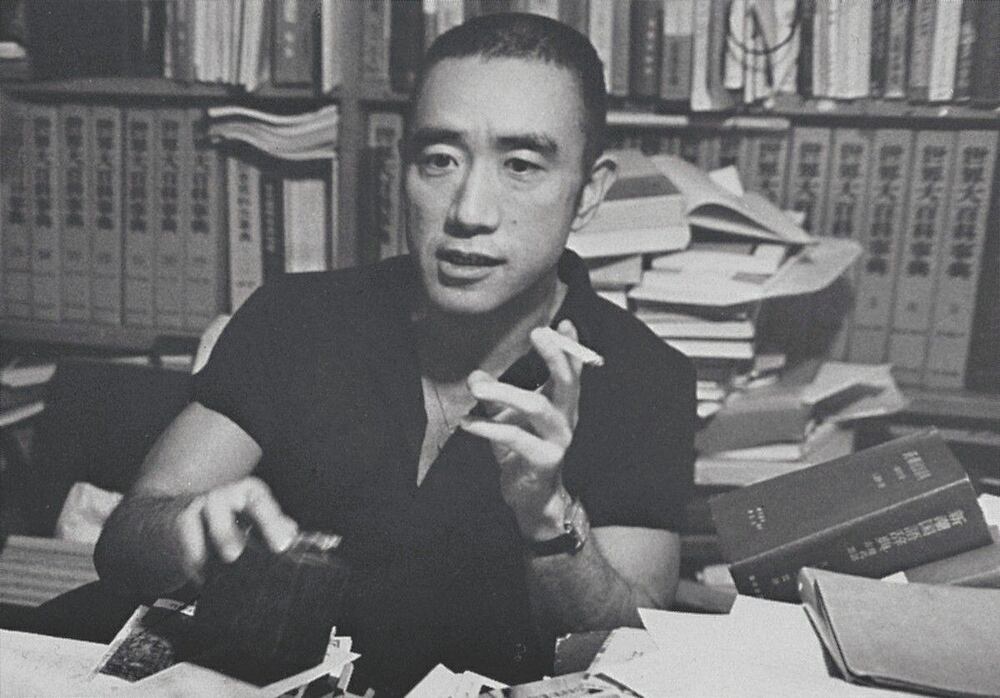
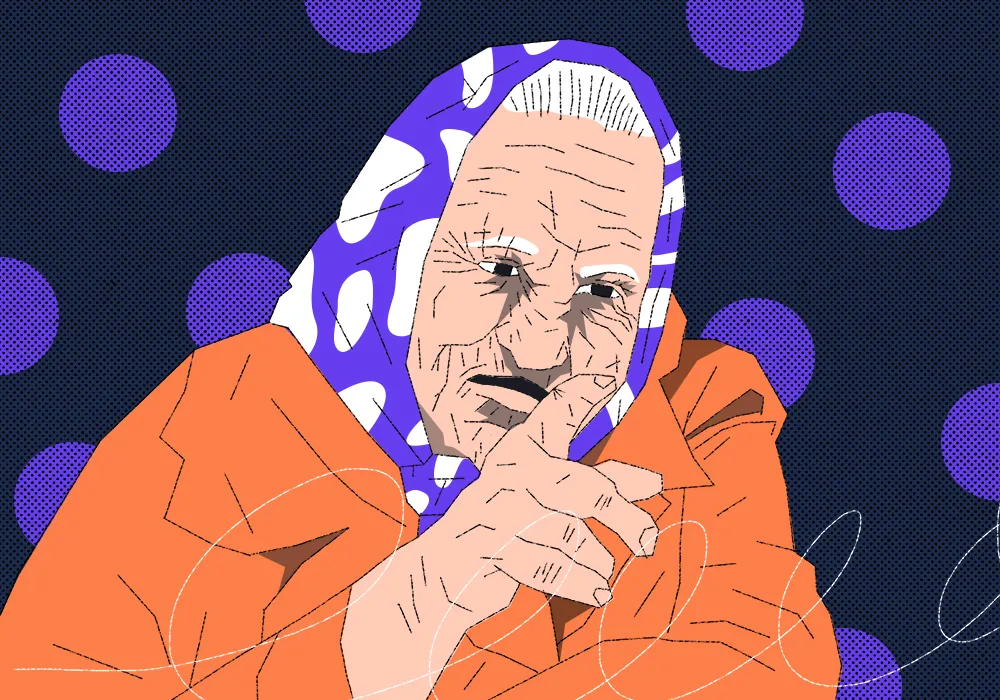
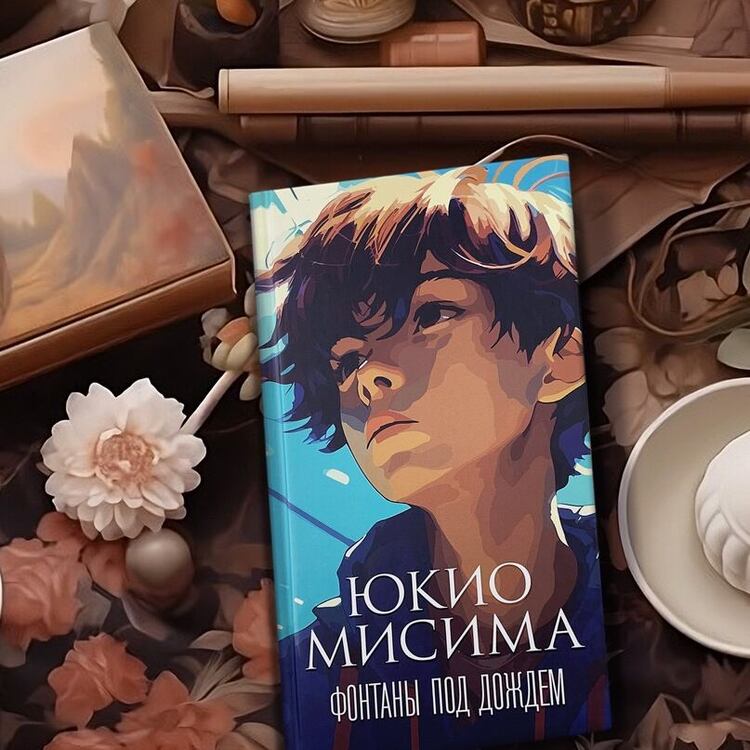


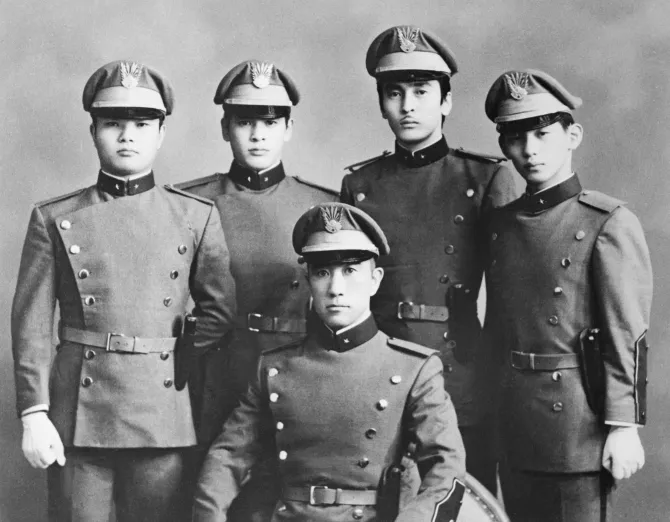







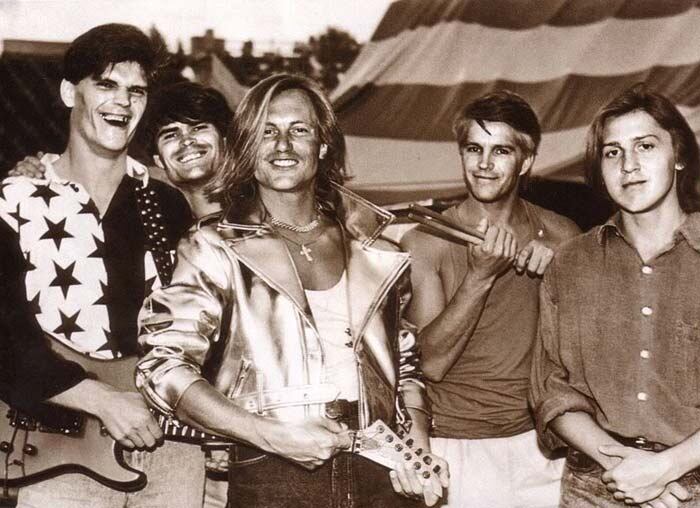



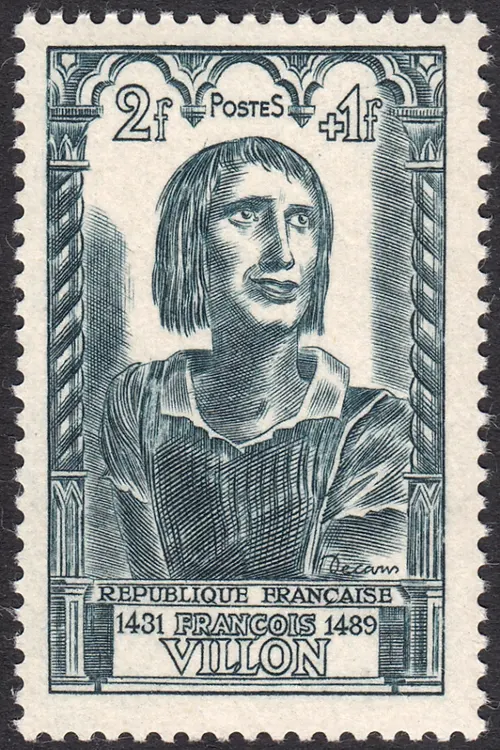
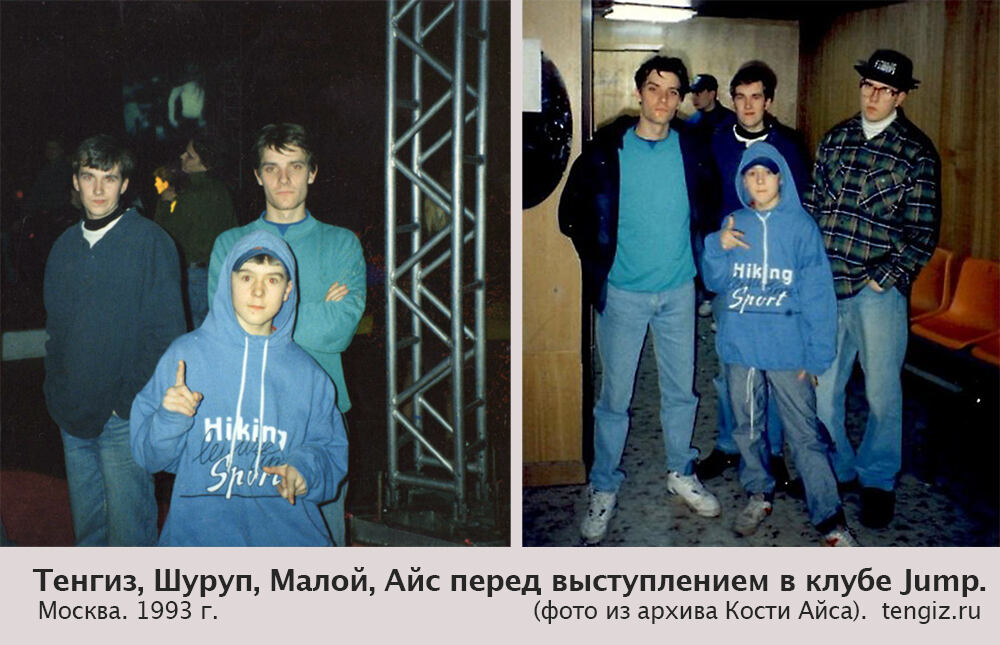

.jpeg.78c49a3bc893b67db0397aa27e32dc37.jpeg)
